Dernière mise à jour le 13/04/2021
Cette page présente les livres (hors fiction) qui me semblent intéressants à lire. Elle est mise à jour au fil de mes découvertes.
La liste étant assez longue, vous pouvez accéder à une thématique précise en utilisant la table des matières ci-dessous.
Table des matières
Déjà lu
Intelligence Artificielle
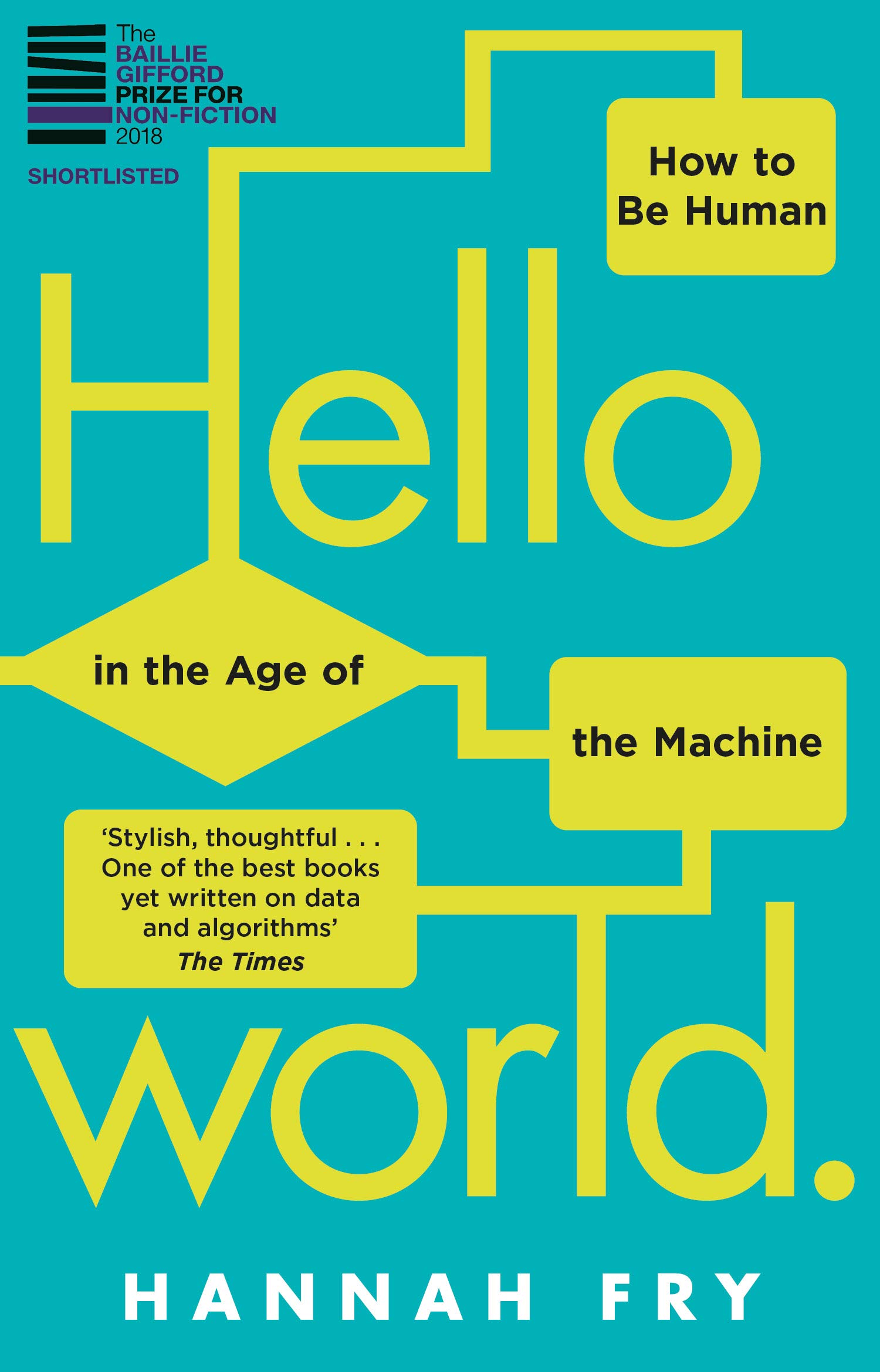

How to be Human in the Age of the Machine
You are accused of a crime. Who would you rather determined your fate—a human or an algorithm? An algorithm is more consistent and less prone to error of judgement. Yet a human can look you in the eye before passing sentence.
Welcome to the age of the algorithm, the story of a not-too-distant future where machines rule supreme, making important decisions—in healthcare, transport, finance, security, what we watch, where we go even who we send to prison. So how much should we rely on them? What kind of future do we want?
Hannah Fry takes us on a tour of the good, the bad and the downright ugly of the algorithms that surround us. In Hello World she lifts the lid on their inner workings, demonstrates their power, exposes their limitations, and examines whether they really are an improvement on the humans they are replacing.
Mon avis : 🟢 Une excellente introduction à l’utilisation et la place de l’intelligence artificielle dans nos sociétés modernes, présentant à la fois les risques et les bénéfices de cette technologie. Écrit d’une manière très accessible. À lire absolument !
Politique


Marx et Spinoza
Comment un certain désir s’y prend-il pour impliquer des puissances tierces dans ses entreprises ? C’est le problème de ce qu’on appellera en toute généralité le patronat, conçu comme un rapport social d’enrôlement. Marx a presque tout dit des structures sociales de la forme capitaliste du patronat et de l’enrôlement salarial. Moins de la diversité des régimes d’affects qui pouvaient s’y couler. Car le capital a fait du chemin depuis les affects tristes de la coercition brute. Et le voilà maintenant qui voudrait des salariés contents, c’est-à-dire qui désireraient conformément à son désir à lui. Pour mieux convertir en travail la force de travail il s’en prend donc désormais aux désirs et aux affects. L’enrôlement des puissances salariales entre dans un nouveau régime et le capitalisme expérimente un nouvel art de faire marcher les salariés.
Compléter le structuralisme marxien des rapports par une anthropologie spinoziste de la puissance et des passions offre alors l’occasion de reprendre à nouveaux frais les notions d’aliénation, d’exploitation et de domination que le capitalisme voudrait dissoudre dans les consentements du salariat joyeux. Et peut-être de prendre une autre perspective sur la possibilité de son dépassement.
Mon avis : 🟠 Intéressante analyse du système capitaliste moderne sous l’angle des conflits et de la manipulation des désirs. Malheursement écrit dans un style complexe, avec du jargon, des locutions latines et de longues phrases, ce qui rend la lecture parfois très difficile.
En cours de lecture
Pensée critique
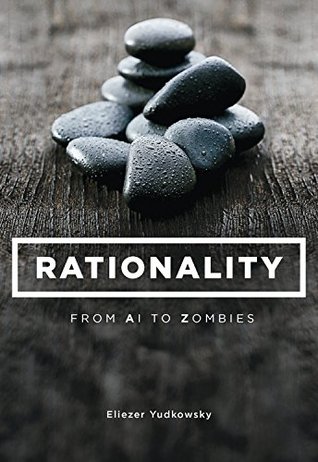

From AI to Zombies
What does it actually mean to be rational? Not Hollywood-style “rational,” where you forsake all human feeling to embrace Cold Hard Logic. Real rationality, of the sort studied by psychologists, social scientists, and mathematicians. The kind of rationality where you make good decisions, even when it’s hard; where you reason well, even in the face of massive uncertainty; where you recognize and make full use of your fuzzy intuitions and emotions, rather than trying to discard them.
In “Rationality: From AI to Zombies,” Eliezer Yudkowsky explains the science underlying human irrationality with a mix of fables, argumentative essays, and personal vignettes. These eye-opening accounts of how the mind works (and how, all too often, it doesn’t!) are then put to the test through some genuinely difficult puzzles: computer scientists’ debates about the future of artificial intelligence (AI), physicists’ debates about the relationship between the quantum and classical worlds, philosophers’ debates about the metaphysics of zombies and the nature of morality, and many more. In the process, “Rationality: From AI to Zombies” delves into the human significance of correct reasoning more deeply than you’ll find in any conventional textbook on cognitive science or philosophy of mind.
A decision theorist and researcher at the Machine Intelligence Research Institute, Yudkowsky published earlier drafts of his writings to the websites Overcoming Bias and Less Wrong. “Rationality: From AI to Zombies” compiles six volumes of Yudkowsky’s essays into a single electronic tome. Collectively, these sequences of linked essays serve as a rich and lively introduction to the science—and the art—of human rationality.
Mon avis : Pas encore terminé, très intéressant pour l’instant.
Sciences sociales
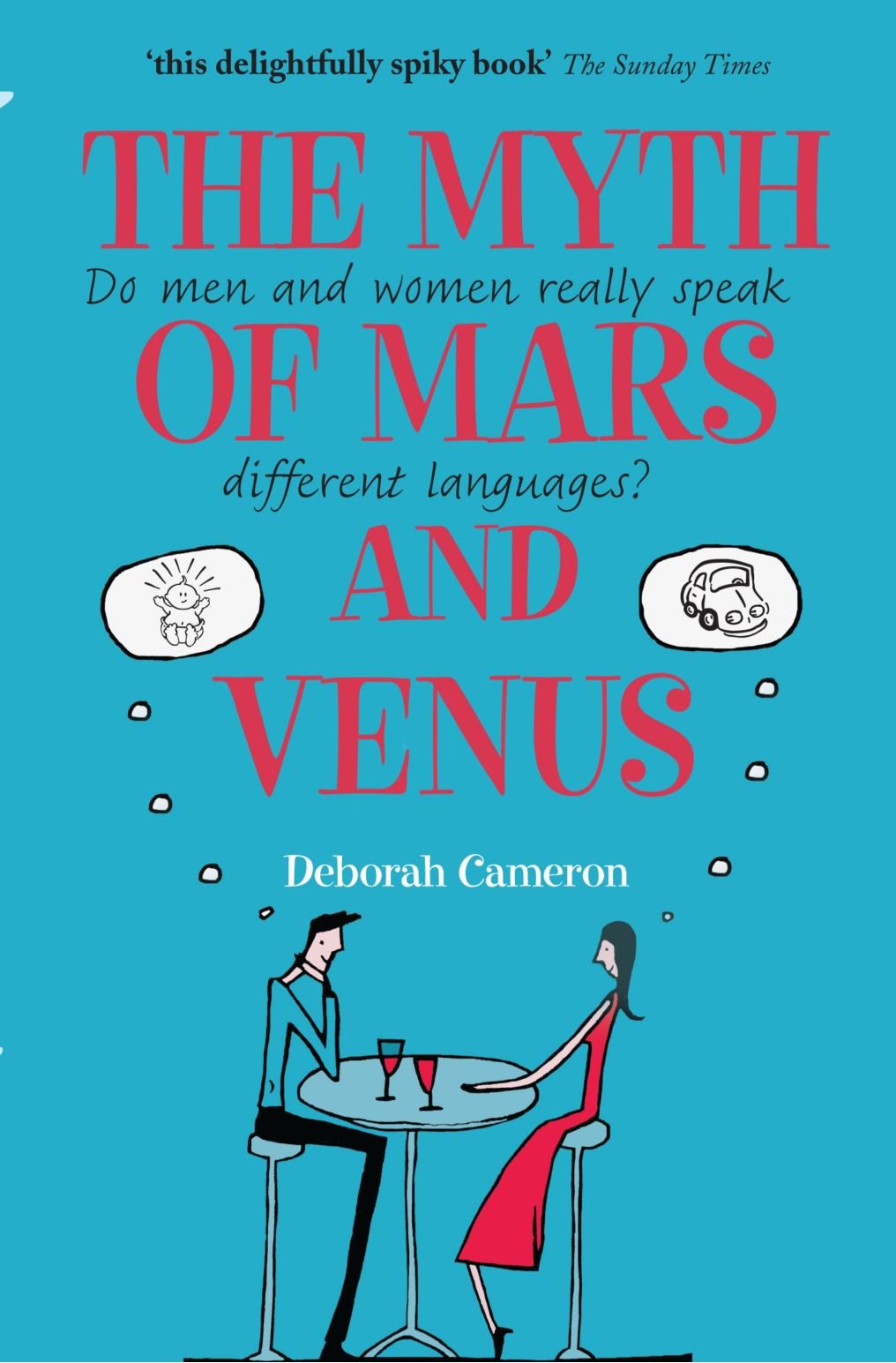

Do men and women really speak different languages?
Popular assumptions about gender and communication—famously summed up in the title of the massively influential 1992 bestseller Men Are From Mars, Women Are From Venus—can have unforeseen but far-reaching consequences in many spheres of life, from attitudes to the phenomenon of “date-rape” to expectations of achievement at school, and potential discrimination in the work-place.
In this wide-ranging and thoroughly readable book, Deborah Cameron, Rupert Murdoch Professor of Language and Communication at Oxford University and author of a number of leading texts in the field of language and gender studies, draws on over 30 years of scientific research to explain what we really know and to demonstrate how this is often very different from the accounts we are familiar with from recent popular writing.
Ambitious in scope and exceptionally accessible, The Myth of Mars and Venus tells it like it is: widely accepted attitudes from the past and from other cultures are at heart related to assumptions about language and the place of men and women in society; and there is as much similarity and variation within each gender as between men and women, often associated with social roles and relationships.
The author goes on to consider the influence of Darwinian theories of natural selection and the notion that girls and boys are socialized during childhood into different ways of using language, before addressing problems of “miscommunication” surrounding, for example, sex and consent to sex, and women’s relative lack of success in work and politics.
Arguing that what linguistic differences there are between men and women are driven by the need to construct and project personal meaning and identity, Cameron concludes that we have an urgent need to think about gender in more complex ways than the prevailing myths and stereotypes allow. A compelling and insightful read for anyone with an interest in communication, language, and the sexes.
Mon avis : Pas encore lu.
Envie de lire
Philosophie
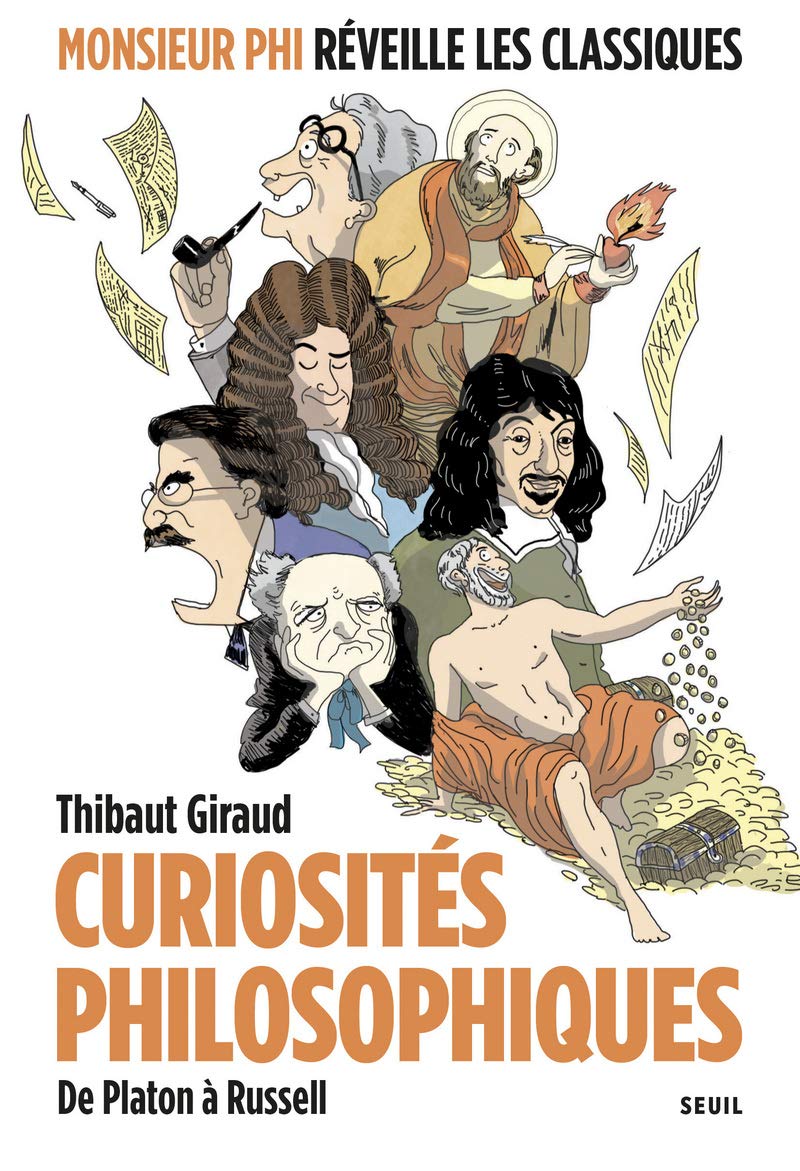

De Platon à Russell
Aristote aimait-il mieux disséquer des poulpes qu’observer les cieux ? Peut-on comme Sénèque être à la fois milliardaire et stoïcien ? Qu’avait donc Kant contre la masturbation ? Vous trouverez la réponse à bien des questions que vous ne vous êtes jamais posées au détour de ces Curiosités philosophiques qui nous invitent à entrer dans le monde de personnages singuliers que l’on a coutume d’appeler philosophes.
De Platon à Russell, Thibaut Giraud nous guide à travers des textes étonnants et nous fait découvrir sous un jour inattendu ces grands penseurs. S’ils sont susceptibles en d’autres circonstances de se montrer effrayants ou intimidants — surtout avec les nouveaux venus —, ils se révèlent ici lisibles et accueillants.
Une précieuse initiation à la lecture des philosophes pour tous les publics.
Après plusieurs années de recherches et d’enseignement, Thibaut Giraud a créé la chaine YouTube de vulgarisation « Monsieur Phi », au croisement de la philosophie et des sciences.
Mon avis : Pas encore lu.
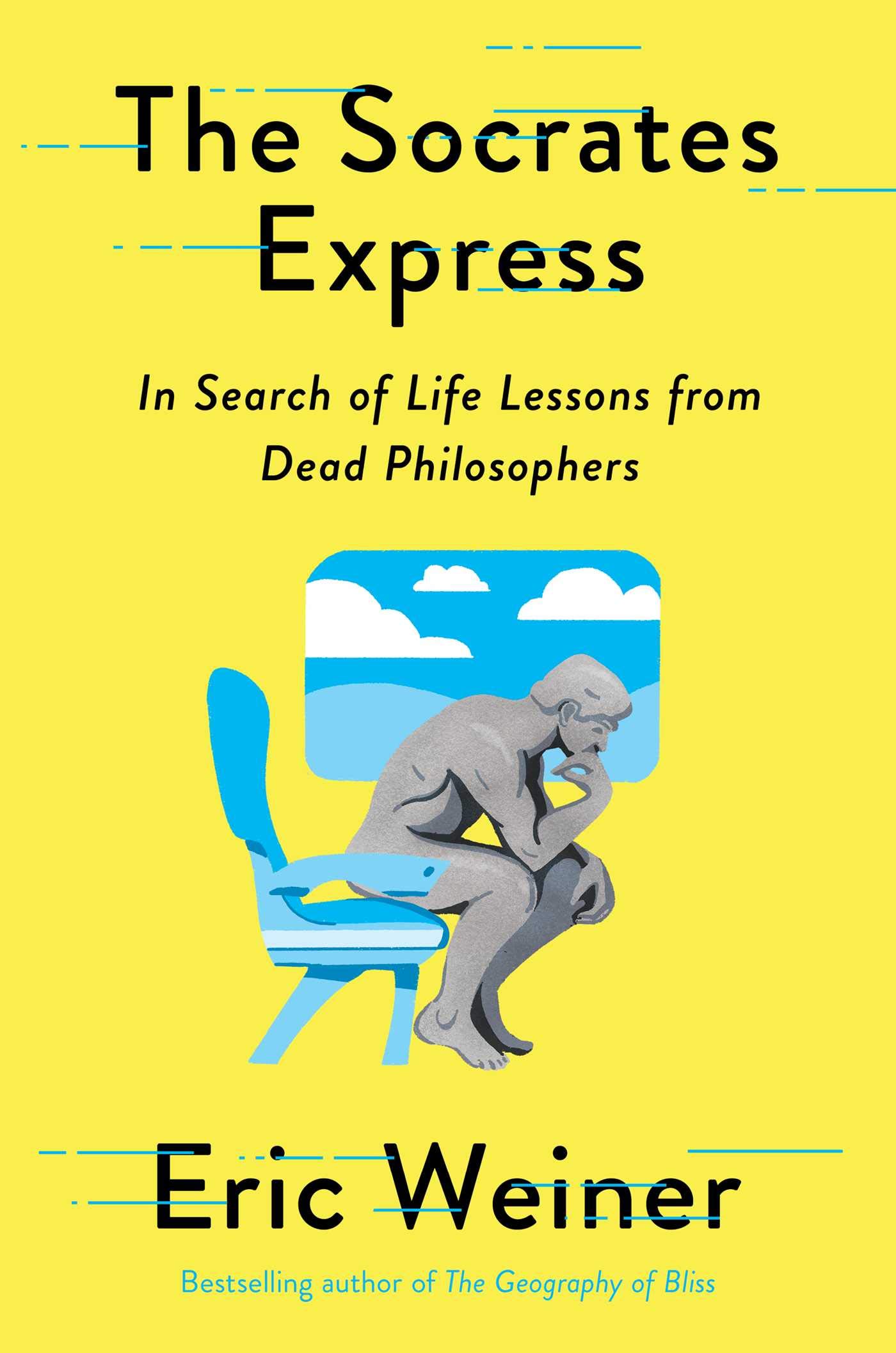

In Search of Life Lessons from Dead Philosophers
We turn to philosophy for the same reasons we travel: to see the world from a different perspective, to unearth hidden beauty, and to find new ways of being. We want to learn how to embrace wonder. Face regrets. Sustain hope.
Eric Weiner combines his twin passions for philosophy and global travel in a pilgrimage that uncovers surprising life lessons from great thinkers around the world, from Rousseau to Nietzsche, Confucius to Simone Weil. Traveling by train (the most thoughtful mode of transport), he journeys thousands of miles, making stops in Athens, Delhi, Wyoming, Coney Island, Frankfurt, and points in between to reconnect with philosophy’s original purpose: teaching us how to lead wiser, more meaningful lives. From Socrates and ancient Athens to Simone de Beauvoir and twentieth-century Paris, Weiner’s chosen philosophers and places provide important signposts as we navigate today’s chaotic times.
In The Socrates Express, Weiner invites us to voyage alongside him on his life-changing pursuit of wisdom and discovery as he attempts to find answers to our most vital questions.
Mon avis : Pas encore lu.
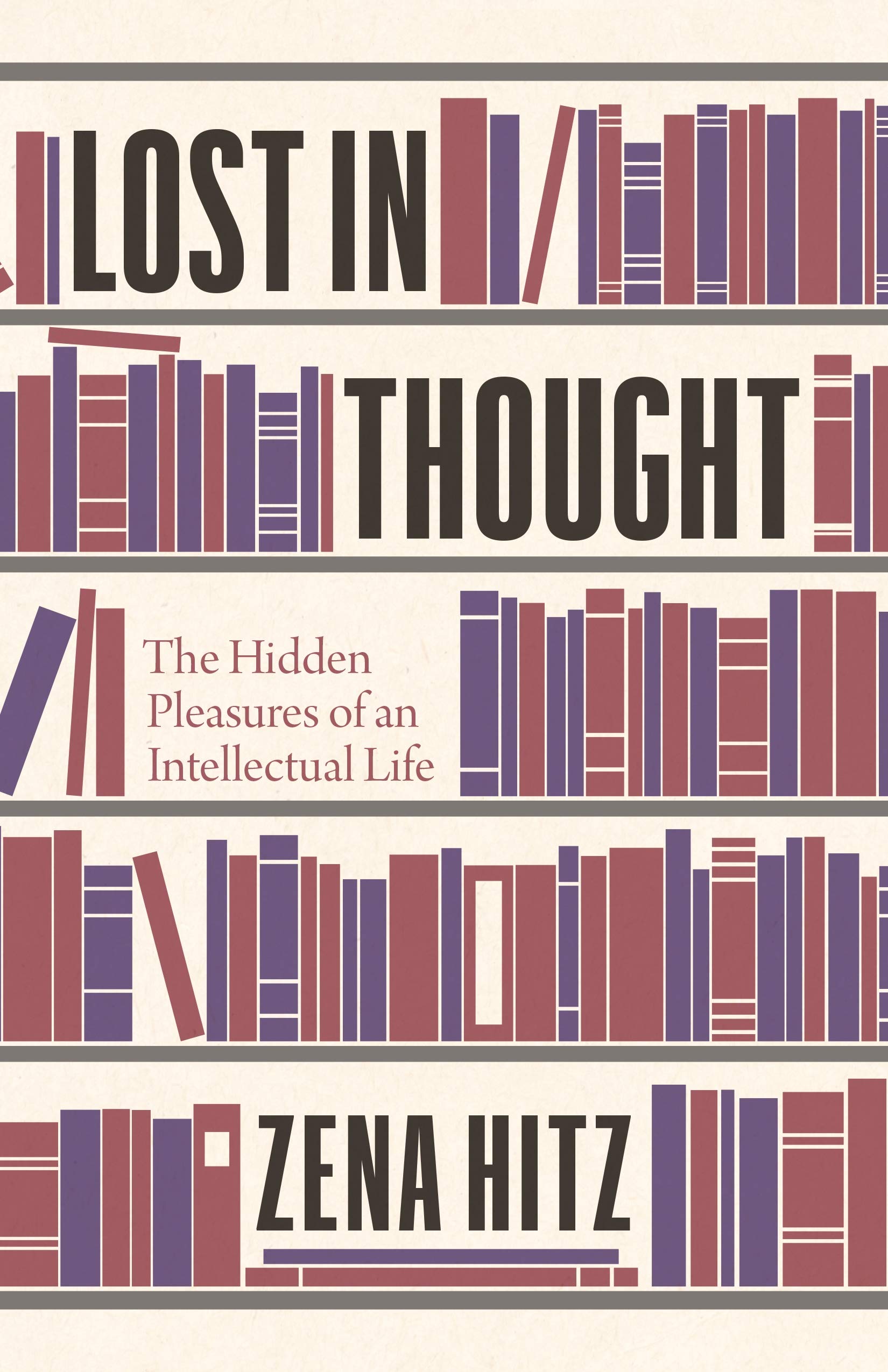

The Hidden Pleasures of an Intellectual Life
In an overloaded, superficial, technological world, in which almost everything and everybody is judged by its usefulness, where can we turn for escape, lasting pleasure, contemplation, or connection to others? While many forms of leisure meet these needs, Zena Hitz writes, few experiences are so fulfilling as the inner life, whether that of a bookworm, an amateur astronomer, a birdwatcher, or someone who takes a deep interest in one of countless other subjects. Drawing on inspiring examples, from Socrates and Augustine to Malcolm X and Elena Ferrante, and from films to Hitz’s own experiences as someone who walked away from elite university life in search of greater fulfillment, Lost in Thought is a passionate and timely reminder that a rich life is a life rich in thought.
Today, when even the humanities are often defended only for their economic or political usefulness, Hitz says our intellectual lives are valuable not despite but because of their practical uselessness. And while anyone can have an intellectual life, she encourages academics in particular to get back in touch with the desire to learn for its own sake, and calls on universities to return to the person-to-person transmission of the habits of mind and heart that bring out the best in us.
Reminding us of who we once were and who we might become, Lost in Thought is a moving account of why renewing our inner lives is fundamental to preserving our humanity.
Mon avis : Pas encore lu.
Linguistique


Tout était-il vraiment mieux avant ? Aujourd’hui, il semblerait que les autres ne savent plus parler : les jeunes, les pauvres, les immigrés, les nouvelles générations, les journalistes, les québécois… Mais qu’est-ce qui a changé entretemps ? Ce livre, qui est le premier de l’auteur, continue dans la lignée de son travail vidéo qu’on ne présente plus : de façon ludique, on revient sur l’histoire de la langue et ses évolutions récentes, en n’oubliant jamais de comparer avec d’autres idiomes qu’ils soient proches ou lointains. De plus, et pour que la lecture soit facile pour tous, de nombreux encadrés et anecdotes apportent des informations ou des précisions sur les sujets abordés. Parmi les thématiques abordées, on retrouve bien évidemment la norme et le bon usage, des concepts centraux qui sont souvent au cœur du travail de l’auteur, mais aussi des choses plus légères, comme l’histoire insolite d’une petite langue d’Amazonie, celles de quelques langues mortes ressuscitées. L’auteur aborde aussi l’opposition que l’on fait parfois entre la langue des femmes et celles des hommes, en cherchant toujours à casser quelques idées reçues lorsque cela est possible.
Mon avis : Pas encore lu.
Éthique
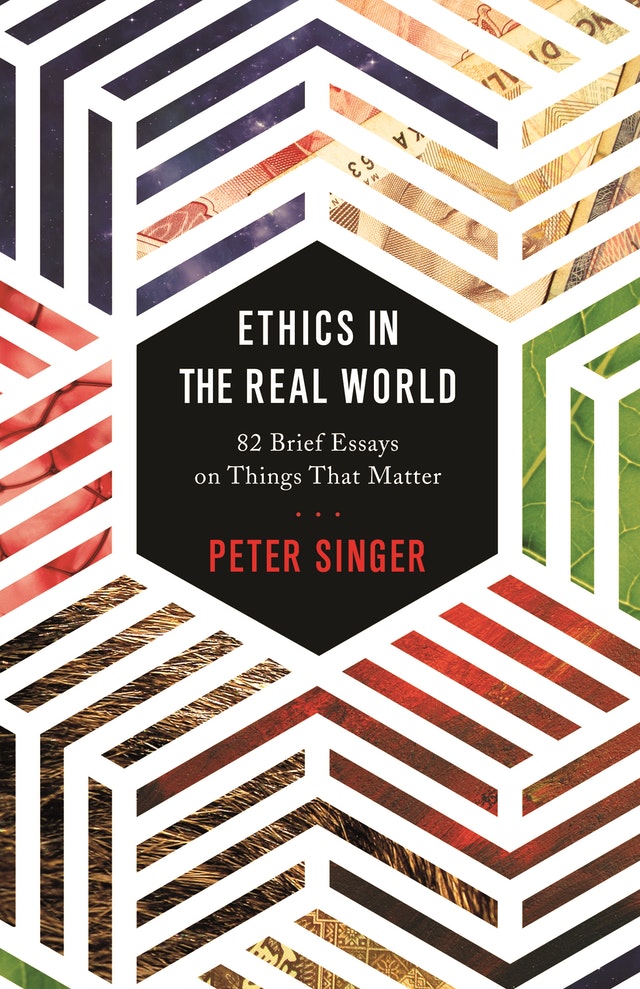

82 Brief Essays on Things That Matter
Peter Singer is often described as the world’s most influential philosopher. He is also one of its most controversial. The author of important books such as Animal Liberation, Practical Ethics, Rethinking Life and Death, and The Life You Can Save, he helped launch the animal rights and effective altruism movements and contributed to the development of bioethics. Now, in Ethics in the Real World, Singer shows that he is also a master at dissecting important current events in a few hundred words.
In this book of brief essays, he applies his controversial ways of thinking to issues like climate change, extreme poverty, animals, abortion, euthanasia, human genetic selection, sports doping, the sale of kidneys, the ethics of high-priced art, and ways of increasing happiness. Singer asks whether chimpanzees are people, smoking should be outlawed, or consensual sex between adult siblings should be decriminalized, and he reiterates his case against the idea that all human life is sacred, applying his arguments to some recent cases in the news. In addition, he explores, in an easily accessible form, some of the deepest philosophical questions, such as whether anything really matters and what is the value of the pale blue dot that is our planet. The collection also includes some more personal reflections, like Singer’s thoughts on one of his favorite activities, surfing, and an unusual suggestion for starting a family conversation over a holiday feast.
Provocative and original, these essays will challenge—and possibly change—your beliefs about a wide range of real-world ethical questions.
Mon avis : Pas encore lu.
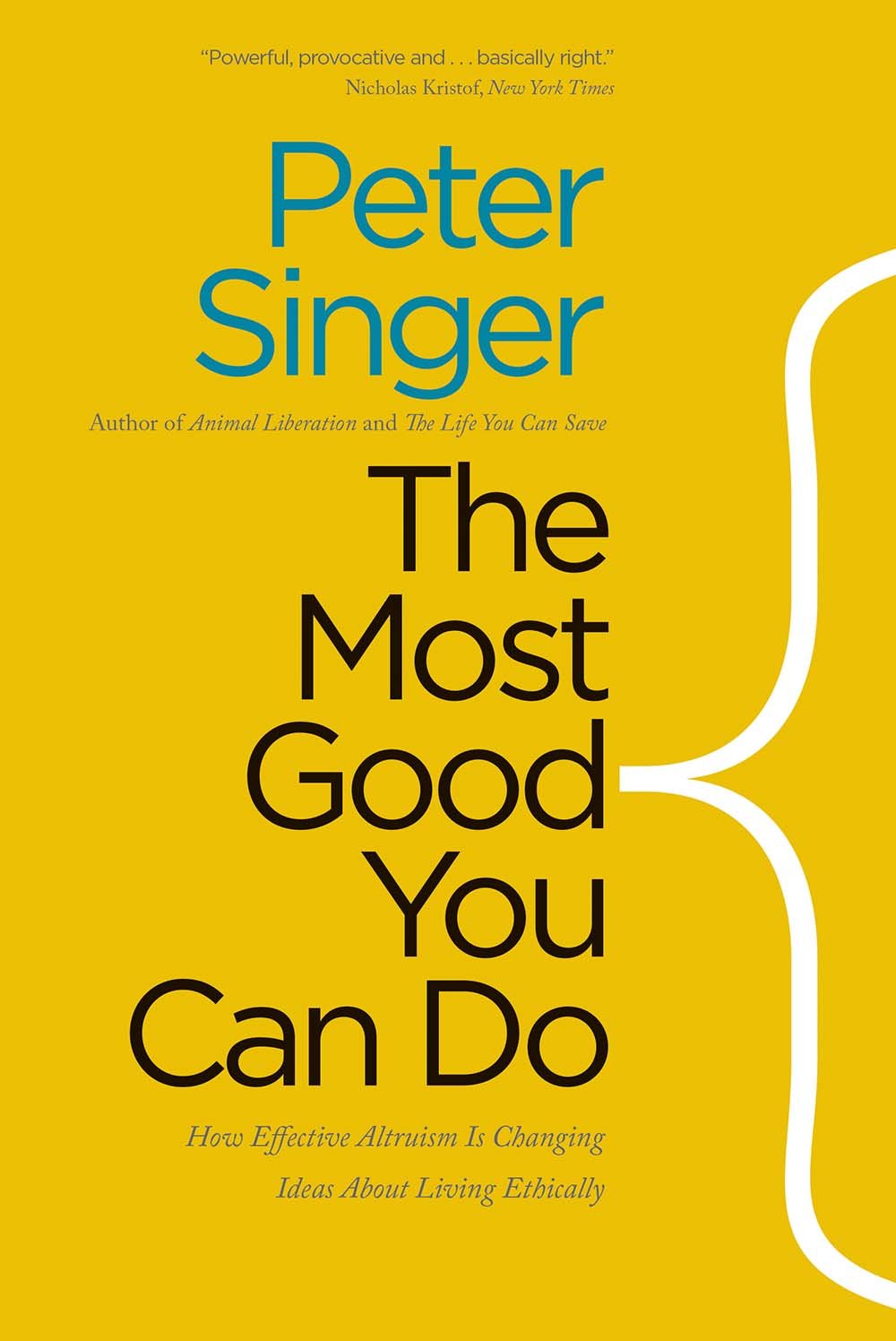

How Effective Altruism Is Changing Ideas About Living Ethically
Peter Singer’s books and ideas have been disturbing our complacency ever since the appearance of Animal Liberation. Now he directs our attention to a new movement in which his own ideas have played a crucial role: effective altruism. Effective altruism is built upon the simple but profound idea that living a fully ethical life involves doing the “most good you can do.” Such a life requires an unsentimental view of charitable giving: to be a worthy recipient of our support, an organization must be able to demonstrate that it will do more good with our money or our time than other options open to us. Singer introduces us to an array of remarkable people who are restructuring their lives in accordance with these ideas, and shows how living altruistically often leads to greater personal fulfillment than living for oneself.
The Most Good You Can Do develops the challenges Singer has made, in the New York Times and Washington Post, to those who donate to the arts, and to charities focused on helping our fellow citizens, rather than those for whom we can do the most good. Effective altruists are extending our knowledge of the possibilities of living less selfishly, and of allowing reason, rather than emotion, to determine how we live. The Most Good You Can Do offers new hope for our ability to tackle the world’s most pressing problems.
Mon avis : Pas encore lu.
Histoire
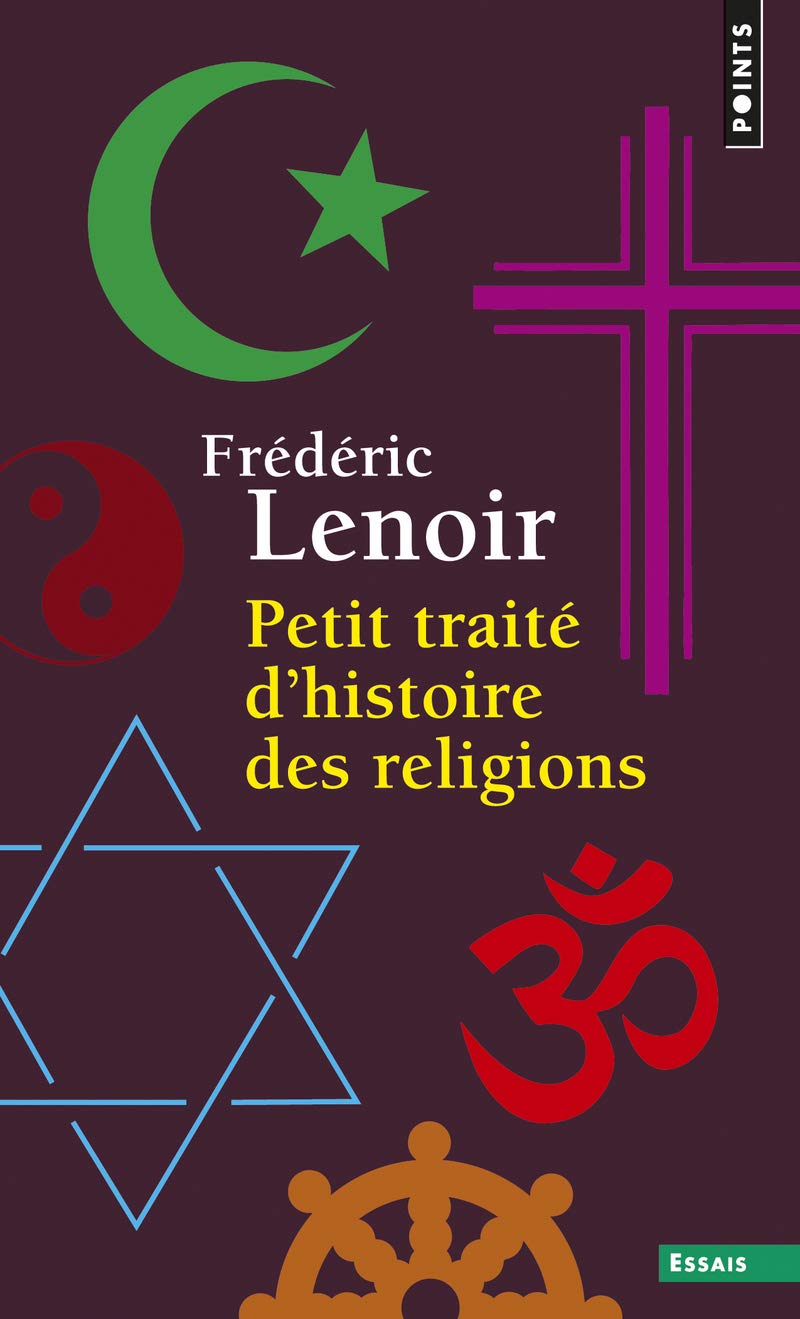

Quelle est la toute première religion de l’humanité ? Comment sont apparues les notions de dieu, de sacrifice, de salut, de prière, de clergé ? Pourquoi est-on passé du culte de divinités féminines à celui de divinités masculines ? de la croyance en plusieurs dieux à la foi en un Dieu unique ? Pourquoi la violence est-elle souvent liée au sacré ? Qui sont les fondateurs des grandes traditions et quel est leur message ? Quelles sont les ressemblances et les différences fondamentales entre les religions ?
Des premiers rituels funéraires aux grandes religions actuelles, Frédéric Lenoir explore l’univers foisonnant du sacré. Une question parcourt ce livre : à quoi servent les religions et pourquoi accompagnent-elles l’aventure humaine depuis l’aube des temps ?
Mon avis : Pas encore lu.


Méprisés pendant des siècles, encensés par les romantiques, ces mille ans d’histoire ont presque toujours été recouverts de la crasse de l’ignorance. « Godiche » ne vient-il pas de « gothique » ? « Féodal » ne désigne-t-il pas l’obscurantisme le plus indécrottable ? « Moyenâgeux » les vieilleries poussiéreuses ?
Grâce à ce livre décapant, mille ans d’histoire resurgissent. Le Moyen Âge est mort, vive le Moyen Âge !
Mon avis : Pas encore lu.


How the Hunger for Ownership Shaped the Modern World
Land—whether meadow or mountainside, desert or peat bog, parkland or pasture, suburb or city—is central to our existence. It quite literally underlies and underpins everything. Employing the keen intellect, insatiable curiosity, and narrative verve that are the foundations of his previous bestselling works, Simon Winchester examines what we human beings are doing—and have done—with the billions of acres that together make up the solid surface of our planet.
Land: How the Hunger for Ownership Shaped the Modern World examines in depth how we acquire land, how we steward it, how and why we fight over it, and finally, how we can, and on occasion do, come to share it. Ultimately, Winchester confronts the essential question: who actually owns the world’s land—and why does it matter?
Mon avis : Pas encore lu.
Pensée critique
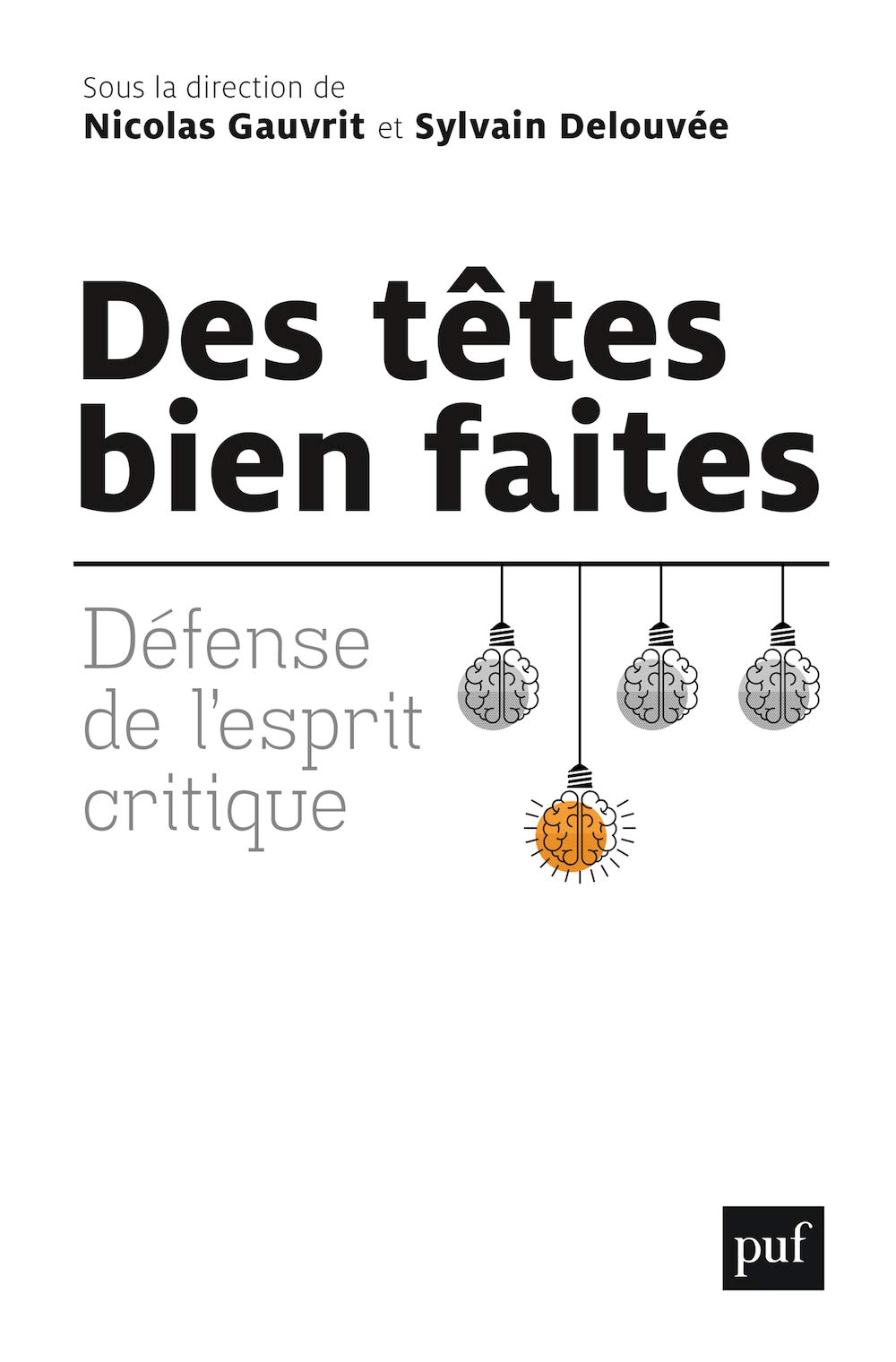

Défense de l’esprit critique
L’esprit critique est sur toutes les lèvres. Depuis l’explosion des fake news diffusant sur Internet, des rumeurs trompeuses, des théories du complot poussant certains jeunes sur la voie de la radicalisation, il semble que nous vivions dans un monde parsemé de pièges pour nos cerveaux trop enclins à croire. Des philosophes et des chercheurs tentent de comprendre ce qui nous rend si prompts à adhérer à des idées parfois farfelues, pourquoi notre raison, en général efficace, recèle quelques « bugs », que d’aucuns ne se privent pas d’utiliser. De leur côté et dans le même objectif de défense intellectuelle, des vidéastes, des journalistes, des médiateurs et des enseignants tentent de développer l’hygiène mentale de leurs contemporains par divers moyens. Dans cet ouvrage, les chercheurs exposent certaines failles mentales qui nous rendent vulnérables aux erreurs, tandis que les médiateurs témoignent des pratiques qu’ils ont mises en place pour participer à l’effort pédagogique. Ensemble, ils imaginent une approche critique de l’autodéfense intellectuelle, une collaboration à venir pour un enseignement de l’esprit critique fondé sur les preuves.
Mon avis : Pas encore lu.
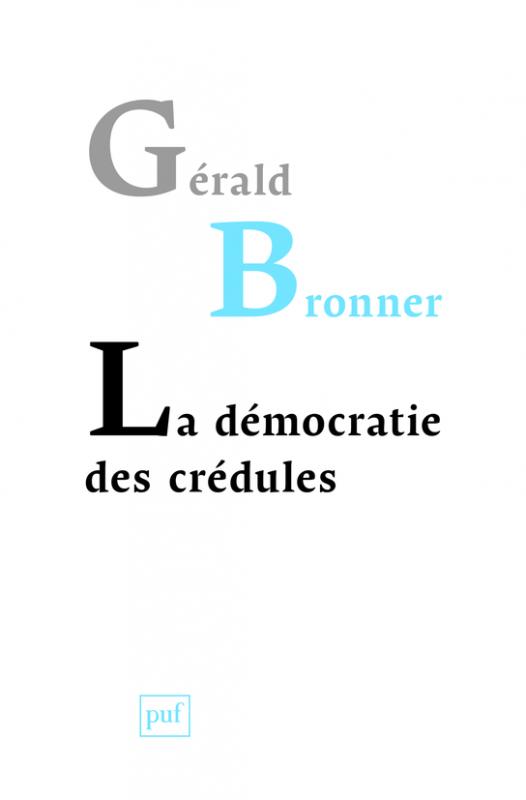

Pourquoi les mythes du complot paraissent-ils envahir l’esprit de nos contemporains ? Pourquoi le traitement de la politique tend à se « peopoliser » ? Pourquoi se méfie-t-on de plus en plus des hommes de sciences ? Comment un jeune homme prétendant être le fils de Mickael Jackson et avoir été violé par Nicolas Sarkozy a-t-il pu être interviewé dans les journaux de 20 h ? Comment d’une façon générale, des faits imaginaires, inventés ou parfois franchement mensongers arrivent-ils à se diffuser dans l’espace public, à nous faire croire tout et n’importe quoi, à infléchir les décisions des politiques, bref à façonner une partie du monde dans lequel nous vivons ? N’était-il pas raisonnable d’espérer qu’avec la libre circulation de l’information et l’augmentation généralisée du niveau d’étude, les sociétés démocratiques allaient tendre vers une forme de sagesse collective ? Ce livre propose, en convoquant de nombreux exemples, de répondre à toutes ces questions en montrant comment les conditions de notre vie contemporaine se sont alliées au fonctionnement intime de notre cerveau pour faire de nous des dupes.
Mon avis : Pas encore lu.
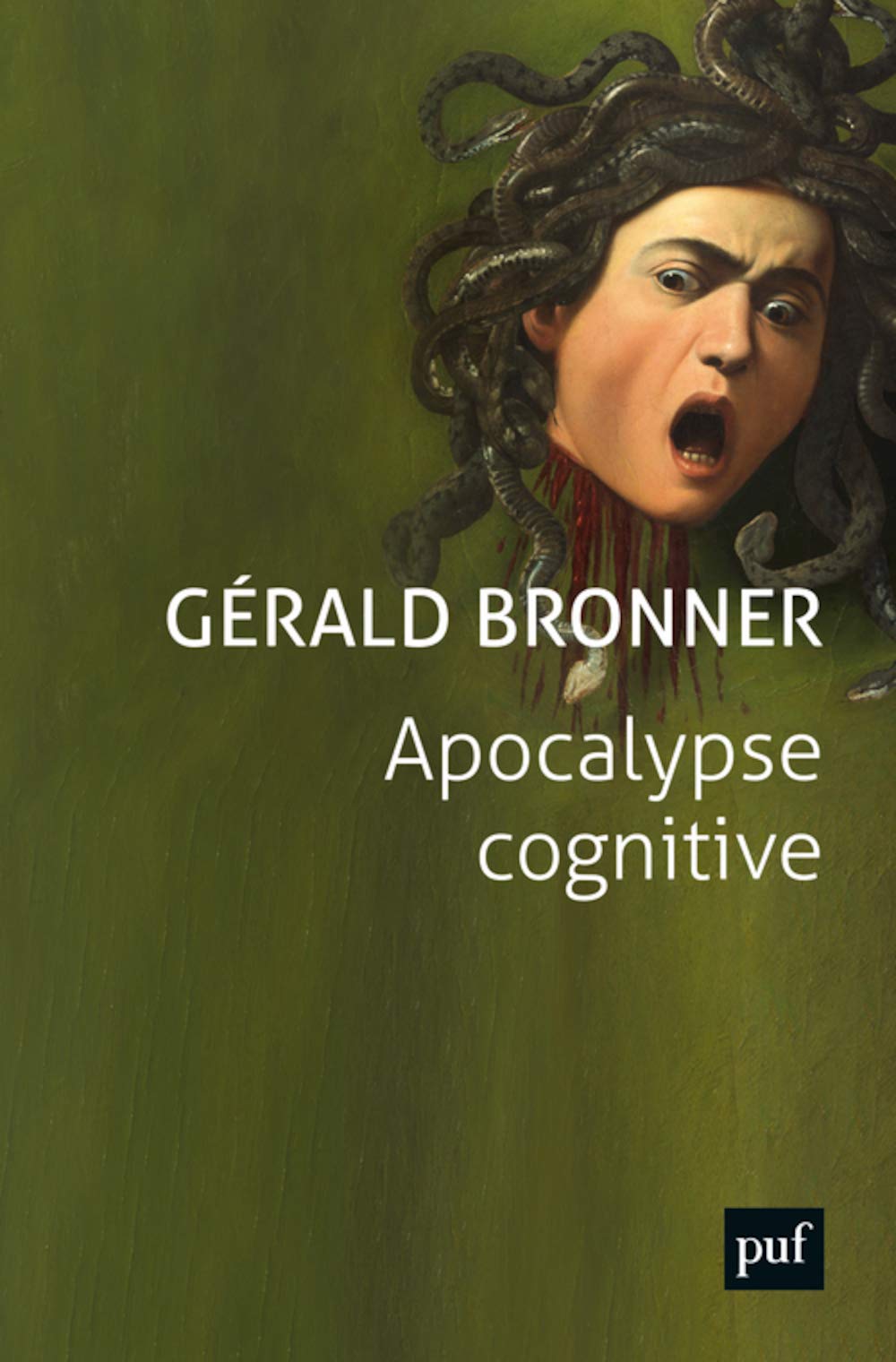

La situation est inédite. Jamais, dans l’histoire de l’humanité, nous n’avons disposé d’autant d’informations et jamais nous n’avons eu autant de temps libre pour y puiser loisir et connaissance du monde. Nos prédécesseurs en avaient rêvé : la science et la technologie libéreraient l’humanité. Mais ce rêve risque désormais de tourner au cauchemar. Le déferlement d’informations a entraîné une concurrence généralisée de toutes les idées, une dérégulation du « marché cognitif » qui a une fâcheuse conséquence : capter, souvent pour le pire, le précieux trésor de notre attention. Nos esprits subissent l’envoûtement des écrans et s’abandonnent aux mille visages de la déraison. Victime d’un pillage en règle, notre esprit est au cœur d’un enjeu dont dépend notre avenir. Ce contexte inquiétant dévoile certaines des aspirations profondes de l’humanité. L’heure de la confrontation avec notre propre nature aurait-elle sonné ? De la façon dont nous réagirons dépendront les possibilités d’échapper à ce qu’il faut bien appeler une menace civilisationnelle. C’est le récit de cet enjeu historique que propose le nouveau livre événement de Gérald Bronner.
Mon avis : Pas encore lu.
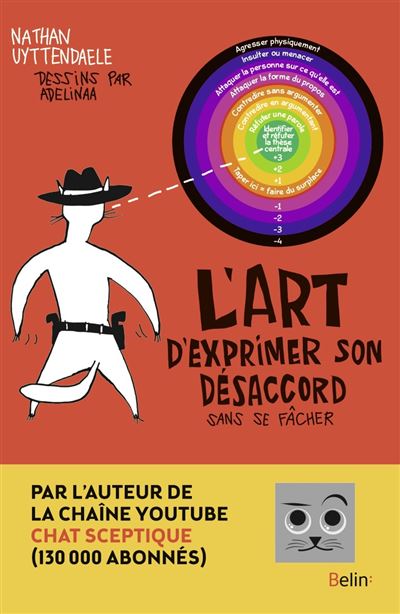

Une introduction bienveillante à l’esprit critique.
Débattre avec des arguments pertinents, exprimer efficacement ses opinions et questionner celles des autres avec bienveillance, cela ne s’improvise pas. Pour s’initier à l’art délicat d’exprimer son désaccord et à la pensée critique, le statisticien Nathan Uyttendaele et l’artiste Adelina Kulmakhanova vous proposent un ouvrage mélangeant savoir-faire et mise en scène humoristique des meilleures pratiques et de celles à éviter. À mettre dans toutes les mains !
Mon avis : Pas encore lu.
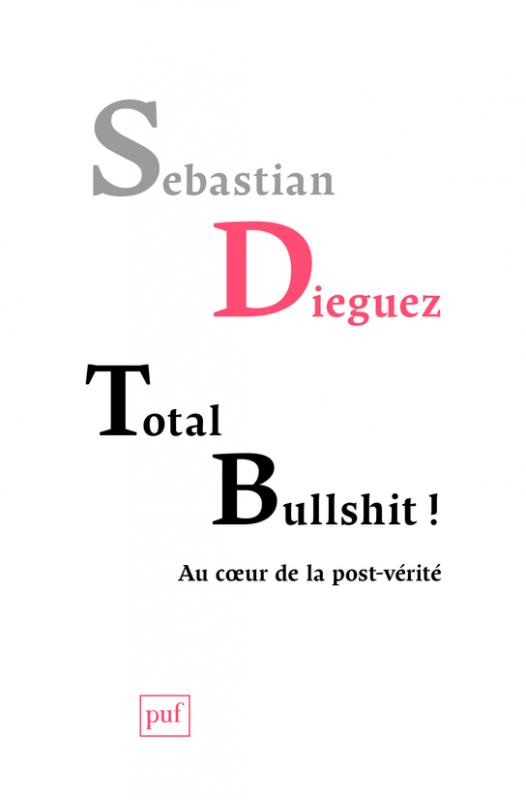

Au cœur de la post-vérité
L’année 2016 a été consacrée comme celle de la « post-vérité ». Que faut-il comprendre par ce terme ? Selon le dictionnaire d’Oxford, qui en a fait son mot de l’année, le terme désignerait des « circonstances dans lesquelles les faits objectifs ont moins d’influence pour former l’opinion publique que l’appel à l’émotion et aux croyances personnelles ». Ce livre prend le parti de retourner à la source de cet état des lieux et l’identifie dans le concept de « bullshit » théorisé par le philosophe Harry Frankfurt en 1986. Ce qu’il a défini comme une « indifférence à l’égard de la vérité » distincte du mensonge s’avère en effet un outil conceptuel remarquablement efficace pour saisir comment l’opinion prétend l’emporter sur la vérité et pour comprendre le succès des impostures scientifiques et des « théories du complot ». L’ère de la post-vérité est bien celle du bullshit institué à une échelle globale, et seule une compréhension fine de ce phénomène permettra d’engager la lutte qui se prépare. Heureusement, une telle science du bullshit est en fait déjà disponible, mais il restait à l’assembler en un seul volume accessible, utile et stimulant.
Mon avis : Pas encore lu.
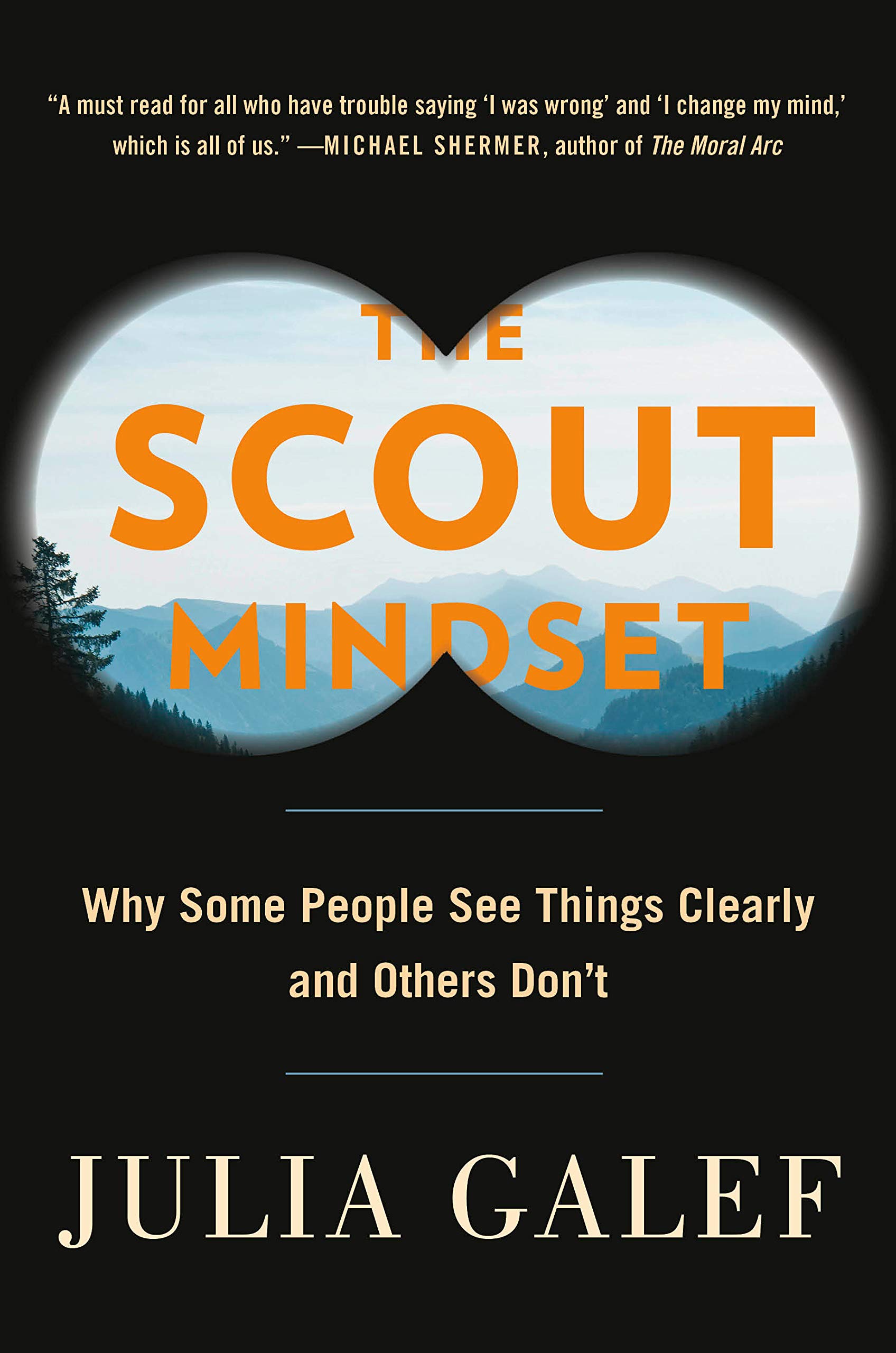

Why Some People See Things Clearly and Others Don’t
A better way to combat knee-jerk biases and make smarter decisions, from Julia Galef, the acclaimed expert on rational decision-making.
When it comes to what we believe, humans see what they want to see. In other words, we have what Julia Galef calls a “soldier” mindset. From tribalism and wishful thinking, to rationalizing in our personal lives and everything in between, we are driven to defend the ideas we most want to believe—and shoot down those we don’t.
But if we want to get things right more often, argues Galef, we should train ourselves to have a “scout” mindset. Unlike the soldier, a scout’s goal isn’t to defend one side over the other. It’s to go out, survey the territory, and come back with as accurate a map as possible. Regardless of what they hope to be the case, above all, the scout wants to know what’s actually true.
In The Scout Mindset, Galef shows that what makes scouts better at getting things right isn’t that they’re smarter or more knowledgeable than everyone else. It’s a handful of emotional skills, habits, and ways of looking at the world—which anyone can learn. With fascinating examples ranging from how to survive being stranded in the middle of the ocean, to how Jeff Bezos avoids overconfidence, to how superforecasters outperform CIA operatives, to Reddit threads and modern partisan politics, Galef explores why our brains deceive us and what we can do to change the way we think.
Mon avis : Pas encore lu.
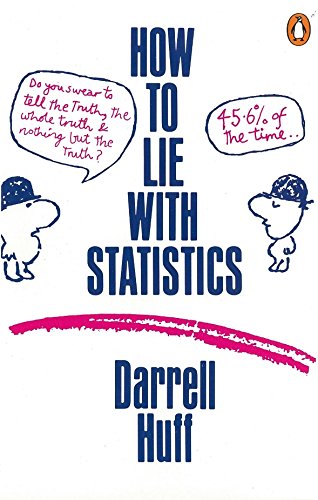

This book introduces the reader to the niceties of samples (random or stratified random), averages (mean, median or modal), errors (probable, standard or unintentional), graphs, indexes and other tools of democratic persuasion.
Mon avis : Pas encore lu.
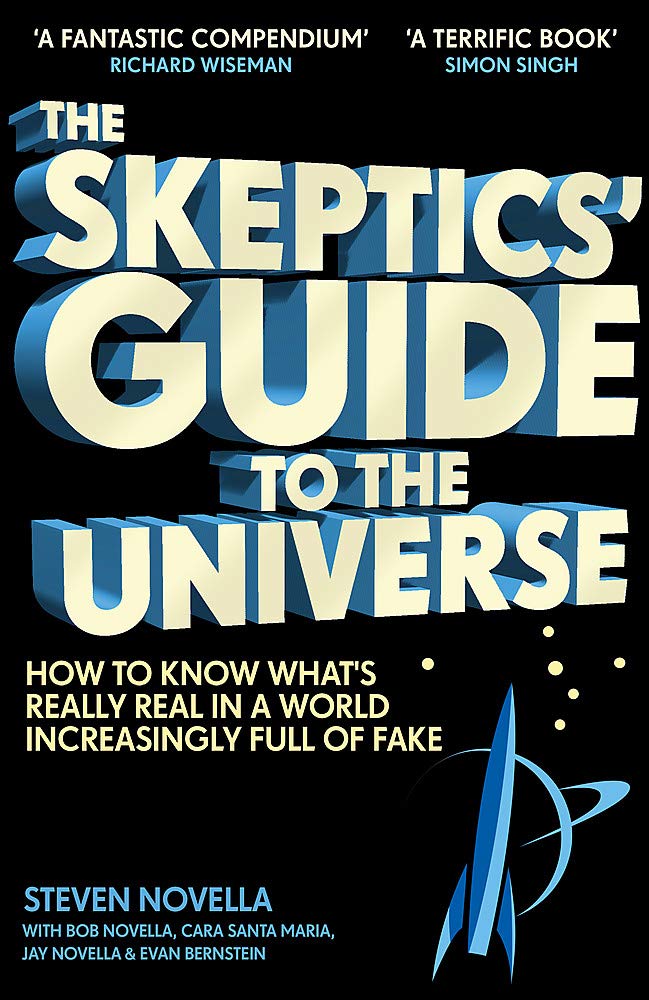

How To Know What’s Really Real in a World Increasingly Full of Fake
In this tie-in to their popular “The Skeptics Guide to the Universe” podcast, Steven Novella, along with “Skeptical Rogues” Bob Novella, Cara Santa Maria, Jay Novella and Evan Bernstein explain the tenets of skeptical thinking and debunk some of the biggest scientific myths, fallacies and conspiracy theories (anti-vaccines, homeopathy, UFO sightings, and many more.) They’ll help us try to make sense of what seems like an increasingly crazy world using powerful tools like science and philosophy.
The Skeptics’ Guide to the Universe is your guide through this maze of modern life. It covers essential critical thinking skills, as well as giving insight into how your brain works and how to avoid common pitfalls in thinking. They discuss the difference between science and pseudoscience, how to recognize common science news tropes, how to discuss conspiracy theories with that crazy colleague of yours, and how to apply all of this to everyday life.
As fascinating as it is entertaining, this page turner is your essential guide to seeing through the fake news and media manipulation in our increasingly confusing world.
Mon avis : Pas encore lu.
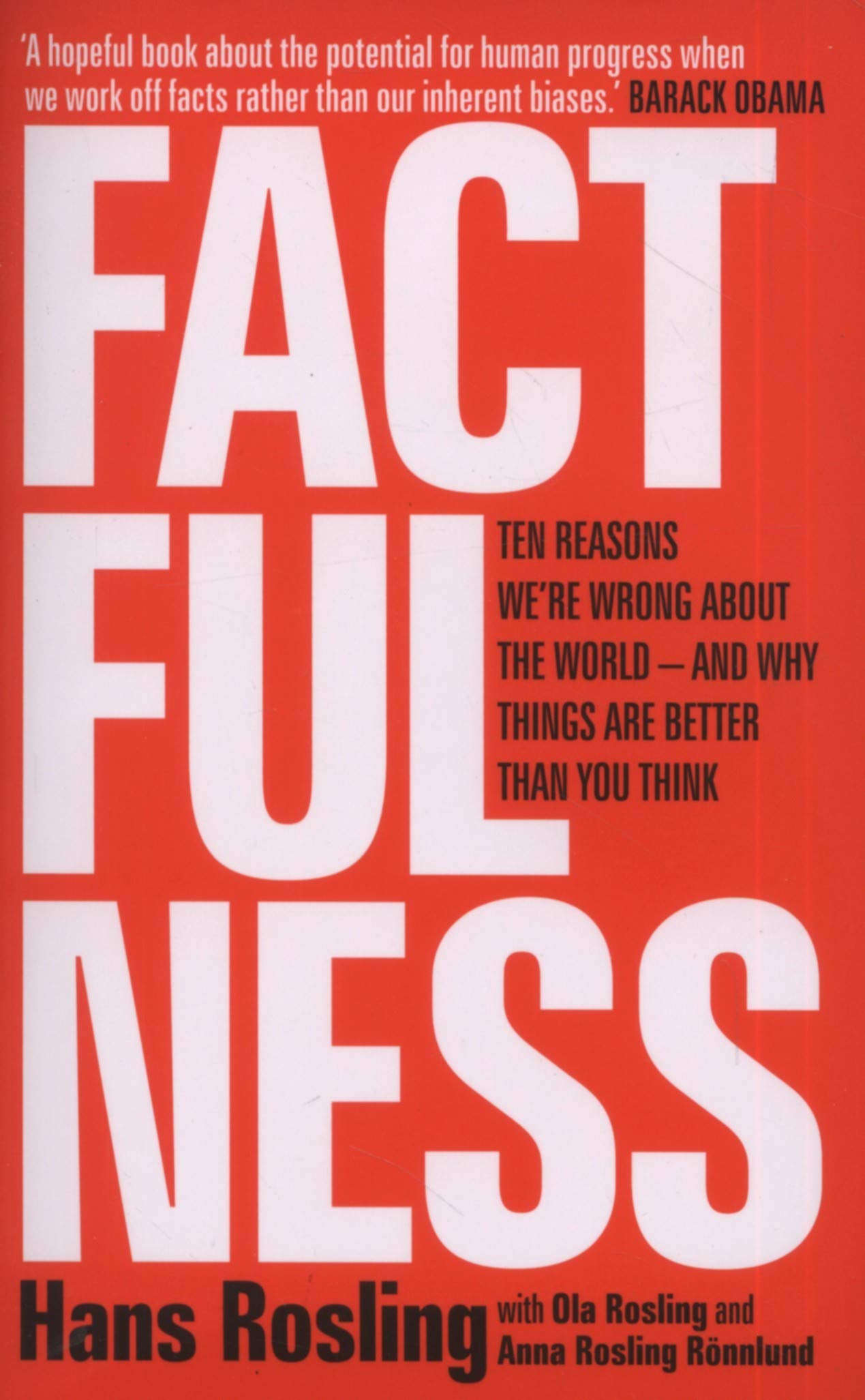

Ten Reasons We’re Wrong About The World—And Why Things Are Better Than You Think
“A hopeful book about the potential for human progress when we work off facts rather than our inherent biases” — Barack Obama
Things aren’t as bad as we think. Fact.
At last, a book that puts all the bad news in perspective—and brings us surprisingly positive data that show the state of the world has in fact improved over the last 50–200 years. Acclaimed by Bill Gates and Barack Obama, named an Observer “best brainy book of the decade”—destined to be a perennial bestseller and non-fiction classic. (let’s make that a fact!)
“Wonderful … a passionate and erudite message that is all more moving because it comes from beyond the grave… His knack for presentation and delight in statistics come across on every page. Who else would choose a chart of ‘guitars per capita’ as a proxy for human progress?” — Financial Times
“One of the most important books I’ve ever read—an indispensable guide to thinking clearly about the world.” — Bill Gates
Mon avis : Pas encore lu.
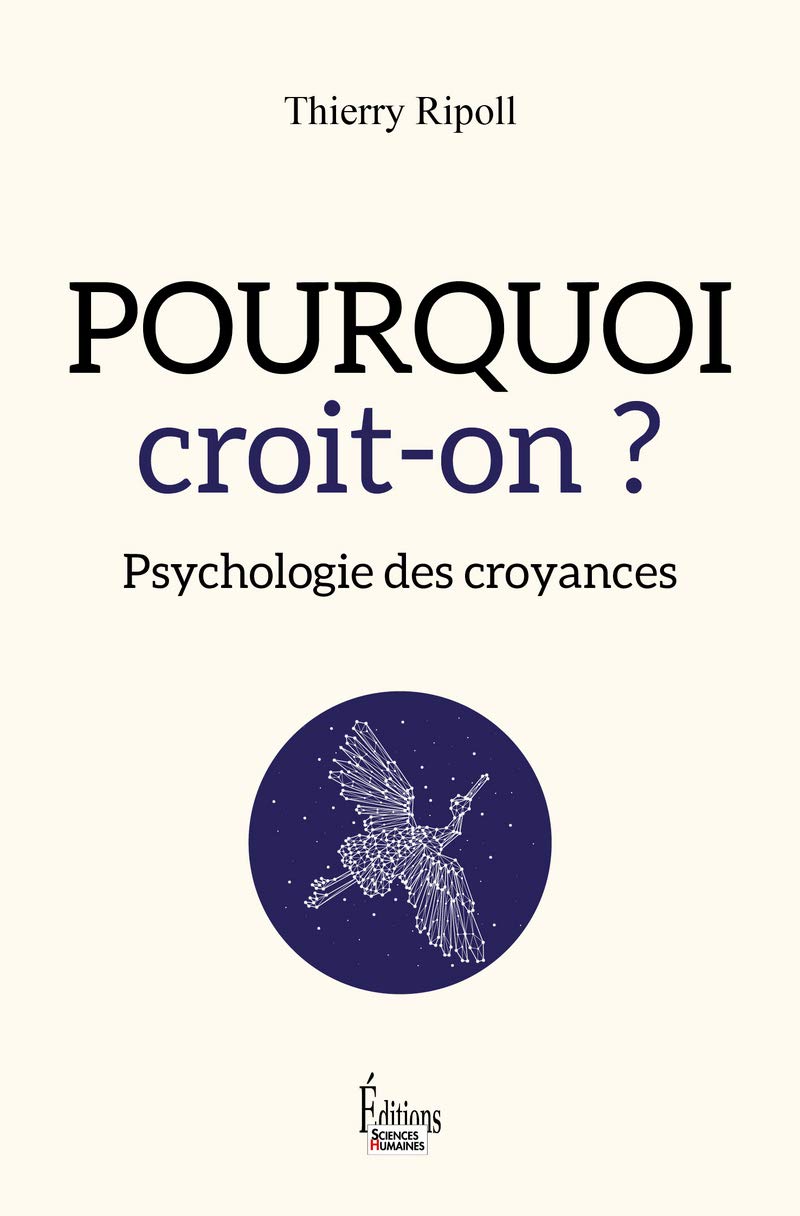

Psychologie des croyances
Comment la psychologie cognitive explique les croyances.
On oublie souvent que l’humain se distingue des autres espèces animales par sa propension à croire en l’existence d’un monde surnaturel. C’est ainsi que derrière la banalité d’un réel immédiatement accessible, il y aurait un monde proprement spirituel doté de forces qui nous échappent et qui pourtant infléchissent puissamment nos vies. La prise en compte de cette réalité dissimulée serait susceptible de donner un sens à notre existence, de la rendre plus acceptable et plus maîtrisable… Nous sommes là dans l’univers de la croyance.
Dans ce livre, Thierry Ripoll, Professeur de psychologie à l’Université d’Aix-Marseille, s’attelle à la passionnante et troublante tâche d’identifier les processus psychologiques et cérébraux qui nous conduisent à croire une multitude de choses (simples superstitions, croyance en l’existence d’énergies non matérielles, pouvoir des rituels et des prières, capacités extrasensorielles, croyances religieuses, théories du complot…). Ces processus, pour la plupart inconscients, n’épargnent personne, pas mêmes ceux qui affichent un scepticisme radical. À des degrés divers, les croyances trouvent toujours un espace pour se développer et conditionnent souvent à notre insu, nos vies, nos décisions, nos choix et notre rapport au monde.
S’il ne fait aucun doute que les croyances sont des réponses naturelles aux difficultés inhérentes que tout un chacun rencontre dans sa vie et si elles participent en partie à notre équilibre psychique, elles n’en constituent pas moins de redoutables tremplins à des comportements potentiellement dangereux pour le croyant comme pour la société dans laquelle il vit. En comprendre l’origine est donc essentiel. Dans ce livre instructif et mordant, Thierry Ripoll apporte un éclairage nouveau sur ce sujet épineux et sociétalement crucial.
Mon avis : Pas encore lu.


Le bruit de la conspiration
Notre monde est envahi de théories du complot. Comment les sciences permettent-elles de s’y retrouver entre vrai et faux complots, rationalité et irrationalité ?
De nos jours, chaque événement majeur (attentat terroriste, pandémie, mort de célébrité, etc.) donne lieu à des théories alternatives à la version officielle, les théories du complot, qui se diffusent à la vitesse instantanée d’Internet.
À la lumière de nombreuses études scientifiques, ce livre explore les raisons qui font que tous, nous pouvons être attirés par ce genre de récit, et pourquoi certains y croient plus que d’autres. L’auteur analyse les conséquences de ce phénomène, puis propose des pistes pour lutter contre la prolifération des théories complotistes.
Mon avis : Pas encore lu.
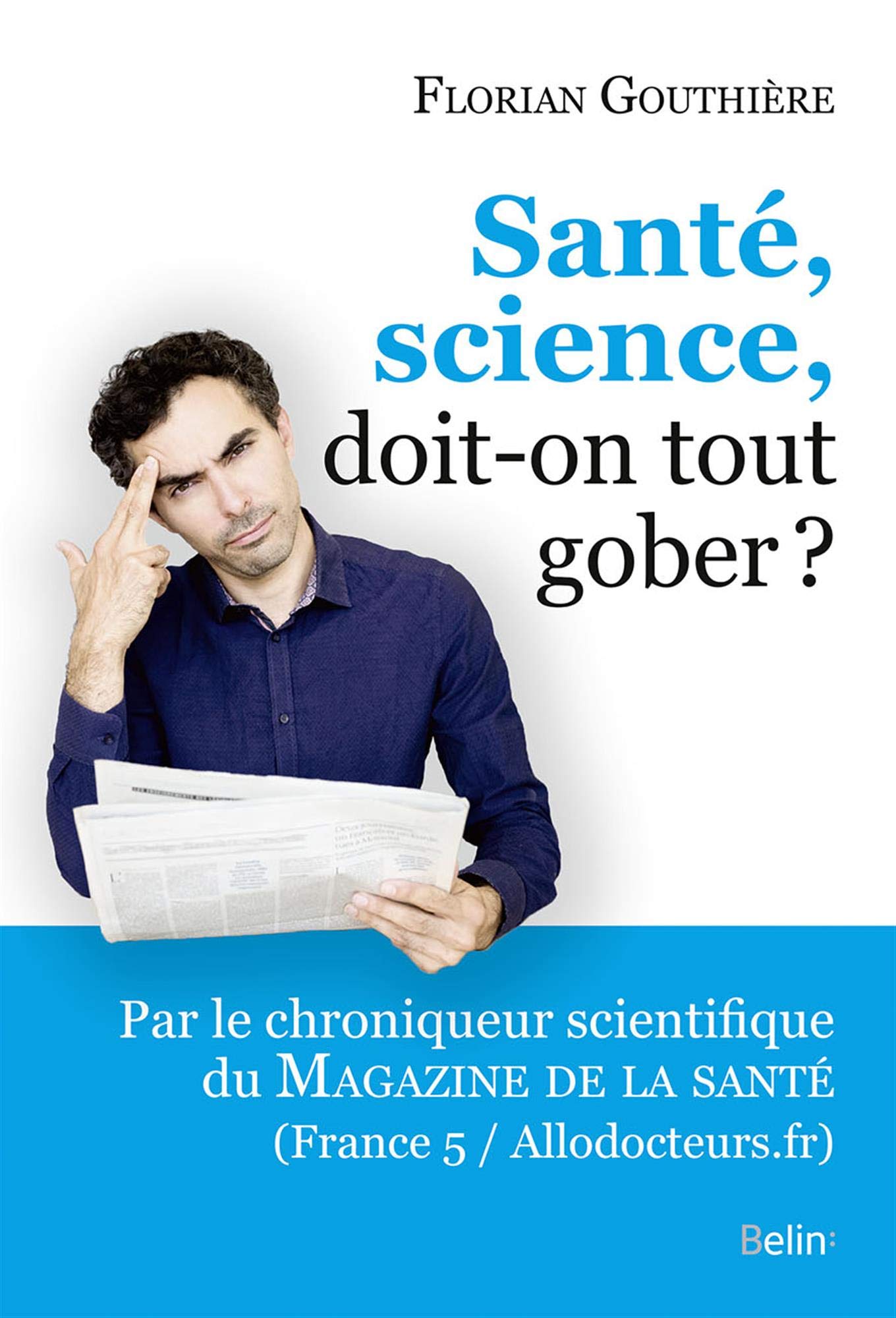

« Une simple pommade antibiotique efficace à 100 % contre la maladie de Lyme ! » ; « Sinusite chronique : attention aux risques de cancer ! » ; « Le temps de sommeil moins important les soirs de pleine Lune ! » ; « Des scientifiques prouvent qu’il y aurait une vie après la mort ! » ; « Les mouches transmettent la peste ! » ; « Selon un cancérologue, il faut faire l’amour sans préservatif ! »…
Gros titres de journaux, dépêches AFP, reportages TV fourmillent d’infos de ce genre, alarmistes, sensationnalistes… et généralement rigoureusement fausses. Alors, info ou intox ? Comment s’y retrouver dans l’information santé, et plus généralement scientifique ?
L’ambition principale de ce petit livre est d’aider à diminuer les risques de nous faire berner. Il explique comment la plupart des connaissances qui arrivent jusqu’à nous sont produites et circulent, ainsi que les critères pour leur faire confiance ou s’en méfier. Pour y parvenir, il invite le lecteur à explorer, instruments de navigation à la main, plusieurs territoires faussement familiers : celui de notre jugement (chapitres consacrés aux méthodes de l’esprit critique), celui de nos idées reçues (chapitres consacrées à diverses notions indispensables en sciences et en santé) et celui de la fabrique de l’information.
Mon avis : Pas encore lu.
Dérives sectaires
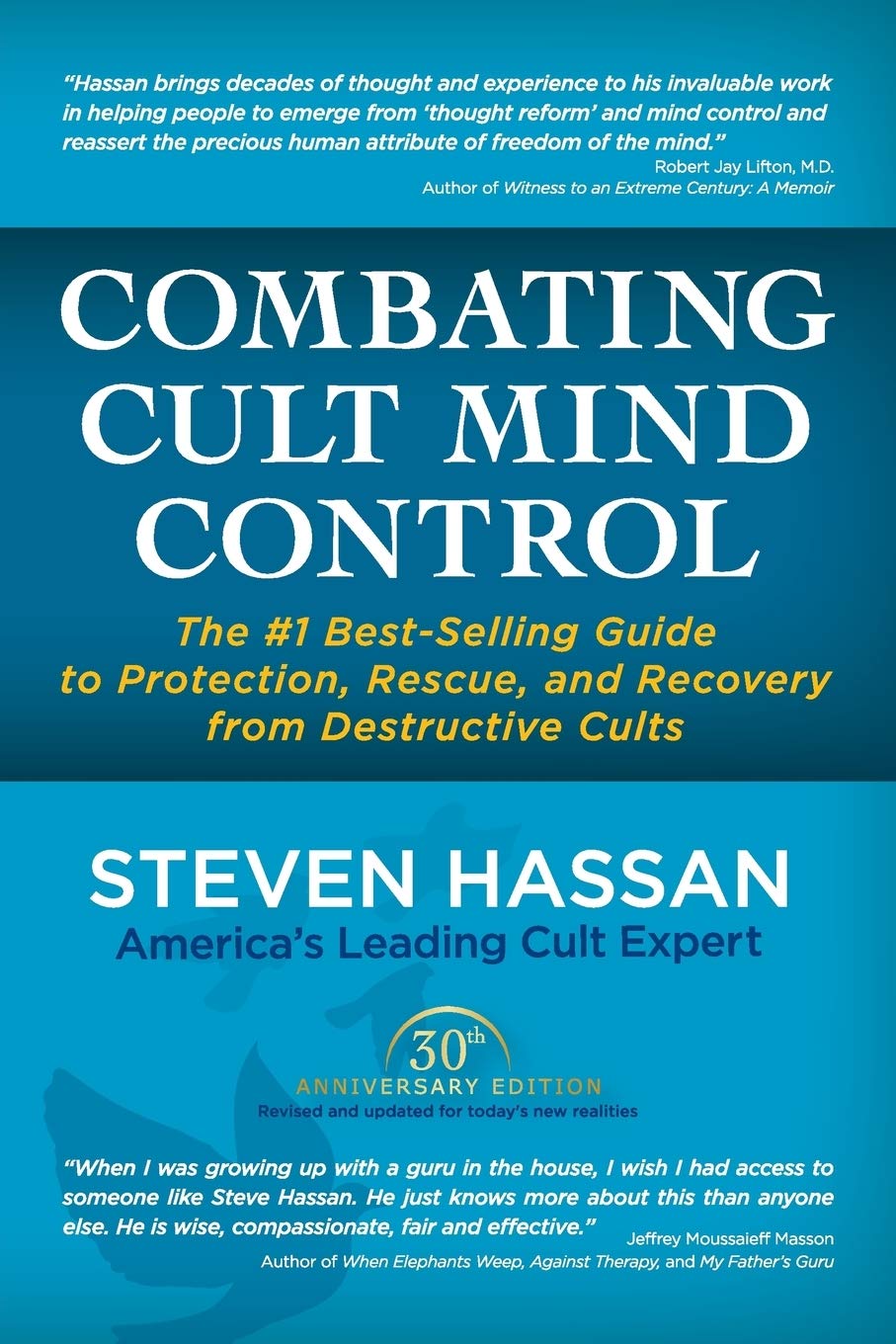

The #1 Best-selling Guide to Protection, Rescue, and Recovery from Destructive Cults
This 2018, 30th-anniversary edition honors the 40th anniversary of the tragedy in Jonestown, Guyana. On November 18th, 1978, over 900 people including a U.S. congressman Leo Ryan died because of Cult Leader Jim Jones. Over 300 were children forced to drink cyanide-laced Kool-Aid by their parents who believed they were doing God’s will. The techniques of undue influence have evolved dramatically, and continue to do so. Today, a vast array of methods exist to deceive, manipulate, and indoctrinate people into closed systems of obedience and dependency. If you are reading this updated book for the first time, please know that you have found a safe, respectful, compassionate place.
This book can help you protect or regain your sanity, freedom, and health. It can also help you protect others from the use of mind control techniques.
In this 30th anniversary volume you will find:
• New stories of people who fell under the sway of cults and other forms of undue influence but who were able to break free.
• New information on the many sophisticated ways that social media are now used for mind control.
• Updates on the many types of organizations that use mind control.
• Information on the neuroscience behind mind control.
• A look at what legislators, courts, mental health professionals, and ordinary citizens can do to resist mind control and make our world a safer place.
Sadly, the essential information in this book is still not widely known or understood. People around the world remain largely unprepared for the new realities of mind control. But you are far from helpless. There is a great deal you can do to stay safe, sane, and whole—and to help the people you care about to do the same. And if someone you love is already part of a mind control group, there is much you can do to help them break free and rebuild their life. This book will give you the tools you need. As you read this book, you will learn to develop, use, and trust your critical thinking skills; your intuition; your bodily and emotional awareness; your ability to ask the right questions; and your skill at doing quick, useful research. You will also learn to create a healthy balance of openness and skepticism. As you will see, the entire process begins and ends with discernment.
Mon avis : Pas encore lu.
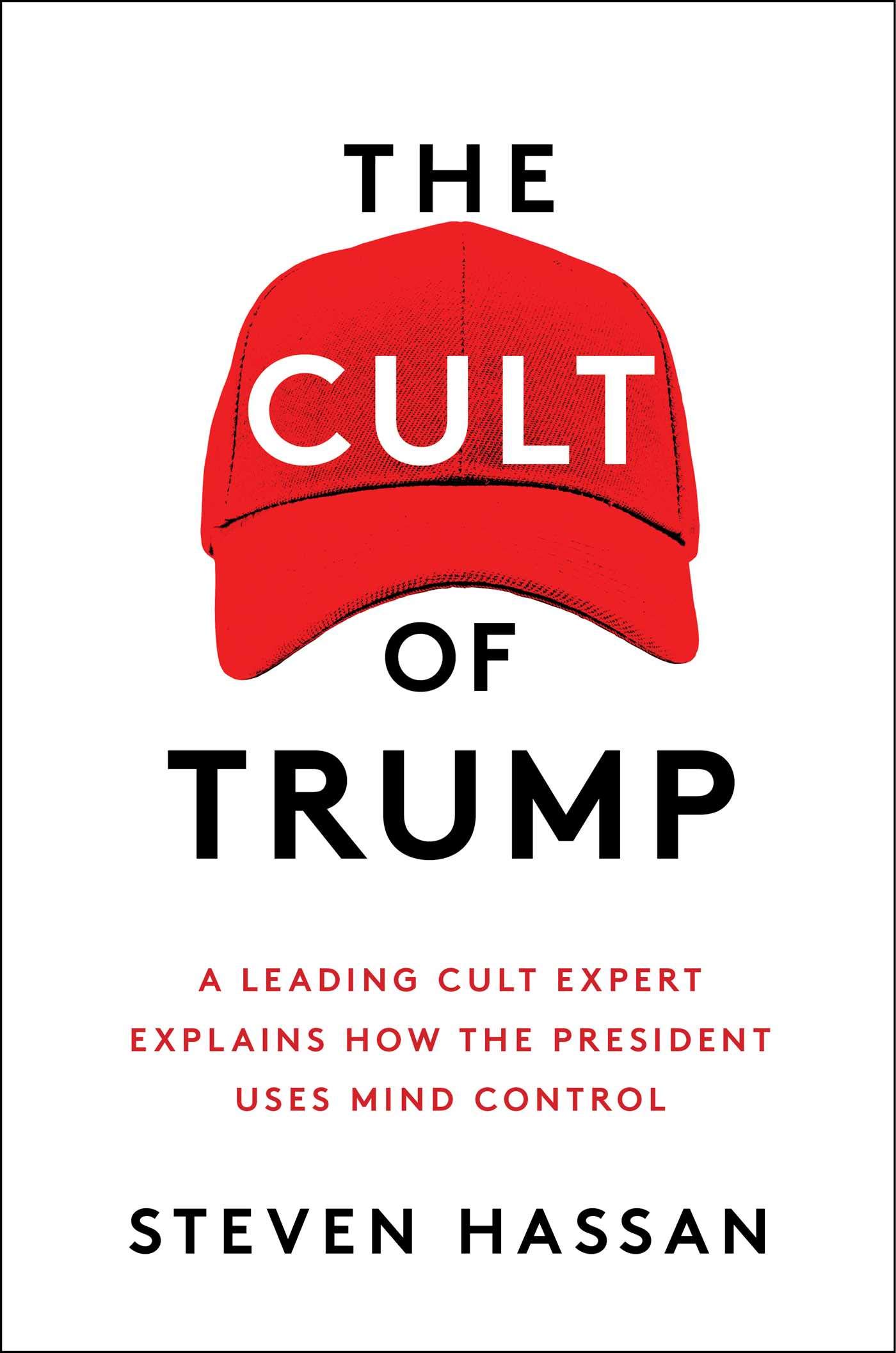

A Leading Cult Expert Explains How the President Uses Mind Control
One of America’s leading experts in cults and mind-control provides an eye-opening analysis of Trump and the indoctrination tactics he uses to build a fanatical devotion in his supporters.
Over the past two years, Trump’s behavior has become both more disturbing and yet increasingly familiar. He relies on phrases like, “fake news,” “build the wall,” and continues to spread the divisive mentality of us-vs.-them. He lies constantly, has no conscience, never admits when he is wrong, and projects all of his shortcomings on to others. He has become more authoritarian, more outrageous, and yet many of his followers remain blindly devoted. Scott Adams, the creator of Dilbert and a major Trump supporter, calls him one of the most persuasive people living. His need to squash alternate information and his insistence of constant ego stroking are all characteristics of other famous leaders—cult leaders.
In The Cult of Trump, mind-control and licensed mental health expert Steven Hassan draws parallels between our current president and people like Jim Jones, David Koresh, Ron Hubbard and Sun Myung Moon, arguing that this presidency is in many ways like a destructive cult. He specifically details the ways in which people are influenced through an array of social psychology methods and how they become fiercely loyal and obedient. Hassan was a former “Moonie” himself, and he draws on his forty years of personal and professional experience studying hypnosis and destructive cults, working as a deprogrammer, and a strategic communications interventionist. He emphasizes why it’s crucial that we recognize ways to identify and protect ourselves and our loved ones.
The Cult of Trump is an accessible and in-depth analysis of the president, showing that under the right circumstances, even sane, rational, well-adjusted people can be persuaded to believe the most outrageous ideas. Hassan’s book is essential reading for anyone wanting to understand the Trump phenomenon and looking for a way forward.
Mon avis : Pas encore lu.
Politique
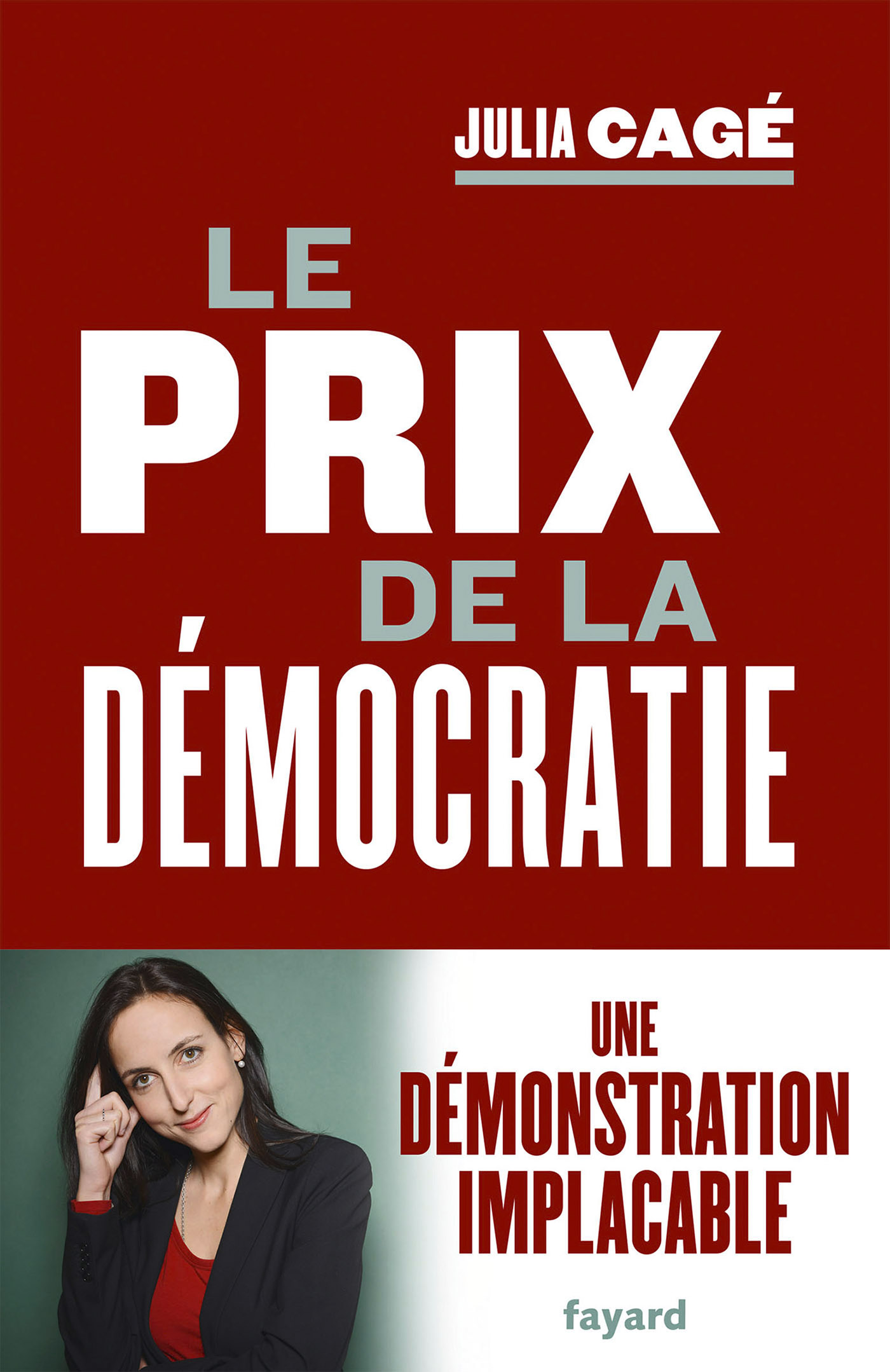

Une personne, une voix : la démocratie repose sur une promesse d’égalité qui trop souvent vient se fracasser sur le mur de l’argent. Financement des campagnes, dons aux partis politiques, prise de contrôle des médias : depuis des décennies, le jeu démocratique est de plus en plus capturé par les intérêts privés. Se fondant sur une étude inédite des financements politiques privés et publics dans une dizaine de pays sur plus de cinquante ans, Julia Cagé passe au scalpel l’état de la démocratie, décortique les modèles nationaux, et fait le récit des tentatives – souvent infructueuses, mais toujours instructives – de régulation des relations entre argent et politique.
Aux États-Unis, où toute la régulation de la démocratie a été balayée par idéologie, le personnel politique ne répond plus qu’aux préférences des plus favorisés. En France, l’État a mis en place un système de réductions fiscales permettant aux plus riches de se voir rembourser la plus grande partie de leurs dons aux partis politiques, alors que les plus pauvres, eux, paient plein pot.
Ces dérives ne viennent pas d’un complot savamment orchestré mais de notre manque collectif d’implication. La question du financement de la démocratie n’a jamais véritablement été posée ; celle de la représentation des classes populaires doit l’être sur un mode plus radical. Pour sortir de l’impasse, voici des propositions qui révolutionnent la façon de penser la politique, des réformes innovantes pour une démocratie retrouvée.
Ancienne élève de l’École normale supérieure et de l’Université Harvard, Julia Cagé est professeure d’économie à Sciences Po Paris. Elle a publié Sauver les médias. Capitalisme, financement participatif et démocratie (Le Seuil, 2015).
Mon avis : Pas encore lu.
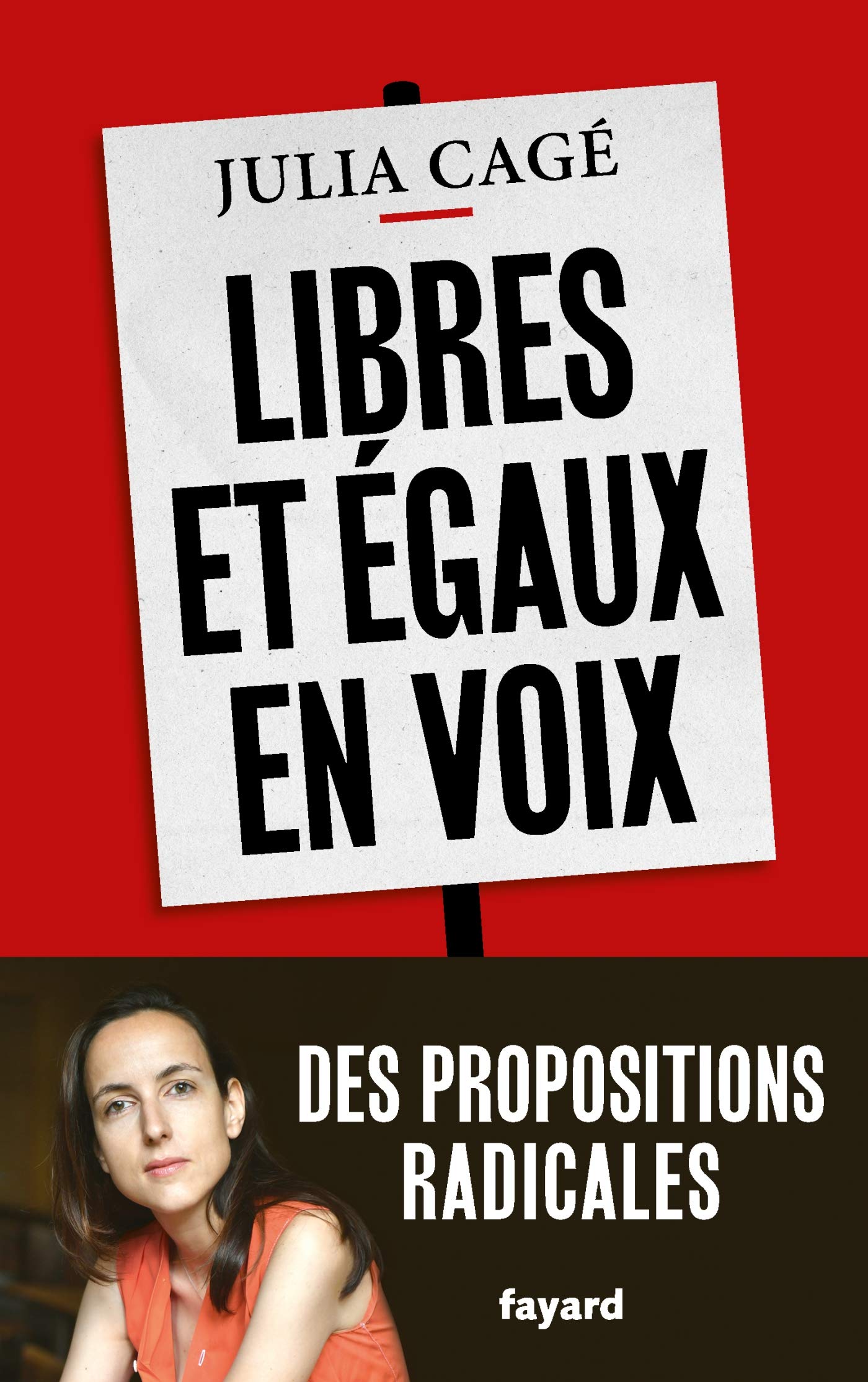

La démocratie n’existe pas. Elle reste à inventer.
Loin d’être un refus de la politique, la crise actuelle de la démocratie représentative se manifeste par le combat de citoyens demandant davantage de démocratie, de participation et d’égalité.
Libres et égaux en voix propose ainsi de donner une voix et des places à celles et ceux qui en ont été trop longtemps privés : les femmes, les classes populaires, les minorités. D’abord en repensant notre système électoral et en garantissant la représentation parmi les parlementaires de la réalité de la société. Ensuite en proposant un nouvel équilibre entre la démocratie représentative et un usage raisonné du référendum. Enfin en donnant aux citoyens les moyens de reprendre le contrôle des partis, des médias et de la philanthropie, afin de dessiner un nouvel horizon politique égalitaire.
En tant que chercheuse et citoyenne, Julia Cagé renouvelle en profondeur la réflexion sur l’égalité politique dans un plaidoyer armé de propositions concrètes pour changer les règles du jeu politique. Nous pouvons faire mieux que le monde dans lequel nous vivons ; fini de rêver, voici venu le temps d’agir !
Professeure d’économie à Sciences Po Paris, Julia Cagé est l’autrice de Sauver les médias (Seuil, 2015) et Le prix de la démocratie (Fayard, 2018), qui a reçu le prix Pétrarque de l’essai Le Monde/France Culture.
Mon avis : Pas encore lu.
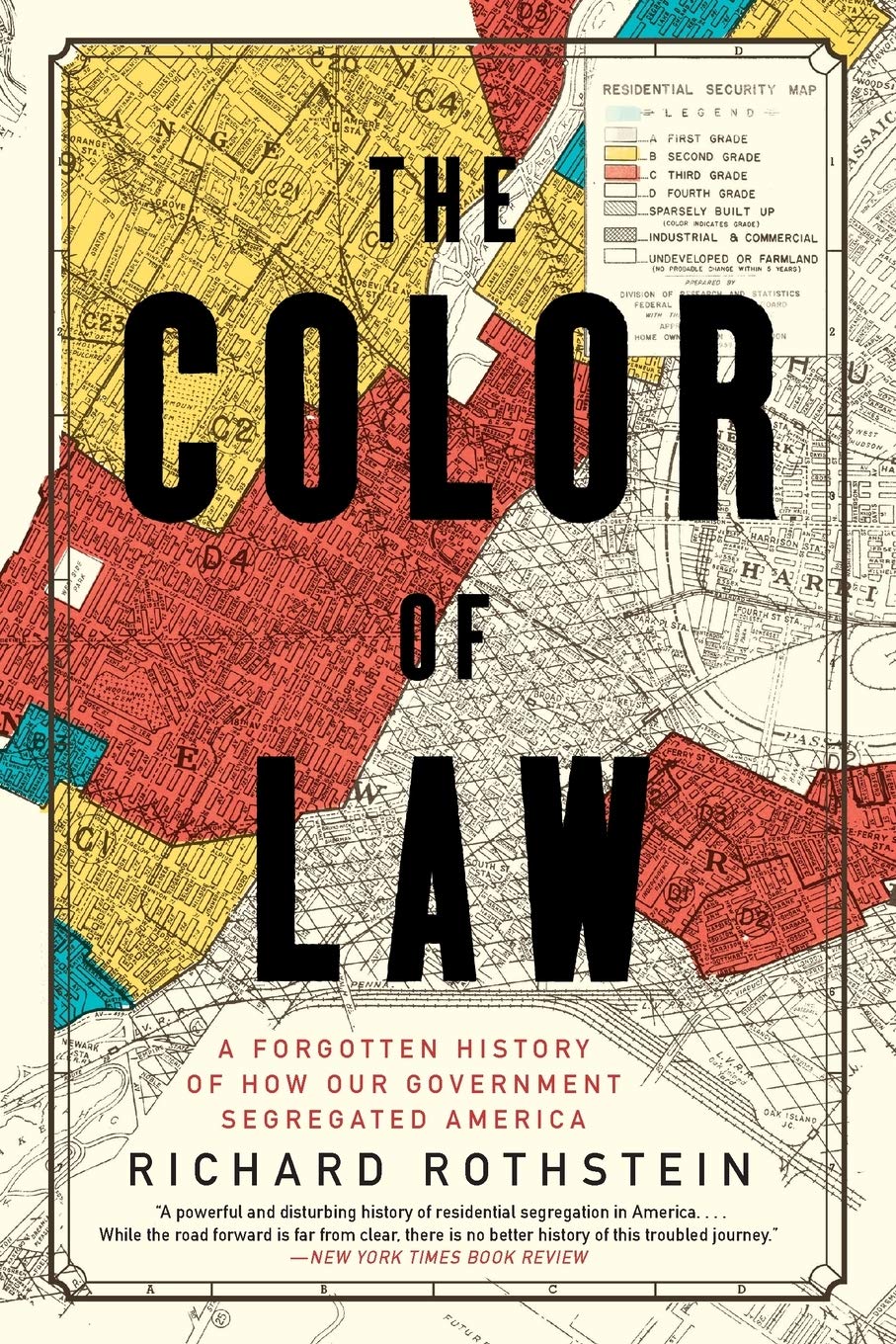

A Forgotten History of How Our Government Segregated America
In this groundbreaking history of the modern American metropolis, Richard Rothstein, a leading authority on housing policy, explodes the myth that America’s cities came to be racially divided through de facto segregation—that is, through individual prejudices, income differences, or the actions of private institutions like banks and real estate agencies. Rather, The Color of Law incontrovertibly makes clear that it was de jure segregation—the laws and policy decisions passed by local, state, and federal governments—that actually promoted the discriminatory patterns that continue to this day.
Through extraordinary revelations and extensive research that Ta-Nehisi Coates has lauded as “brilliant” (The Atlantic), Rothstein comes to chronicle nothing less than an untold story that begins in the 1920s, showing how this process of de jure segregation began with explicit racial zoning, as millions of African Americans moved in a great historical migration from the south to the north.
As Jane Jacobs established in her classic The Death and Life of Great American Cities, it was the deeply flawed urban planning of the 1950s that created many of the impoverished neighborhoods we know. Now, Rothstein expands our understanding of this history, showing how government policies led to the creation of officially segregated public housing and the demolition of previously integrated neighborhoods. While urban areas rapidly deteriorated, the great American suburbanization of the post-World War II years was spurred on by federal subsidies for builders on the condition that no homes be sold to African Americans. Finally, Rothstein shows how police and prosecutors brutally upheld these standards by supporting violent resistance to black families in white neighborhoods.
The Fair Housing Act of 1968 prohibited future discrimination but did nothing to reverse residential patterns that had become deeply embedded. Yet recent outbursts of violence in cities like Baltimore, Ferguson, and Minneapolis show us precisely how the legacy of these earlier eras contributes to persistent racial unrest. “The American landscape will never look the same to readers of this important book” (Sherrilyn Ifill, president of the NAACP Legal Defense Fund), as Rothstein’s invaluable examination shows that only by relearning this history can we finally pave the way for the nation to remedy its unconstitutional past.
Mon avis : Pas encore lu.
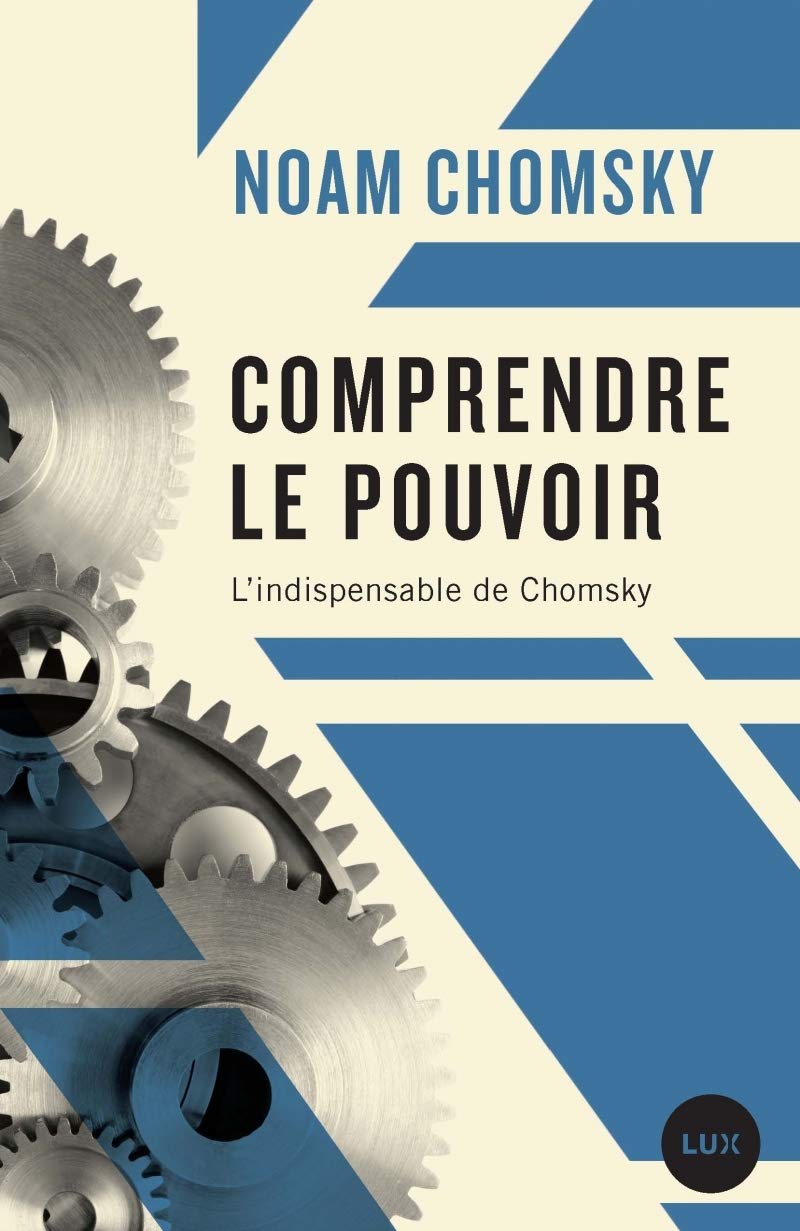

L’indispensable de Chomsky
Les discussions et conférences rassemblées dans Comprendre le pouvoir donnent une perspective profonde et généreuse pour l’évaluation de l’état du monde et pour la compréhension du pouvoir, depuis le fonctionnement des médias modernes jusqu’à la globalisation, en passant par le système d’éducation, les crises environnementales, les stratégies militantes, le complexe militaro-industriel, et plus encore. Comprendre le pouvoir couvre ainsi toute l’étendue de la pensée de Chomsky, à laquelle il constitue la meilleure introduction qui soit.
Ce qui distingue la pensée politique de Noam Chomsky n’est pas une vision nouvelle ou une seule idée synthétique. Sa grande contribution réside dans sa maîtrise d’une énorme quantité d’informations factuelles, et dans son habileté surprenante à démasquer, au cas par cas, les mécanismes et les tromperies des puissantes organisations du monde d’aujourd’hui. Sa méthode implique l’enseignement au moyen d’exemples incitant les gens à penser par eux-mêmes de façon critique. Comprendre le pouvoir épouse à merveille cette méthode en présentant, sous forme de dialogues clairs, une vue d’ensemble des réflexions de ce grand intellectuel états-unien.
Mon avis : Pas encore lu.
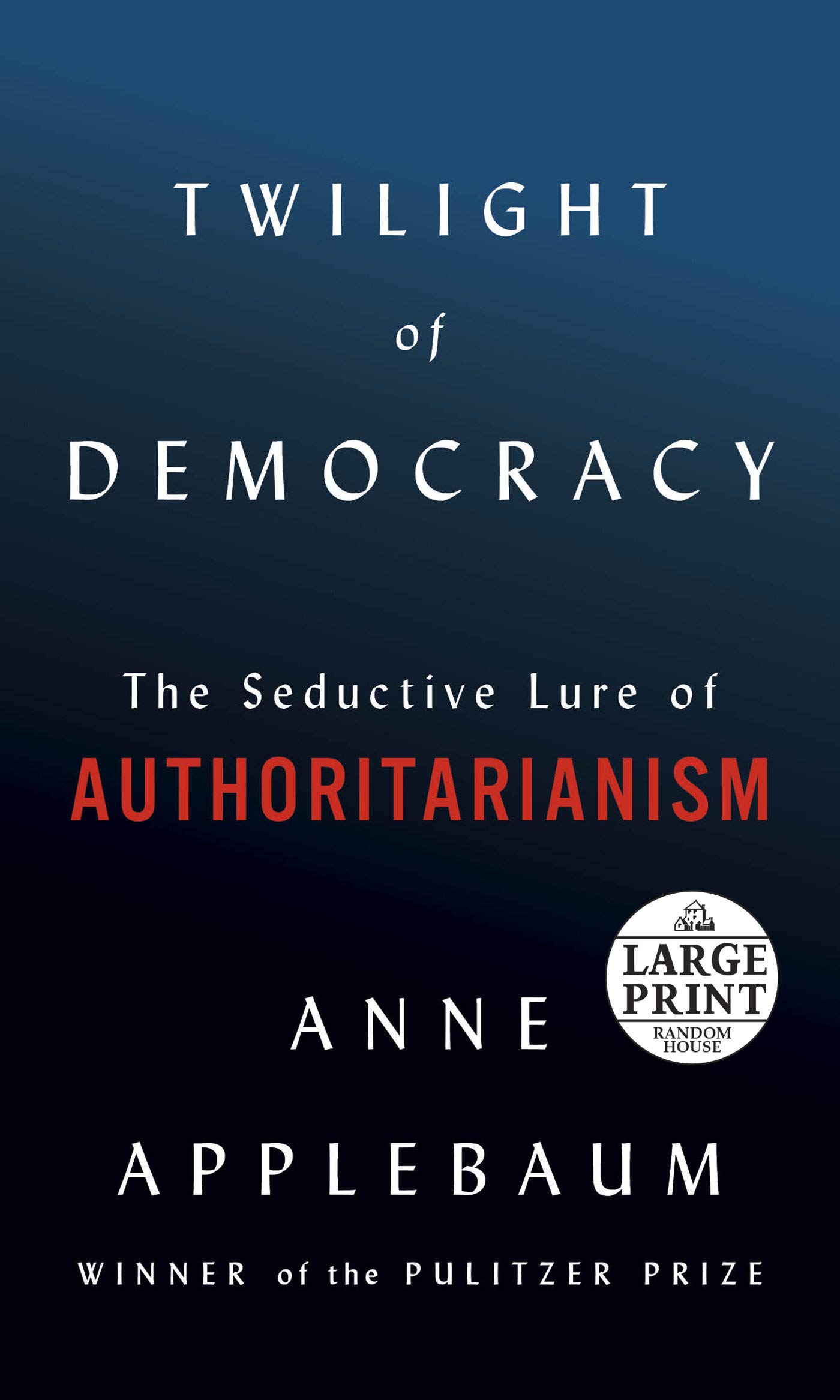

The Seductive Lure of Authoritarianism
A Pulitzer Prize–winning historian explains, with electrifying clarity, why elites in democracies around the world are turning toward nationalism and authoritarianism.
From the United States and Britain to continental Europe and beyond, liberal democracy is under siege, while authoritarianism is on the rise. In Twilight of Democracy, Anne Applebaum, an award-winning historian of Soviet atrocities who was one of the first American journalists to raise an alarm about antidemocratic trends in the West, explains the lure of nationalism and autocracy. In this captivating essay, she contends that political systems with radically simple beliefs are inherently appealing, especially when they benefit the loyal to the exclusion of everyone else.
Despotic leaders do not rule alone; they rely on political allies, bureaucrats, and media figures to pave their way and support their rule. The authoritarian and nationalist parties that have arisen within modern democracies offer new paths to wealth or power for their adherents. Applebaum describes many of the new advocates of illiberalism in countries around the world, showing how they use conspiracy theory, political polarization, social media, and even nostalgia to change their societies.
Elegantly written and urgently argued, Twilight of Democracy is a brilliant dissection of a world-shaking shift and a stirring glimpse of the road back to democratic values.
Mon avis : Pas encore lu.
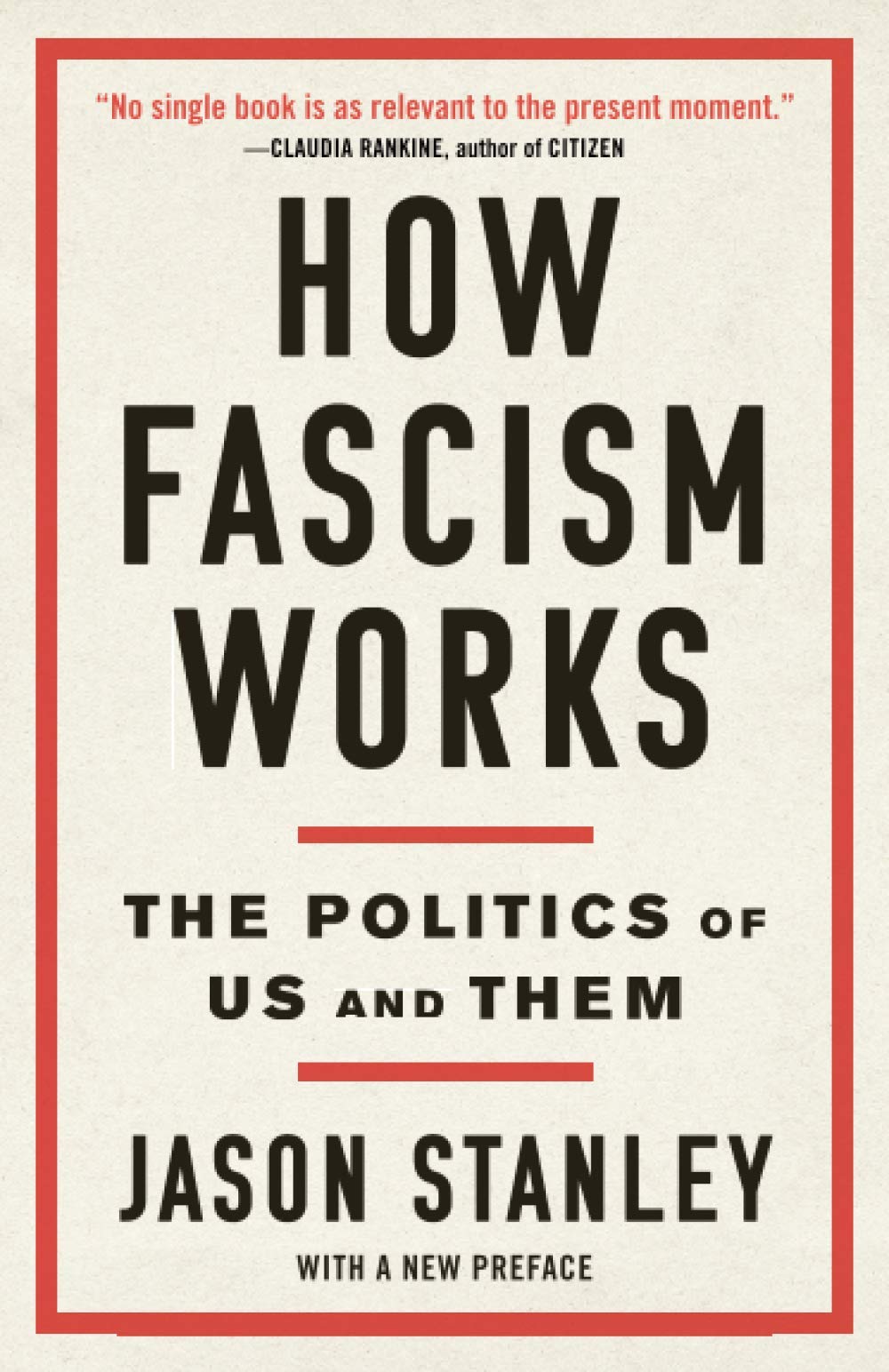

The Politics of Us and Them
As the child of refugees of World War II Europe and a renowned philosopher and scholar of propaganda, Jason Stanley has a deep understanding of how democratic societies can be vulnerable to fascism: Nations don’t have to be fascist to suffer from fascist politics. In fact, fascism’s roots have been present in the United States for more than a century. Alarmed by the pervasive rise of fascist tactics both at home and around the globe, Stanley focuses here on the structures that unite them, laying out and analyzing the ten pillars of fascist politics—the language and beliefs that separate people into an “us” and a “them.” He knits together reflections on history, philosophy, sociology, and critical race theory with stories from contemporary Hungary, Poland, India, Myanmar, and the United States, among other nations. He makes clear the immense danger of underestimating the cumulative power of these tactics, which include exploiting a mythic version of a nation’s past; propaganda that twists the language of democratic ideals against themselves; anti-intellectualism directed against universities and experts; law and order politics predicated on the assumption that members of minority groups are criminals; and fierce attacks on labor groups and welfare. These mechanisms all build on one another, creating and reinforcing divisions and shaping a society vulnerable to the appeals of authoritarian leadership.
By uncovering disturbing patterns that are as prevalent today as ever, Stanley reveals that the stuff of politics—charged by rhetoric and myth—can quickly become policy and reality. Only by recognizing fascists politics, he argues, may we resist its most harmful effects and return to democratic ideals.
Mon avis : Pas encore lu.
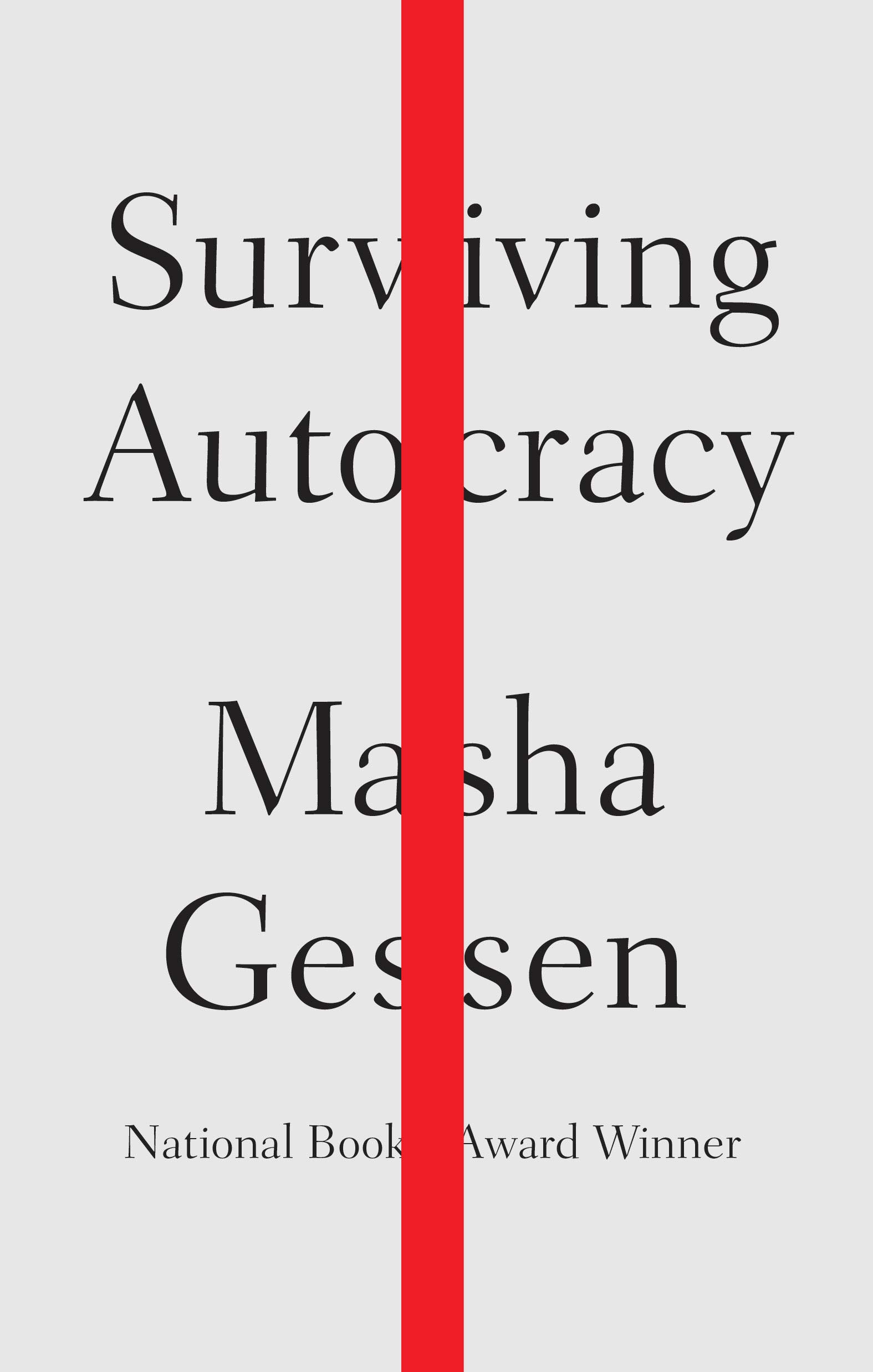

In the run-up to the 2016 election, Masha Gessen stood out from other journalists for the ability to convey the ominous significance of Donald Trump’s speech and behavior, unprecedented in a national candidate. Within forty-eight hours of his victory, the essay “Autocracy: Rules for Survival” had gone viral, and Gessen’s coverage of Trump’s norm-smashing presidency became essential reading for a citizenry struggling to wrap their heads around the unimaginable. Thanks to the special perspective that is the legacy of a Soviet childhood and two decades covering the resurgence of totalitarianism in Russia, Gessen has a sixth sense for signs of autocracy—and the unique cross-cultural fluency to delineate its emergence to Americans. This incisive book provides an indispensable overview of the calamitous trajectory of the past few years. Gessen not only highlights the corrosion of the media, the judiciary, and the cultural norms we hoped would save us but also tells us the story of how a short few years have changed us from a people who saw ourselves as a nation of immigrants to a populace haggling over a border wall, heirs to a degraded sense of truth, meaning, and possibility. Surviving Autocracy is an inventory of ravages but also a beacon to recovery—or to enduring, and resisting, an ongoing assault.
Mon avis : Pas encore lu.
Économie
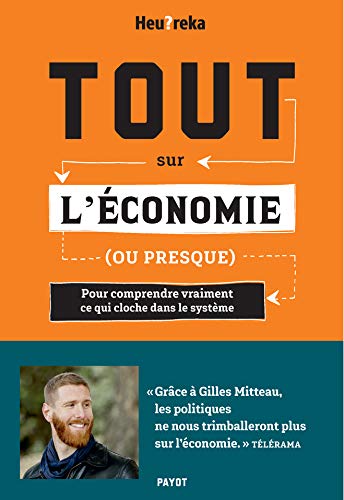

Pour comprendre vraiment ce qui cloche dans le système
D’où vient l’argent que me prête la banque ? Qu’appelle-t-on la dette ? Qu’est-ce qu’une obligation ? Pourquoi les États veulent-ils absolument « sauver » les banques ? Quel est le rôle des économistes au sein de la société ? Quelle relation entretiennent-ils avec les politiques ? Et pourquoi est-il crucial que nous, citoyens, comprenions les principes de l’économien et de la finance ?
Avec pédagogie et humour, en s’appuyant sur des infographies éclairantes, Gilles Mitteau nous explique tout d’un système omniprésent dans nos vies. Une lecture nécessaire pour mieux appréhender les enjeux actuels — emprise de la finance, crise écologique, dépendance énergétique — afin d’interroger les règles que le capitalisme a érigées en lois immuables et qu’il est urgent de remettre en cause aujourd’hui.
Après avoir été trader à Wall Street, Gilles Mitteau est devenu vulgarisateur afin de combattre les préjugés sur l’économie et la finance. Soucieux de former le grand public à ces deux disciplines réputées ardues et impopulaires, il crée en 2015 une chaîne YouTube baptisée Heu?reka, qui connaît un véritable succès et compte plus de 200 000 abonnés.
Mon avis : Pas encore lu.
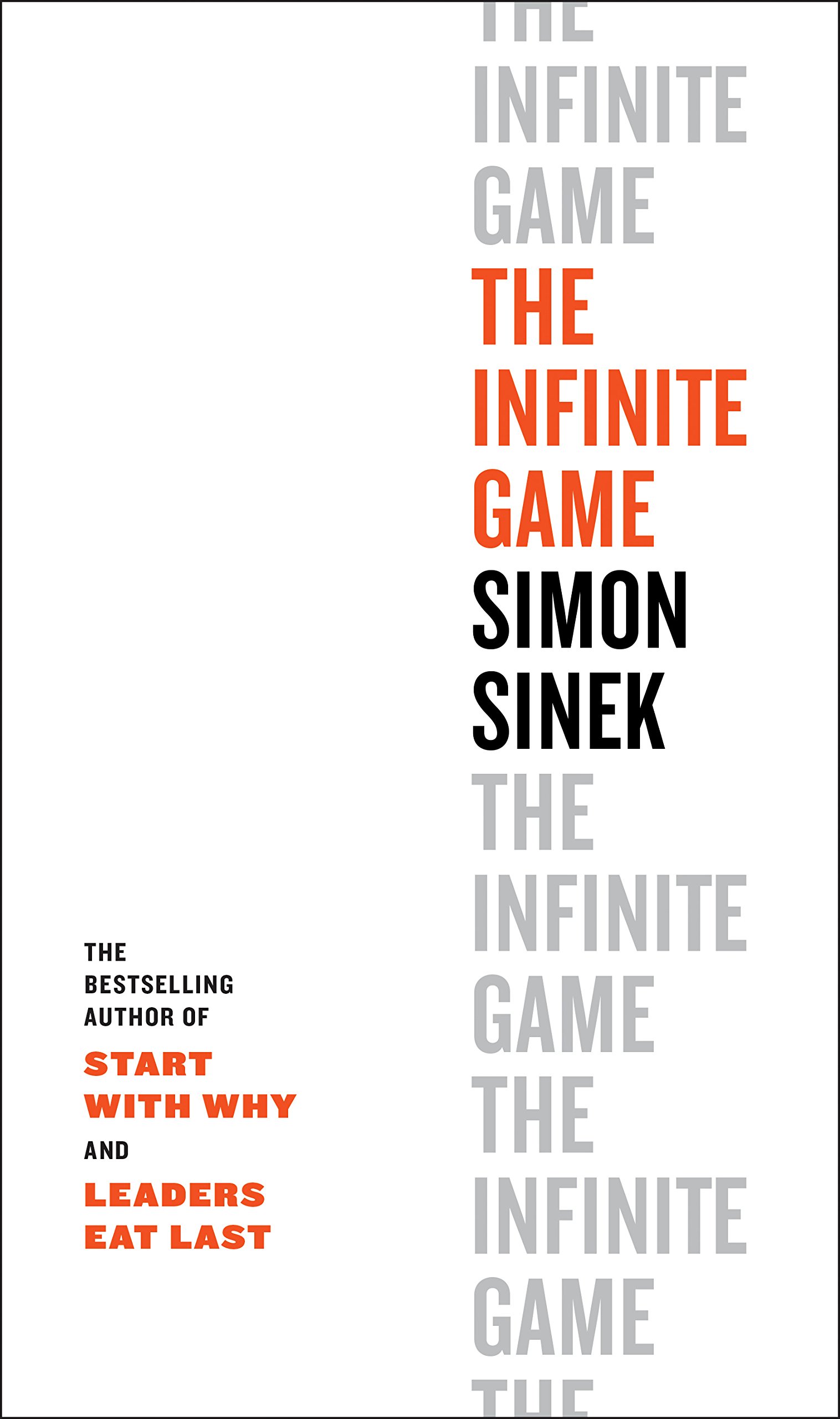

How do we win a game that has no end? Finite games, like football or chess, have known players, fixed rules and a clear endpoint. The winners and losers are easily identified. Infinite games, games with no finish line, like business or politics, or life itself, have players who come and go. The rules of an infinite game are changeable while infinite games have no defined endpoint. There are no winners or losers—only ahead and behind.
The question is, how do we play to succeed in the game we’re in?
In this revelatory new book, Simon Sinek offers a framework for leading with an infinite mindset. On one hand, none of us can resist the fleeting thrills of a promotion earned or a tournament won, yet these rewards fade quickly. In pursuit of a Just Cause, we will commit to a vision of a future world so appealing that we will build it week after week, month after month, year after year. Although we do not know the exact form this world will take, working toward it gives our work and our life meaning.
Leaders who embrace an infinite mindset build stronger, more innovative, more inspiring organizations. Ultimately, they are the ones who lead us into the future.
Mon avis : Pas encore lu.
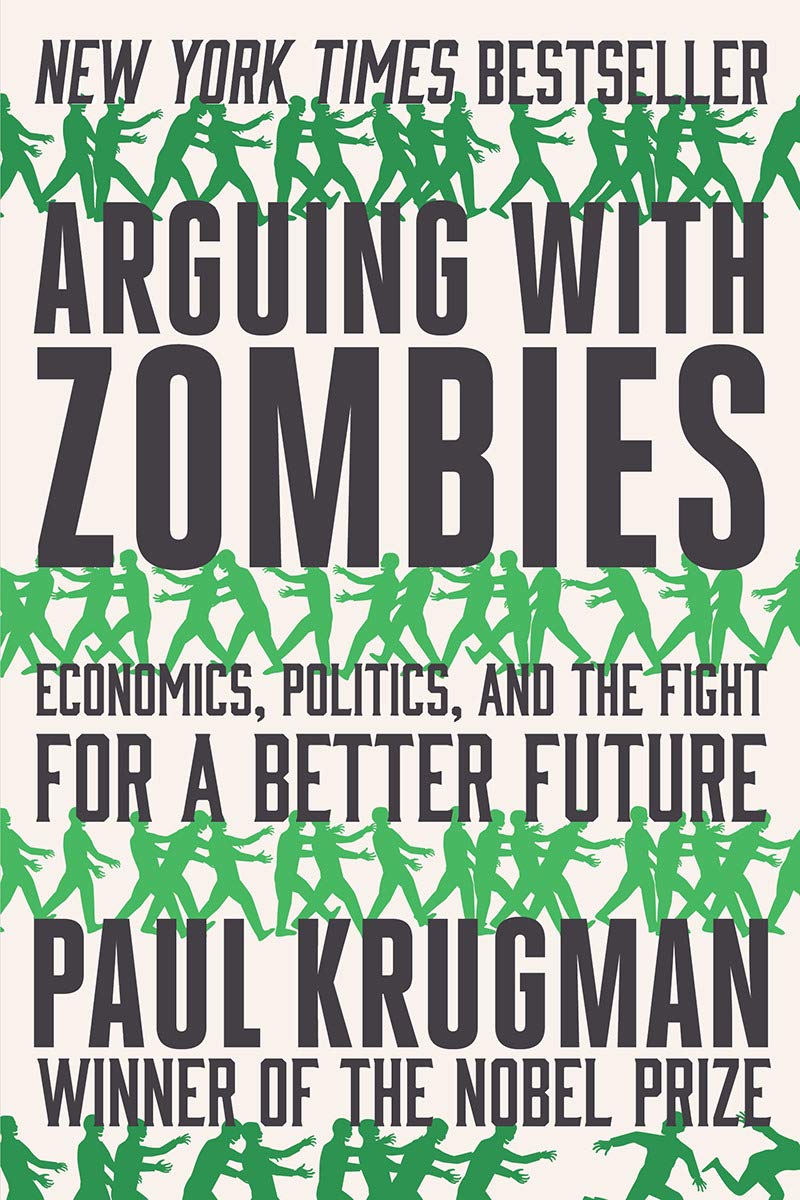

Economics, Politics, and the Fight for a Better Future
There is no better guide to basic economics than Nobel Prize-winning economist and New York Times columnist Paul Krugman. Likewise, there is no stronger foe of zombie economics, the misunderstandings that just won’t die.
In Arguing with Zombies, Krugman tackles many of these misunderstandings in a series of concise, digestible chapters. With quick, vivid sketches, this New York Times bestseller turns readers into intelligent consumers of the daily news and unlocks the concepts behind the greatest economic policy issues of our time.
Arguing with Zombies is an indispensable guide to two decades’ worth of political and economic discourse in the United States and around the globe. Writing at the height of his powers, Krugman delivers an instant classic that can serve as a reference point for this and future generations.
Mon avis : Pas encore lu.
Société
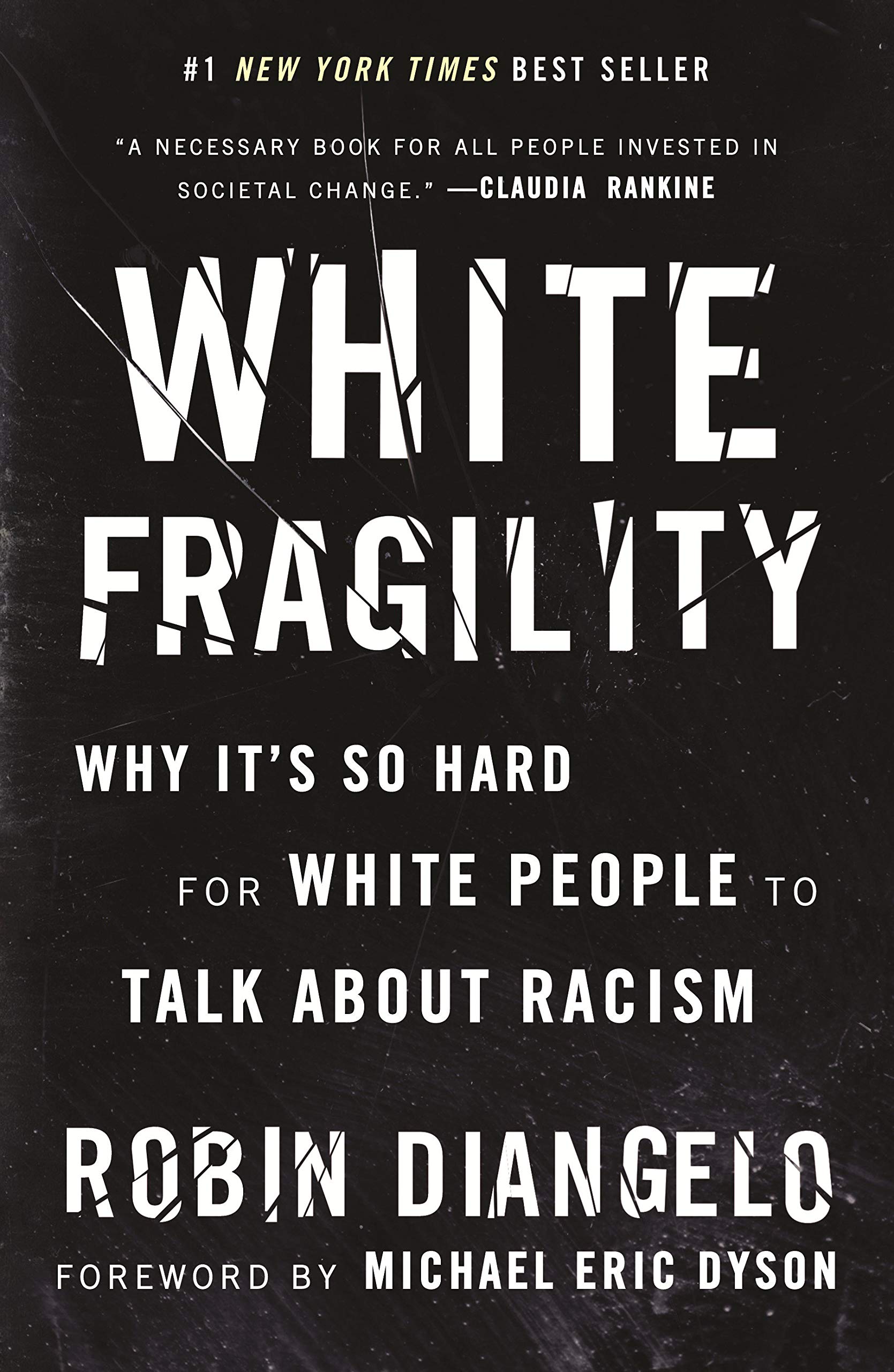

Why It’s So Hard for White People to Talk About Racism
In this “vital, necessary, and beautiful book” (Michael Eric Dyson), antiracist educator Robin DiAngelo deftly illuminates the phenomenon of white fragility and “allows us to understand racism as a practice not restricted to “bad people” (Claudia Rankine). Referring to the defensive moves that white people make when challenged racially, white fragility is characterized by emotions such as anger, fear, and guilt, and by behaviors including argumentation and silence. These behaviors, in turn, function to reinstate white racial equilibrium and prevent any meaningful cross-racial dialogue. In this in-depth exploration, DiAngelo examines how white fragility develops, how it protects racial inequality, and what we can do to engage more constructively.
Mon avis : Pas encore lu.
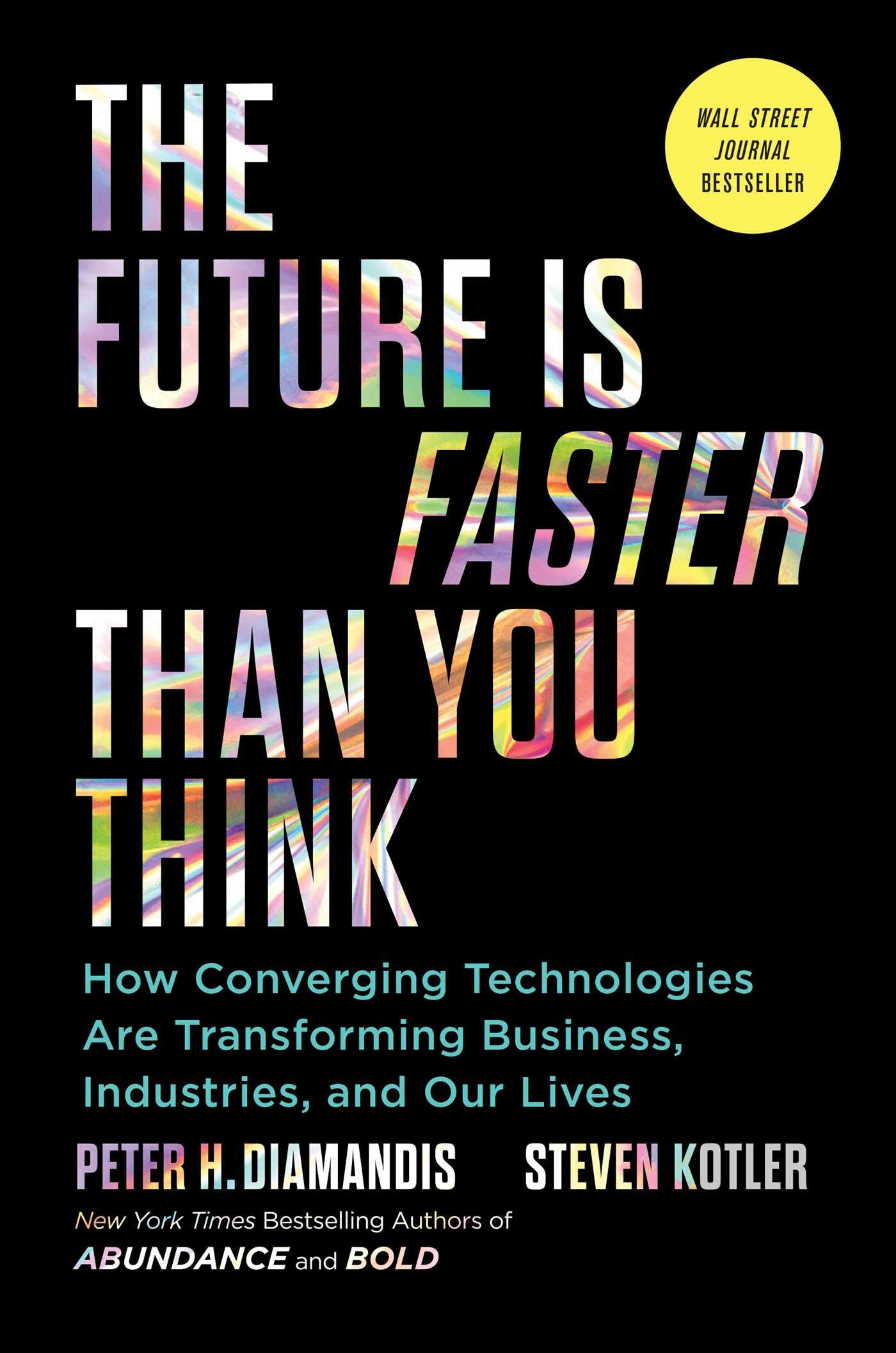

How Converging Technologies Are Transforming Business, Industries, and Our Lives
In their book Abundance, bestselling authors and futurists Peter Diamandis and Steven Kotler tackled grand global challenges, such as poverty, hunger, and energy. Then, in Bold, they chronicled the use of exponential technologies that allowed the emergence of powerful new entrepreneurs. Now the bestselling authors are back with The Future Is Faster Than You Think, a blueprint for how our world will change in response to the next ten years of rapid technological disruption.
Technology is accelerating far more quickly than anyone could have imagined. During the next decade, we will experience more upheaval and create more wealth than we have in the past hundred years. In this gripping and insightful roadmap to our near future, Diamandis and Kotler investigate how wave after wave of exponentially accelerating technologies will impact both our daily lives and society as a whole. What happens as AI, robotics, virtual reality, digital biology, and sensors crash into 3D printing, blockchain, and global gigabit networks? How will these convergences transform today’s legacy industries? What will happen to the way we raise our kids, govern our nations, and care for our planet?
Diamandis, a space-entrepreneur-turned-innovation-pioneer, and Kotler, bestselling author and peak performance expert, probe the science of technological convergence and how it will reinvent every part of our lives—transportation, retail, advertising, education, health, entertainment, food, and finance—taking humanity into uncharted territories and reimagining the world as we know it.
As indispensable as it is gripping, The Future Is Faster Than You Think provides a prescient look at our impending future.
Mon avis : Pas encore lu.


Les nouveaux visages d’une aliénation féminine
Comment les industries du « complexe mode-beauté » travaillent aujourd’hui à entretenir, sur un mode insidieux et séduisant, la logique sexiste au cœur de la sphère culturelle. Le corps féminin est sommé de devenir un produit, de se perfectionner pour mieux se vendre.
Soutiens-gorge rembourrés pour fillettes, obsession de la minceur, banalisation de la chirurgie esthétique, prescription insistante du port de la jupe comme symbole de libération : la « tyrannie du look » affirme aujourd’hui son emprise pour imposer la féminité la plus stéréotypée. Décortiquant presse féminine, discours publicitaires, blogs, séries télévisées, témoignages de mannequins et enquêtes sociologiques, Mona Chollet montre dans ce livre comment les industries du « complexe mode-beauté » travaillent à maintenir, sur un mode insidieux et séduisant, la logique sexiste au cœur de la sphère culturelle.
Sous le prétendu culte de la beauté prospère une haine de soi et de son corps, entretenue par le matraquage de normes inatteignables. Un processus d’autodévalorisation qui alimente une anxiété constante au sujet du physique en même temps qu’il condamne les femmes à ne pas savoir exister autrement que par la séduction, les enfermant dans un état de subordination permanente. En ce sens, la question du corps pourrait bien constituer la clé d’une avancée des droits des femmes sur tous les autres plans, de la lutte contre les violences à celle contre les inégalités au travail.
Mon avis : Pas encore lu.
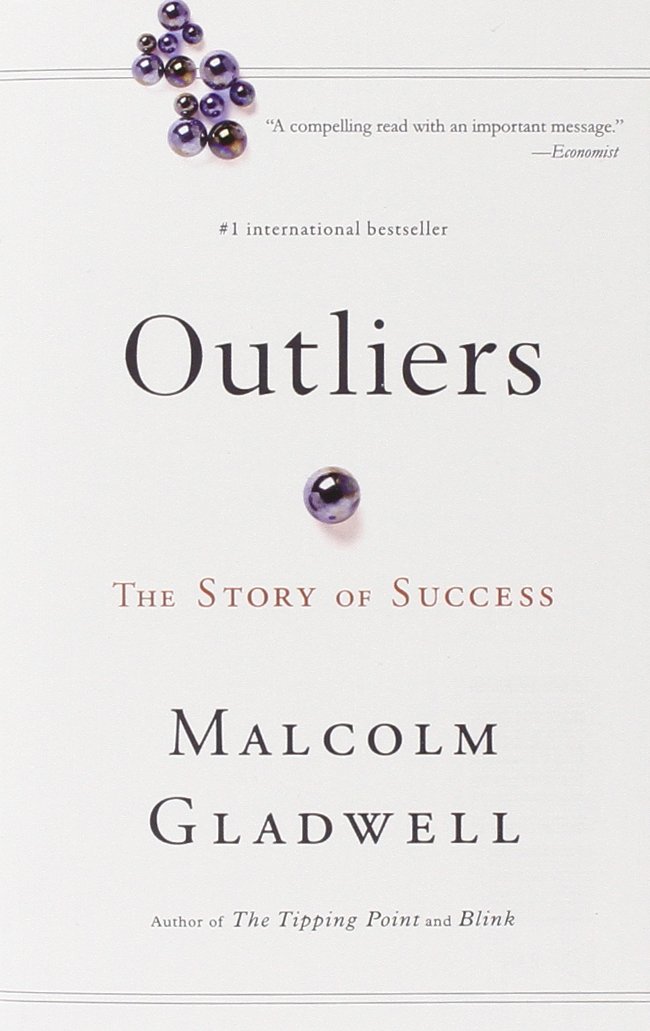

The Story of Success
In this stunning book, Malcolm Gladwell takes us on an intellectual journey through the world of “outliers”—the best and the brightest, the most famous and the most successful. He asks the question: what makes high-achievers different?
His answer is that we pay too much attention to what successful people are like, and too little attention to where they are from: that is, their culture, their family, their generation, and the idiosyncratic experiences of their upbringing. Along the way he explains the secrets of software billionaires, what it takes to be a great soccer player, why Asians are good at math, and what made the Beatles the greatest rock band.
Brilliant and entertaining, Outliers is a landmark work that will simultaneously delight and illuminate.
Mon avis : Pas encore lu.
Récits
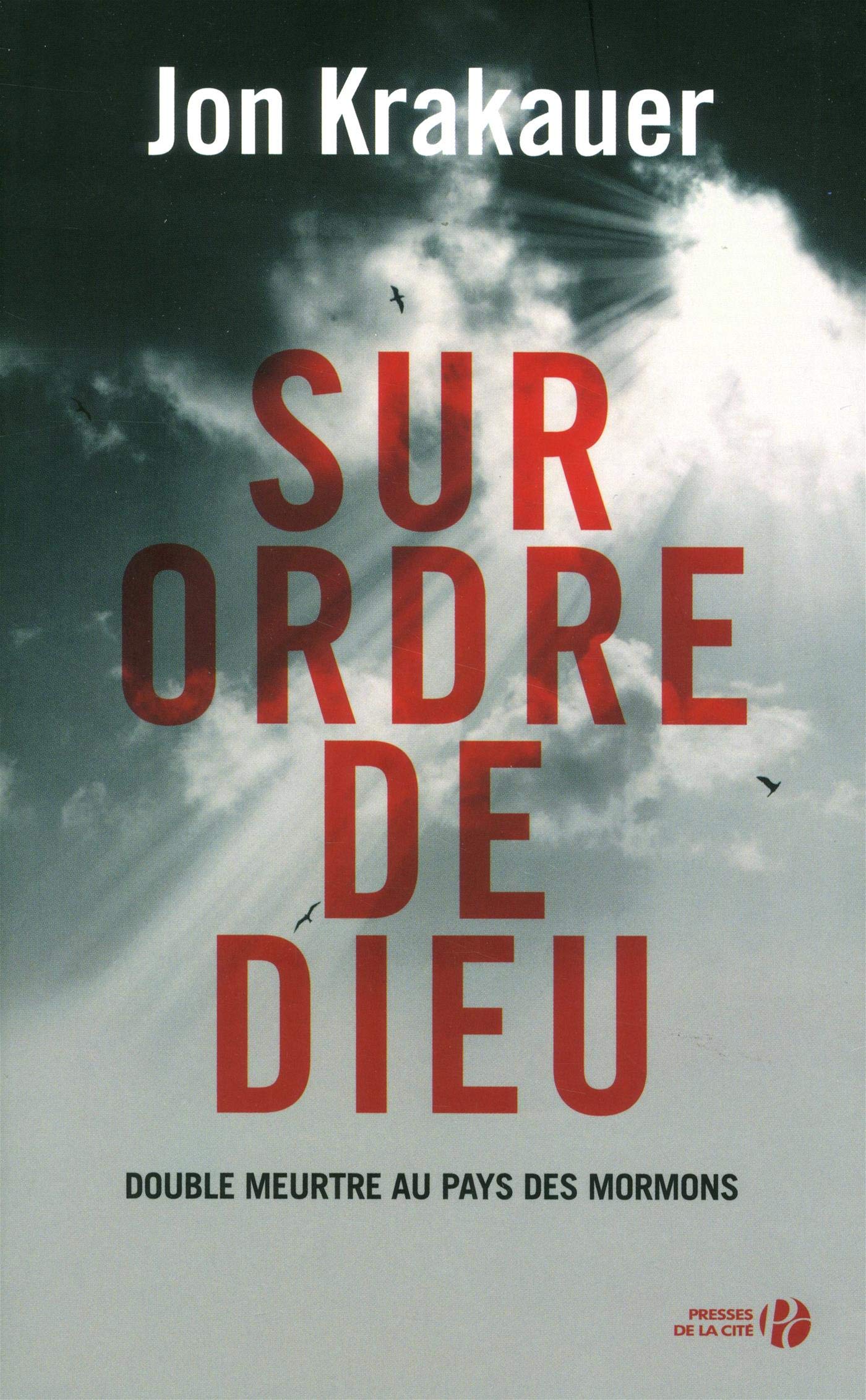

Double meurtre au pays des Mormons
“Dans le comté d’Utah, presque tout le monde a entendu parler des fils Lafferty en raison des meurtres atroces.”
Utah. Une petite ville plantée dans le sillage de Salt Lake City, le fief de l’Église mormone. Le 24 juillet 1984, Allen Lafferty, mormon pratiquant, rentre chez lui après sa journée de travail, dans la maison qu’il habite avec sa jeune épouse et leur bébé de quinze mois. Quand il pousse la porte, l’horreur l’attend : Brenda et sa petite fille ont été sauvagement égorgées. En un instant, Allen est convaincu qu’il connaît les coupables. Et pour cause, ce sont ses frères.
À la barre des mois plus tard, Ron et Dan Lafferty ne nieront pas les faits. Pas plus qu’ils n’exprimeront le moindre remords. Les deux Lafferty sont des prophètes, Dieu parle à travers eux, il leur chuchote ses ordres. Pour eux, l’État n’existe pas. L’école ? Une machination. La médecine ? Un charlatanisme. Ron et Dan Lafferty ont quitté le giron des mormons pour embrasser une foi chrétienne radicale, dont l’un des piliers n’est autre que la polygamie. Et Brenda Lafferty avait commis l’erreur d’y être opposée…
Revenant sur les grandes heures de la fondation de la religion mormone et l’épineux dossier des sectes transfuges qu’elle a fait naître dans ses rangs, le maître de la narrative non fiction interroge les ressorts du fanatisme religieux et exhume l’une des affaires criminelles les plus retentissantes de l’histoire américaine des dernières décennies.
Mon avis : Pas encore lu.
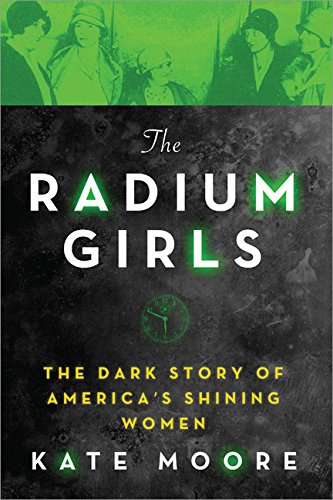

The Dark Story of America’s Shining Women
The incredible true story of the women who fought America’s Undark danger
The Curies’ newly discovered element of radium makes gleaming headlines across the nation as the fresh face of beauty, and wonder drug of the medical community. From body lotion to tonic water, the popular new element shines bright in the otherwise dark years of the First World War.
Meanwhile, hundreds of girls toil amidst the glowing dust of the radium-dial factories. The glittering chemical covers their bodies from head to toe; they light up the night like industrious fireflies. With such a coveted job, these “shining girls” are the luckiest alive—until they begin to fall mysteriously ill.
But the factories that once offered golden opportunities are now ignoring all claims of the gruesome side effects, and the women’s cries of corruption. And as the fatal poison of the radium takes hold, the brave shining girls find themselves embroiled in one of the biggest scandals of America’s early 20th century, and in a groundbreaking battle for workers’ rights that will echo for centuries to come.
Written with a sparkling voice and breakneck pace, The Radium Girls fully illuminates the inspiring young women exposed to the “wonder” substance of radium, and their awe-inspiring strength in the face of almost impossible circumstances. Their courage and tenacity led to life-changing regulations, research into nuclear bombing, and ultimately saved hundreds of thousands of lives…
Mon avis : Pas encore lu.
Intelligence Artificielle
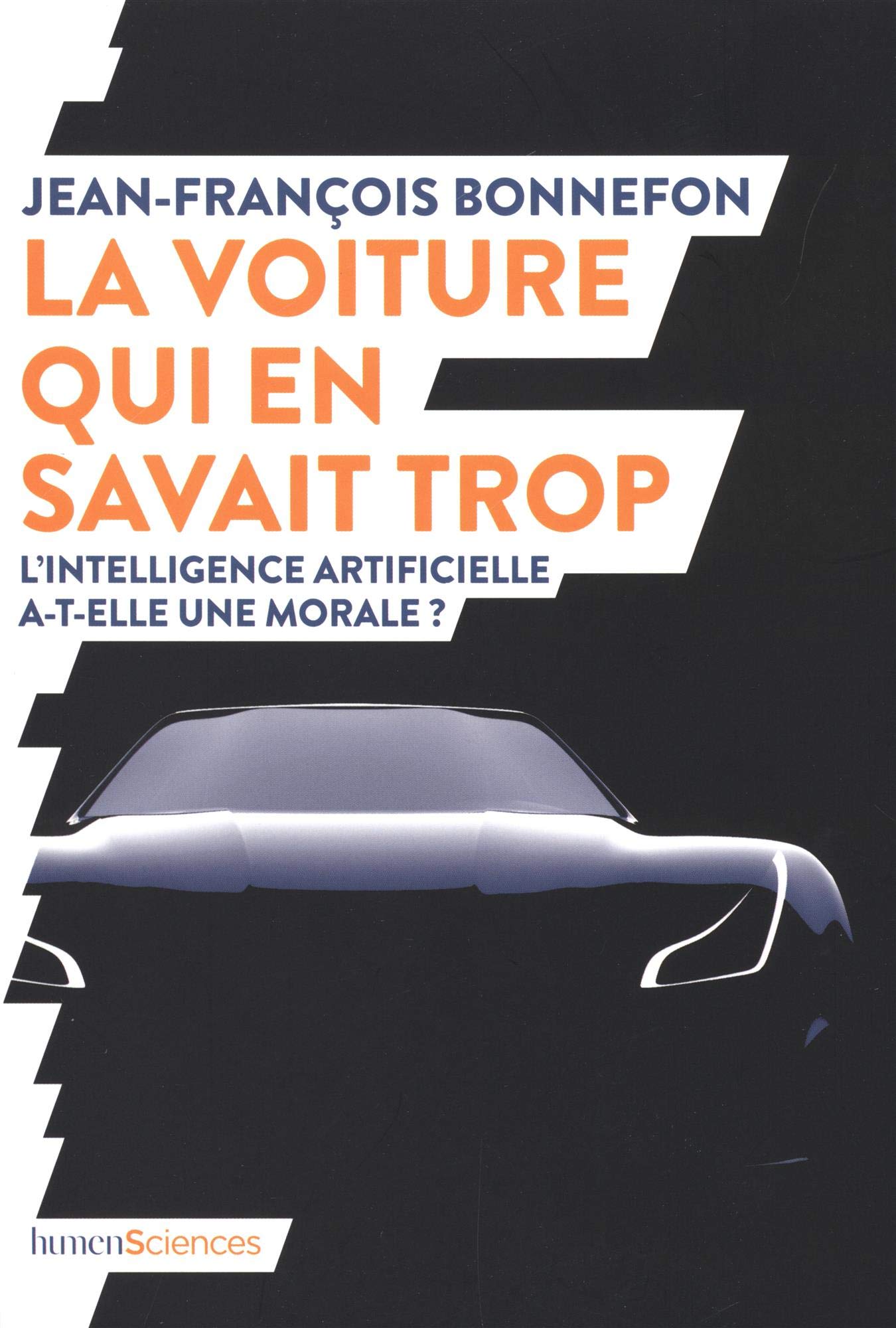

L’intelligence artificielle a-t-elle une morale ?
Sur la route, si vous n’aviez pas le choix, préféreriez-vous sauver un homme ou une femme ? Un sans-abri ou un cadre supérieur ? Deux jeunes filles ou deux mamies ? Accepteriez-vous de vous sacrifier avec vos passagers pour éviter d’écraser des enfants ? Les voitures sans conducteur rouleront bientôt dans nos villes. Pour la première fois dans l’histoire de l’humanité, une machine décidera seule qui sauver, sans que l’humain ait le temps de vérifier sa décision. L’algorithme choisira en fonction des choix moraux que nous lui aurons inculqués. Mais sommes-nous sûrs de notre propre morale ? Comme le montrent les études scientifiques, la valeur que nous accordons psychologiquement à telle ou telle vie diffère en fonction du sexe, de l’âge, de la condition sociale, de l’état de santé de la personne considérée. Nous sommes aussi conditionnés par notre culture. Il n’existe pas de morale universelle. Nous ignorons quelle sera celle des machines. Qui, de nous ou de la machine, prendra les commandes ?
Mon avis : Pas encore lu.
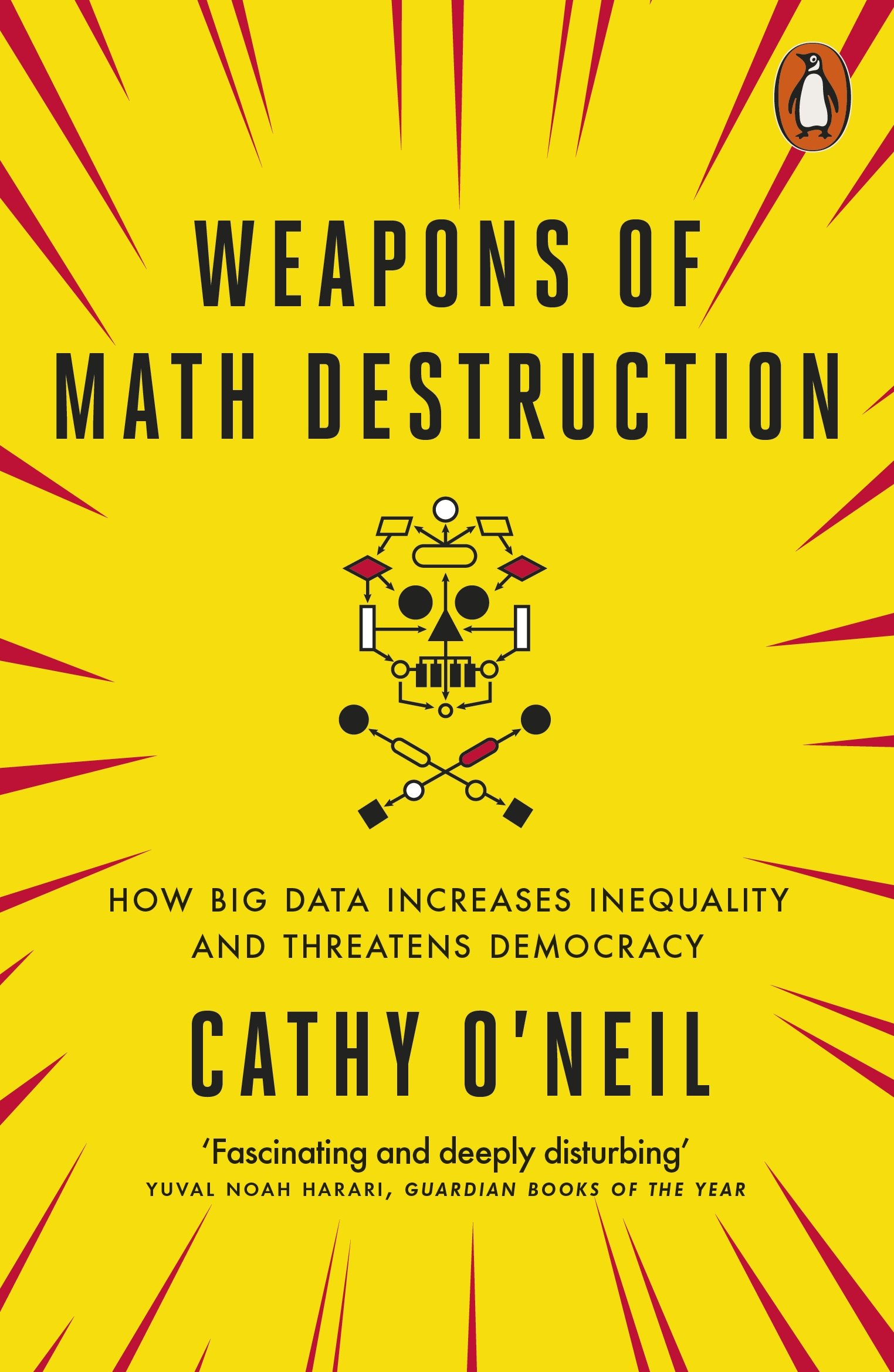

How Big Data Increases Inequality and Threatens Democracy
In this New York Times bestseller, Cathy O’Neil, one of the first champions of algorithmic accountability, sounds an alarm on the mathematical models that pervade modern life—and threaten to rip apart our social fabric.
We live in the age of the algorithm. Increasingly, the decisions that affect our lives—where we go to school, whether we get a loan, how much we pay for insurance—are being made not by humans, but by mathematical models. In theory, this should lead to greater fairness: everyone is judged according to the same rules, and bias is eliminated.
And yet, as Cathy O’Neil reveals in this urgent and necessary book, the opposite is true. The models being used today are opaque, unregulated, and incontestable, even when they’re wrong. Most troubling, they reinforce discrimination. Tracing the arc of a person’s life, O’Neil exposes the black box models that shape our future, both as individuals and as a society. These “weapons of math destruction” score teachers and students, sort CVs, grant or deny loans, evaluate workers, target voters, and monitor our health.
O’Neil calls on modellers to take more responsibility for their algorithms and on policy makers to regulate their use. But in the end, it’s up to us to become more savvy about the models that govern our lives. This important book empowers us to ask the tough questions, uncover the truth, and demand change.
Mon avis : Pas encore lu.
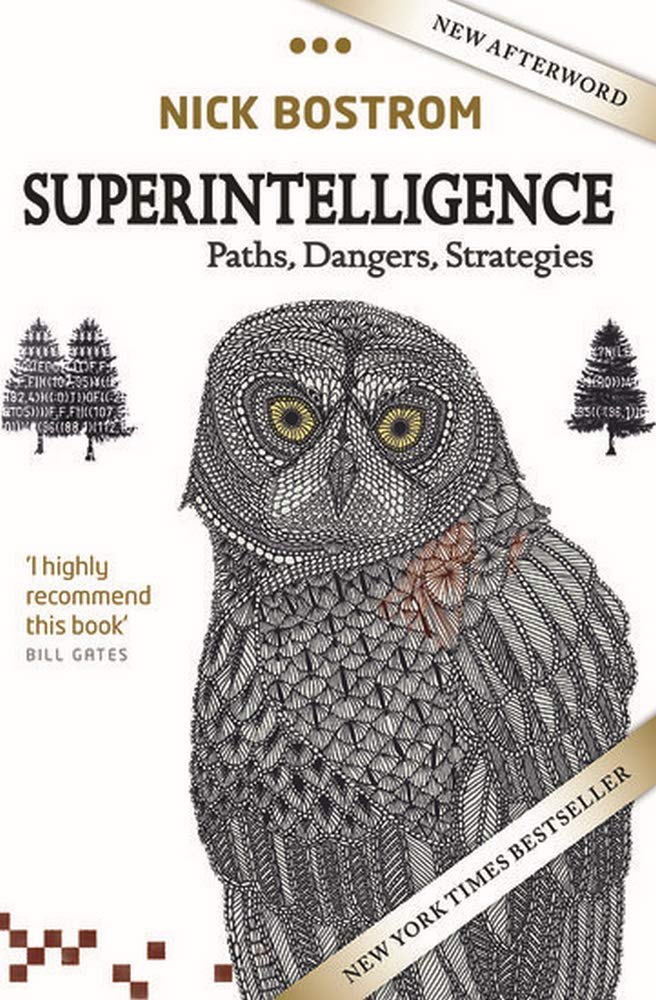

Paths, Dangers, Strategies
Superintelligence asks the questions: what happens when machines surpass humans in general intelligence? Will artificial agents save or destroy us? Nick Bostrom lays the foundation for understanding the future of humanity and intelligent life. The human brain has some capabilities that the brains of other animals lack. It is to these distinctive capabilities that our species owes its dominant position. If machine brains surpassed human brains in general intelligence, then this new superintelligence could become extremely powerful—possibly beyond our control. As the fate of the gorillas now depends more on humans than on the species itself, so would the fate of humankind depend on the actions of the machine superintelligence.
But we have one advantage: we get to make the first move. Will it be possible to construct a seed Artificial Intelligence, to engineer initial conditions so as to make an intelligence explosion survivable? How could one achieve a controlled detonation?
This profoundly ambitious and original audiobook breaks down a vast track of difficult intellectual terrain. After an utterly engrossing journey that takes us to the frontiers of thinking about the human condition and the future of intelligent life, we find in Nick Bostrom’s work nothing less than a reconceptualization of the essential task of our time.
Mon avis : Pas encore lu.
Mathématiques


Paths, Dangers, Strategies
There is no topic that attracts more attention-more energy and time and devotion—than love. Love, like most things in life, is full of patterns. And mathematics is ultimately the study of patterns.
In her book The Mathematics of Love—and TEDxTalk of the same name—Dr. Hannah Fry takes the audience on a fascinating journey through the patterns that define our love lives, tackling some of the most common yet complex questions pertaining to love: What’s the chance of us finding love? What’s the chance that it will last? How does online dating work, exactly? When should you settle down? How can you avoid divorce? When is it right to compromise? Can game theory help us decide whether or not to call?
From evaluating the best strategies for online dating to defining the nebulous concept of beauty, Dr. Fry proves-with great insight, wit and fun—that maths is a surprisingly useful tool to negotiate the complicated, often baffling, sometimes infuriating, always interesting, patterns of love.
Mon avis : Pas encore lu.
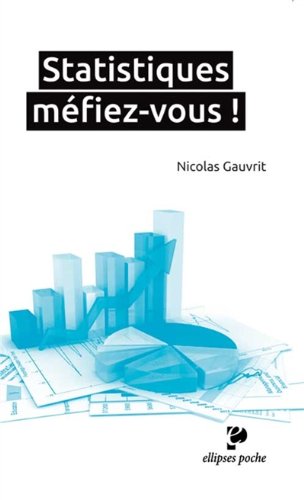

Comment montrer à partir des mêmes chiffres que les ouvriers gagnent plus et moins que les cadres ? Pourquoi les bus en bas de chez vous sont-ils systématiquement bondés alors qu’il y a statistiquement un tas de places vides ? Pourquoi certains sondages d’opinion, apparemment parlants, ne disent au fond rien sur les futurs résultats des élections ?
Bref : peut-on tout faire dire aux chiffres, et si oui comment ? Évoquant de nombreux pièges, les multiples possibilités de manipulation régulièrement utilisées (sciemment ou non) par les acteurs des médias, cet ouvrage souhaite mettre en garde le lecteur qu’on essaie trop souvent de duper par l’autorité du chiffre.
Mon avis : Pas encore lu.


Une philosophie unifiée du savoir fondée sur le théorème de Bayes
Ce livre explore et vulgarise une philosophie du savoir appelée bayésianisme. En s’appuyant sur les travaux de nombreux philosophes, mathématiciens, statisticiens, informaticiens, neuroscientifiques et chercheurs en intelligence artificielle, le livre défend la thèse selon laquelle le bayésianisme est la bonne philosophie du savoir — par opposition notamment aux descriptions usuelles de la méthode scientifique. En effet, notamment une fois combinée à l’algorithmique, cette épistémologie normative peut se vanter d’être universelle et complète.
De plus, elle est consolidée par un très grand nombre de théorèmes mathématiques et de succès empiriques. S’il contient des passages techniques, la grande majorité de l’ouvrage se veut accessible à un large public. En particulier, aucune connaissance préalable n’est requise.
Mon avis : Pas encore lu.
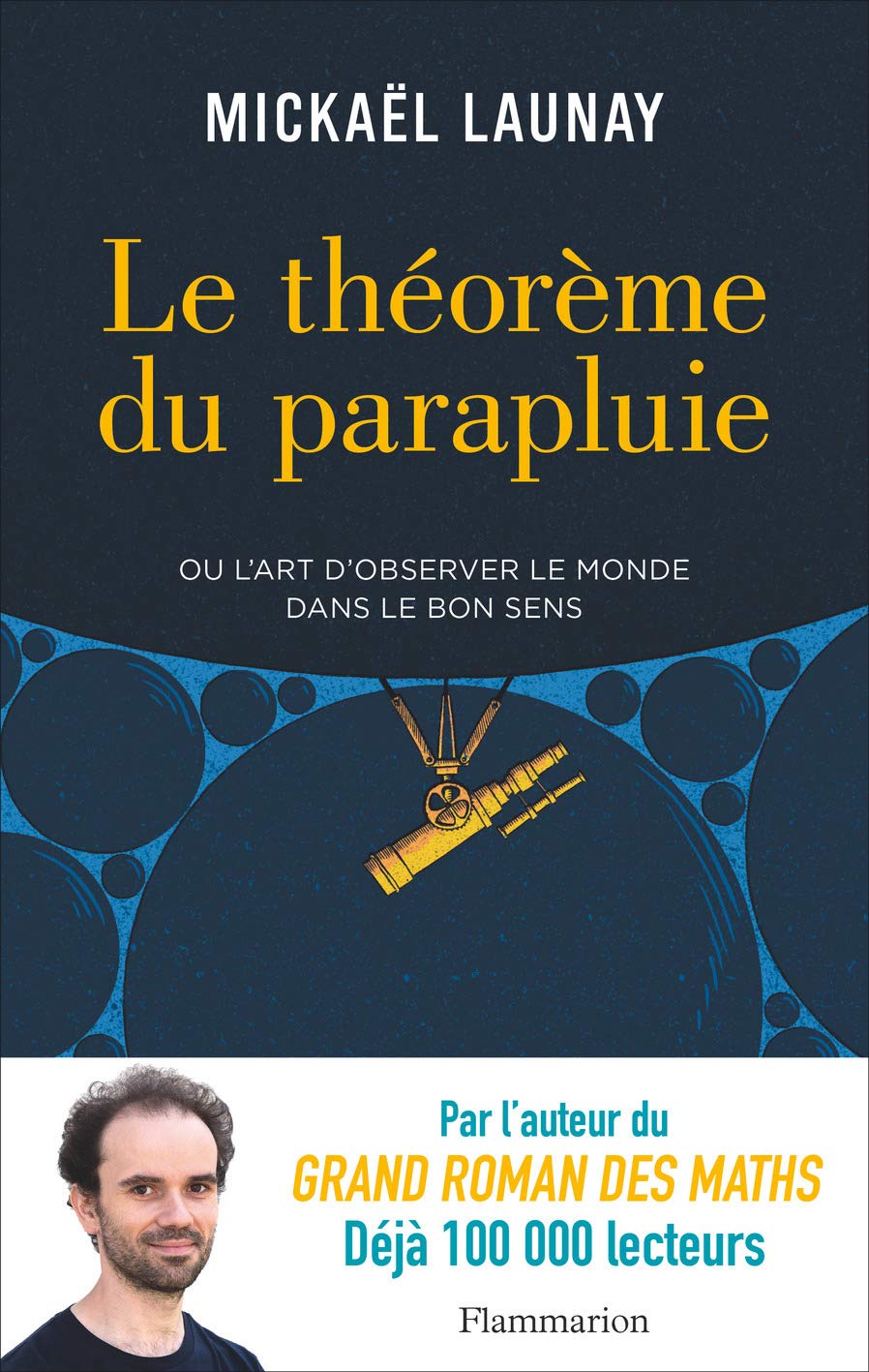

Ou l’art d’observer le monde dans le bon sens
Savez-vous que le 34 avril est un jour très utile ? Que certains fleuves coulent de bas en haut ? Que la Lune tourne en ligne droite ? Que la couverture de ce livre est peut-être rouge ? Et que tout en lisant ces quelques lignes vous voyagez à la vitesse de 300 000 kilomètres par seconde ? Ces affirmations peuvent vous sembler absurdes, et pourtant elles sont vraies ! Notre perception du monde est parfois trompeuse. En science, le réel bouscule nos préjugés et ne cesse de remettre en cause nos plus intimes convictions. Il ne s’agit pas toujours d’être plus intelligent pour répondre aux grandes questions : il faut avant tout être astucieux. Un simple changement de point de vue suffit parfois à éclairer les phénomènes les plus complexes. Les mathématiques en particulier nous offrent un outil puissant pour comprendre les rouages de l’Univers. Elles nous apprennent à penser plus large pour comprendre plus loin. C’est ce que nous montre ici Mickaël Launay, à travers un voyage passionnant qui commence dans les allées des supermarchés et s’achève dans les profondeurs vertigineuses des trous noirs. Ah, et il reste une dernière question : quel est le rapport entre tout cela et un parapluie ?
Mon avis : Pas encore lu.
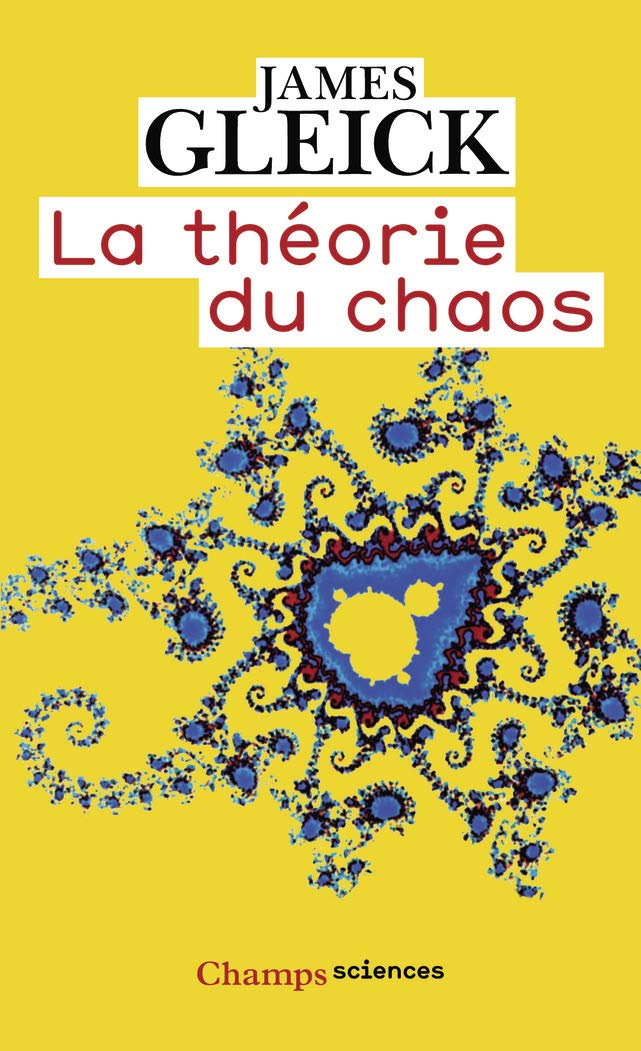

Turbulences, fluctuations, oscillations aléatoires, phénomènes complexes non maîtrisables : une population animale, l’écoulement d’un fluide, un organe biologique, un faisceau de particules, un orage atmosphérique, une économie nationale, autant de systèmes instables qu’on classait sous l’appellation commode de « chaos » avant que quelques scientifiques français et américains ne commencent à explorer le sujet dans les années 1970. A la surprise générale, le chaos s’est révélé gouverné par un ordre dynamique qui a permis d’expliquer bien des phénomènes naturels jusqu’ici totalement incompréhensibles.
La théorie du chaos, dont ce livre vulgarise brillamment les divers aspects, a ouvert de nouvelles portes à la science depuis son éclosion ; elle a bouleversé la vision classique du monde et constitué une révolution comparable à ce que fut, au début du XXe siècle, la théorie de la relativité générale d’Einstein.
Mon avis : Pas encore lu.
Sciences naturelles
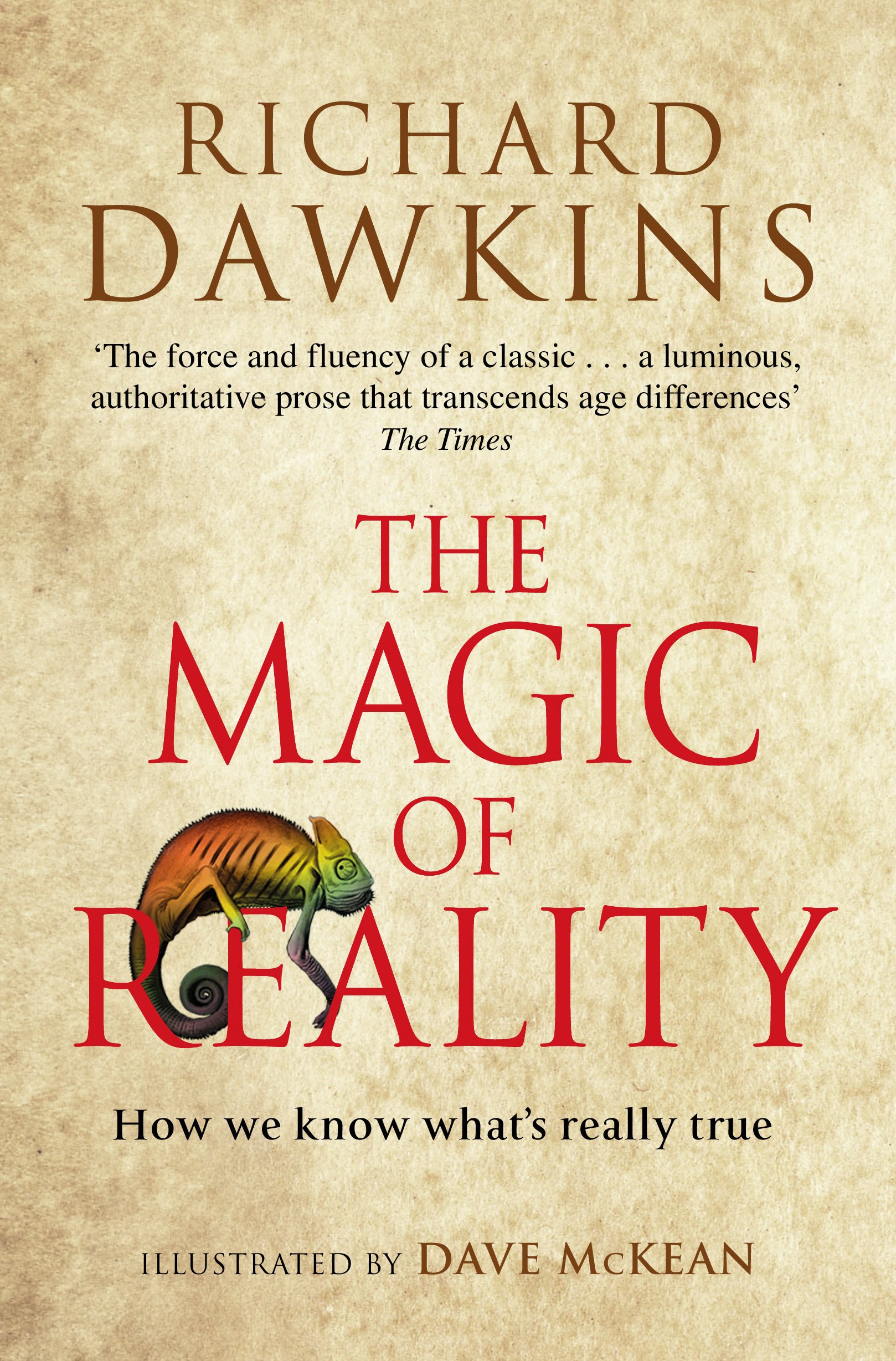

How we know what’s really true
Magic takes many forms. The ancient Egyptians explained the night by suggesting that the goddess Nut swallowed the sun. The Vikings believed a rainbow was the gods’ bridge to earth. These are magical, extraordinary tales. But there is another kind of magic, and it lies in the exhilaration of discovering the real answers to these questions. It is the magic of reality—science.
Packed with inspiring explanations of space, time and evolution, laced with humour and clever thought experiments, The Magic of Reality explores a stunningly wide range of natural phenomena. What is stuff made of? How old is the universe? What causes tsunamis? Who was the first man, or woman? This is a page-turning, inspirational detective story that not only mines all the sciences for its clues but primes the reader to think like a scientist too.
Richard Dawkins elucidates the wonders of the natural world to all ages with his inimitable clarity and exuberance in a text that will enlighten and inform for generations to come.
Mon avis : Pas encore lu.
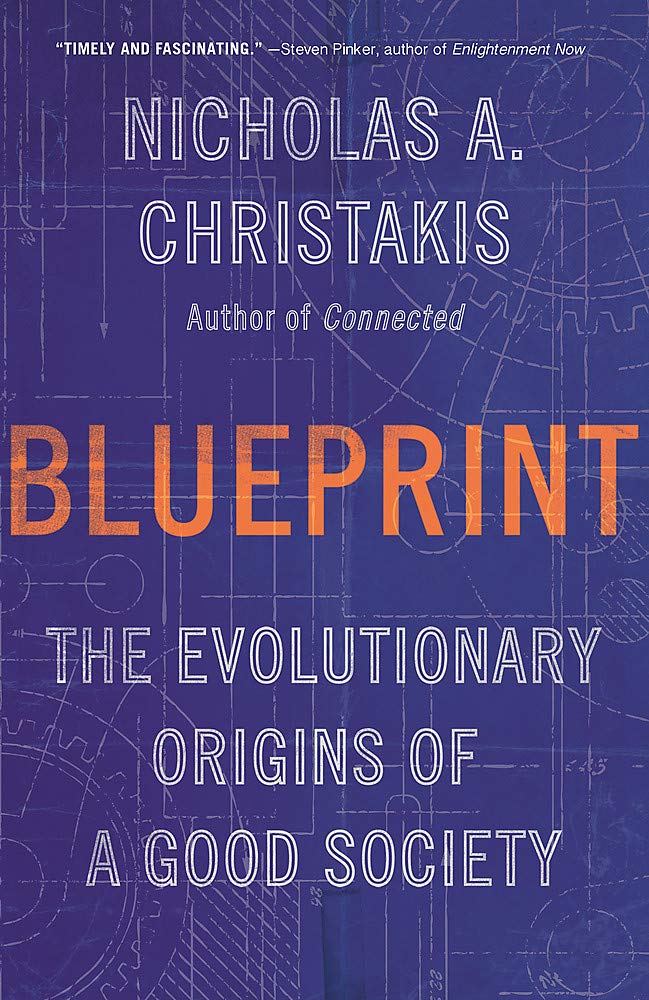

The Evolutionary Origins of a Good Society
For too long, scientists have focused on the dark side of our biological heritage: our capacity for aggression, cruelty, prejudice, and self-interest. But natural selection has given us a suite of beneficial social features, including our capacity for love, friendship, cooperation, and learning. Beneath all of our inventions—our tools, farms, machines, cities, nations—we carry with us innate proclivities to make a good society.
In Blueprint, Nicholas A. Christakis introduces the compelling idea that our genes affect not only our bodies and behaviors, but also the ways in which we make societies, ones that are surprisingly similar worldwide.
With many vivid examples—including diverse historical and contemporary cultures, communities formed in the wake of shipwrecks, commune dwellers seeking utopia, online groups thrown together by design or involving artificially intelligent bots, and even the tender and complex social arrangements of elephants and dolphins that so resemble our own—Christakis shows that, despite a human history replete with violence, we cannot escape our social blueprint for goodness.
In a world of increasing political and economic polarization, it’s tempting to ignore the positive role of our evolutionary past. But by exploring the ancient roots of goodness in civilization, Blueprint shows that our genes have shaped societies for our welfare and that, in a feedback loop stretching back many thousands of years, societies are still shaping our genes today.
Mon avis : Pas encore lu.


A Brief History of Humankind
What makes us brilliant? What makes us deadly? What makes us Sapiens? Yuval Noah Harari challenges everything we know about being human in the perfect read for these unprecedented times.
Earth is 4.5 billion years old. In just a fraction of that time, one species among countless others has conquered it: us.
In this bold and provocative book, Yuval Noah Harari explores who we are, how we got here and where we’re going.
Mon avis : Pas encore lu.
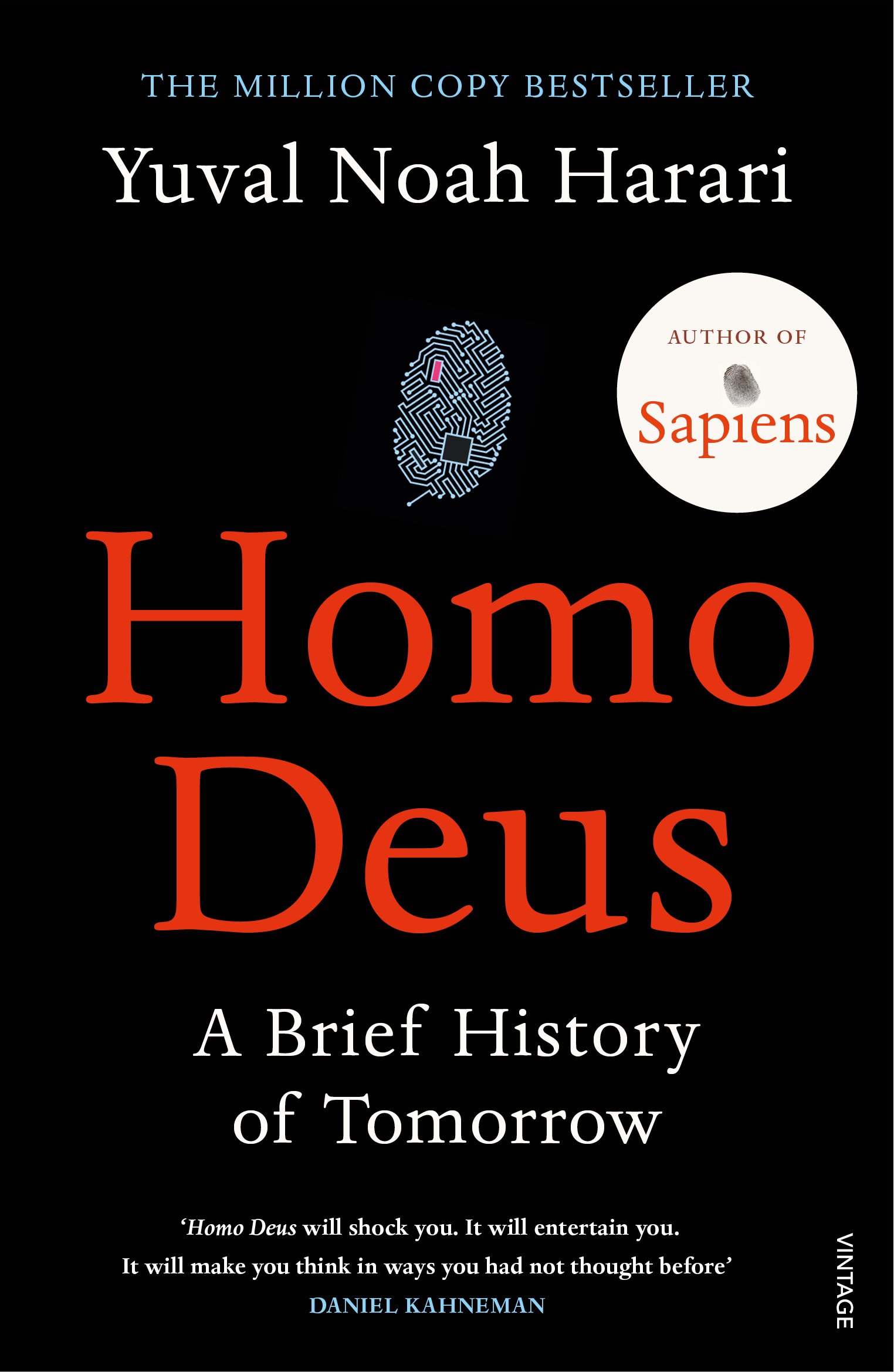

A Brief History of Tomorrow
Yuval Noah Harari, author of the bestselling phenomenon Sapiens envisions a not-too-distant world in which we face a new set of challenges. Homo Deus explores the projects, dreams and nightmares that will shape the twenty-first century—from overcoming death to creating artificial life. It asks the fundamental questions: Where do we go from here? And how will we protect this fragile world from our own destructive powers?
Mon avis : Pas encore lu.
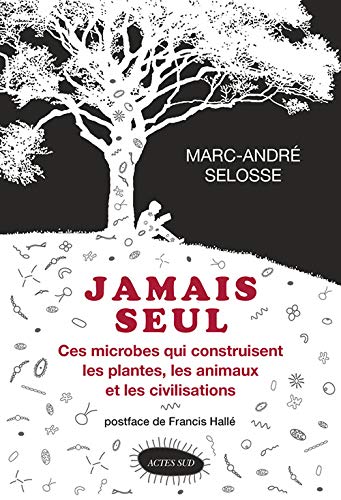

Ces microbes qui construisent les plantes, les animaux et les civilisations
Au fil d’un récit foisonnant d’exemples et plein d’esprit, Marc-André Selosse nous conte une véritable révolution scientifique. Les microbes jouent un rôle en tout point essentiel : tous les organismes vivants, végétaux ou animaux, dépendent intimement de microbes qui contribuent à leur nutrition, leur développement, leur immunité ou même leur comportement. Toujours pris dans un réseau d’interactions microbiennes, ces organismes ne sont donc… jamais seuls.
Détaillant d’abord de nombreuses symbioses qui associent microbes et plantes, Marc-André Selosse explore les propriétés nouvelles qui en émergent et modifient le fonctionnement de chaque partenaire. Il décrypte ensuite les extraordinaires adaptations symbiotiques des animaux, qu’ils soient terrestres ou sous-marins. Il décrit nos propres compagnons microbiens, le microbiote humain, et leurs contributions, omniprésentes et parfois inattendues.
Enfin, il démontre le rôle des symbioses microbiennes au niveau des écosystèmes, de l’évolution de la vie, du climat, et des pratiques culturelles et alimentaires qui ont forgé les civilisations. Destiné à tous les publics, cet ouvrage constitue une mine d’informations pour les naturalistes, les enseignants, les médecins et pharmaciens, les agriculteurs, les amis des animaux et, plus généralement, tous les curieux du vivant.
A l’issue de ce périple dans le monde microbien, le lecteur, émerveillé, ne pourra plus porter le même regard sur notre monde.
Mon avis : Pas encore lu.
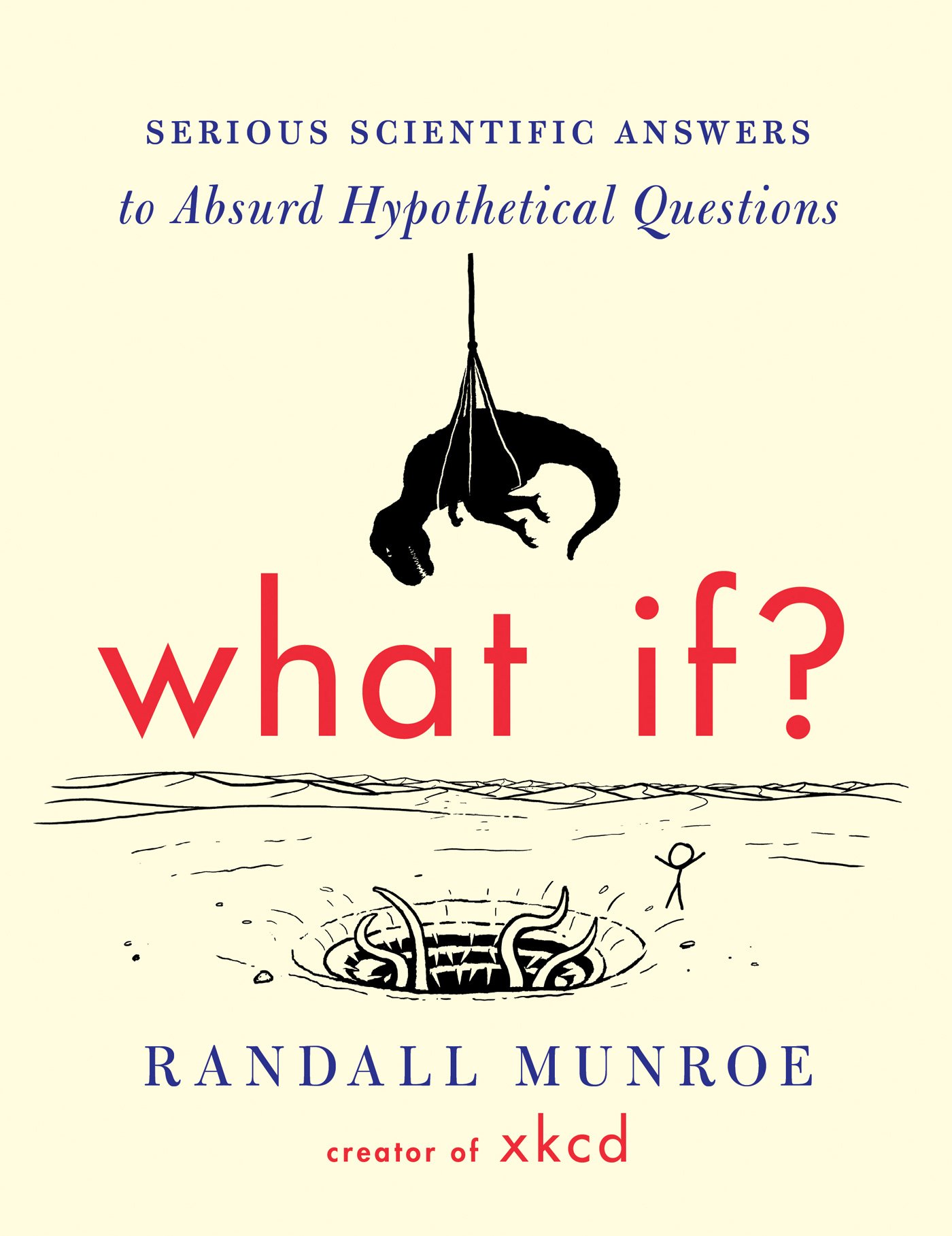

Serious Scientific Answers to Absurd Hypothetical Questions
Millions of people visit xkcd.com each week to read Randall Munroe’s iconic webcomic. His stick-figure drawings about science, technology, language, and love have a large and passionate following.
Fans of xkcd ask Munroe a lot of strange questions. What if you tried to hit a baseball pitched at 90 percent the speed of light? How fast can you hit a speed bump while driving and live? If there was a robot apocalypse, how long would humanity last?
In pursuit of answers, Munroe runs computer simulations, pores over stacks of declassified military research memos, solves differential equations, and consults with nuclear reactor operators. His responses are masterpieces of clarity and hilarity, complemented by signature xkcd comics. They often predict the complete annihilation of humankind, or at least a really big explosion.
The book features new and never-before-answered questions, along with updated and expanded versions of the most popular answers from the xkcd website. What If? will be required reading for xkcd fans and anyone who loves to ponder the hypothetical.
Mon avis : Pas encore lu.
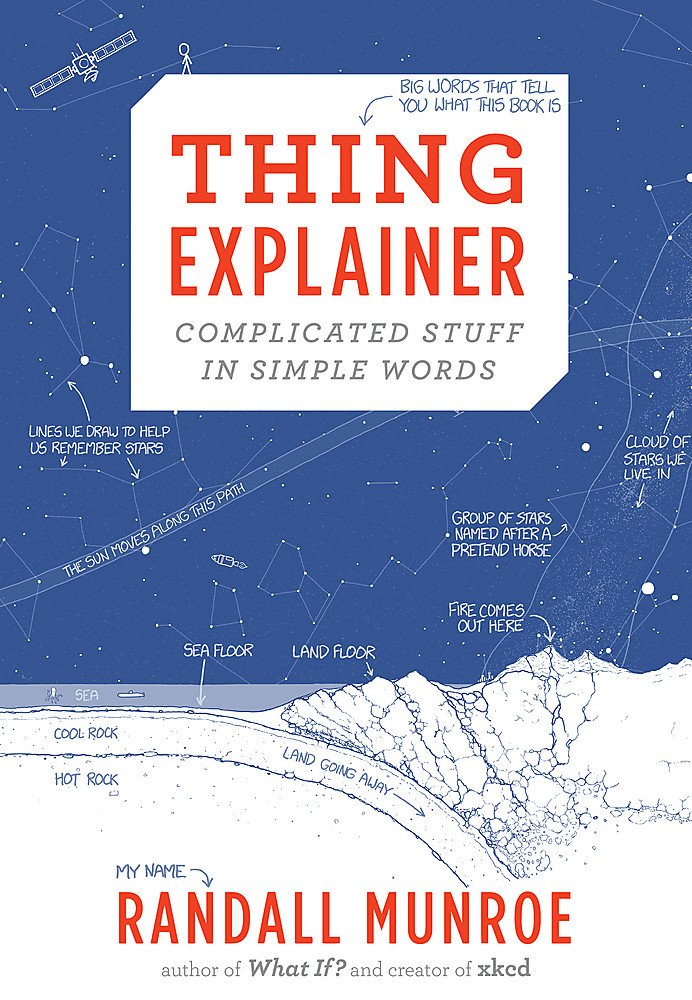

Complicated Stuff in Simple Words
It’s good to know what the parts of a thing are called, but it’s much more interesting to know what they do. Richard Feynman once said that if you can’t explain something to a first-year student, you don’t really get it. In Thing Explainer, Randall Munroe takes a quantum leap past this: he explains things using only drawings and a vocabulary of just our 1,000 (or the ten hundred) most common words.
Many of the things we use every day—like our food-heating radio boxes (“microwaves”), our very tall roads (“bridges”), and our computer rooms (“datacentres”)—are strange to us. So are the other worlds around our sun (the solar system), the big flat rocks we live on (tectonic plates), and even the stuff inside us (cells). Where do these things come from? How do they work? What do they look like if you open them up? And what would happen if we heated them up, cooled them down, pointed them in a different direction, or pressed this button?
In Thing Explainer, Munroe gives us the answers to these questions and many, many more. Funny, interesting, and always understandable, this book is for anyone—age 5 to 105—who has ever wondered how things work, and why.
Mon avis : Pas encore lu.
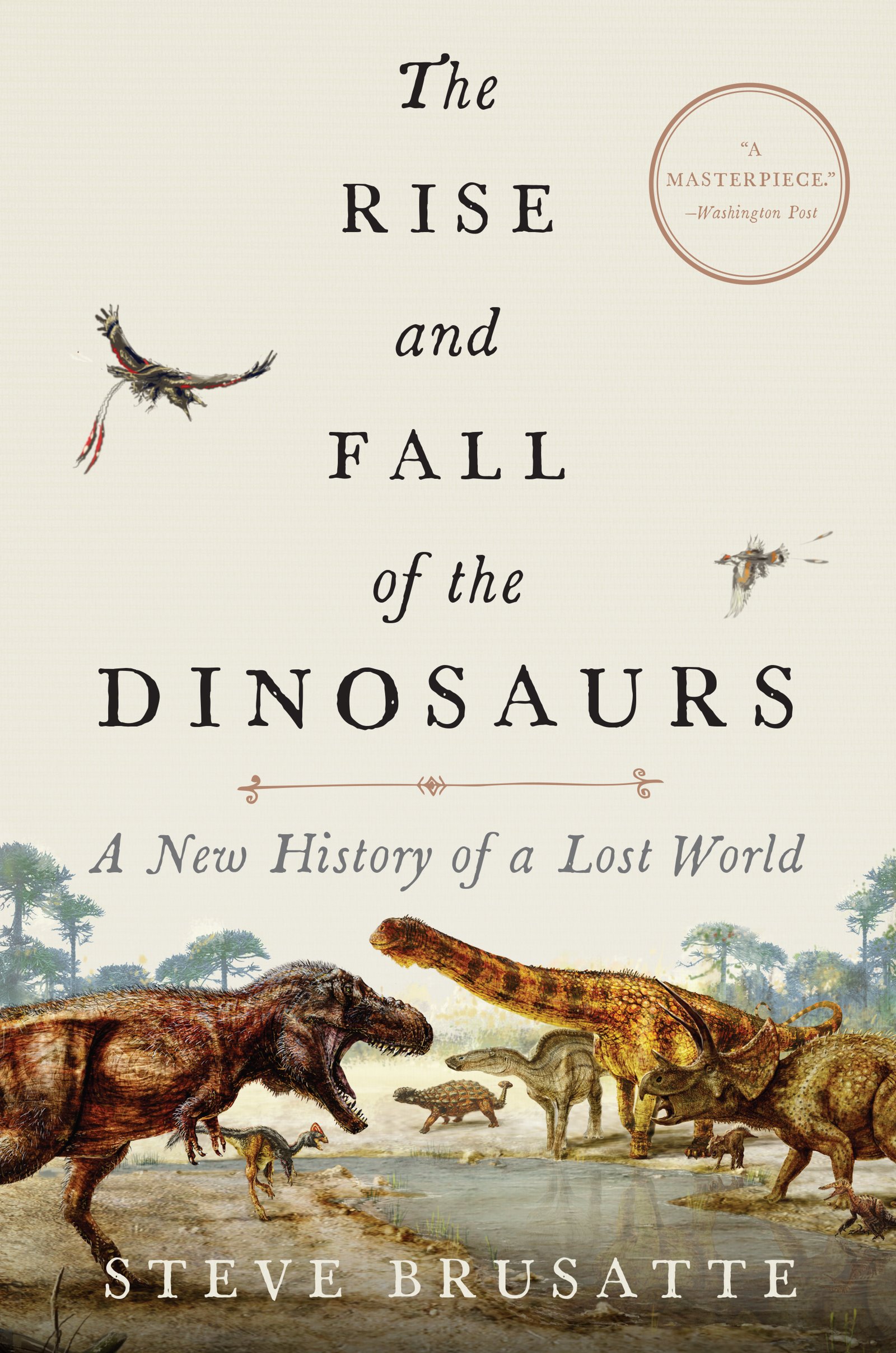

A New History of a Lost World
The dinosaurs. Sixty-six million years ago, the Earth’s most fearsome creatures vanished. Today they remain one of our planet’s great mysteries. Now The Rise and Fall of the Dinosaurs reveals their extraordinary, 200-million-year-long story as never before.
In this captivating narrative (enlivened with more than seventy original illustrations and photographs), Steve Brusatte, a young American paleontologist who has emerged as one of the foremost stars of the field—naming fifteen new species and leading groundbreaking scientific studies and fieldwork—masterfully tells the complete, surprising, and new history of the dinosaurs, drawing on cutting-edge science to dramatically bring to life their lost world and illuminate their enigmatic origins, spectacular flourishing, astonishing diversity, cataclysmic extinction, and startling living legacy. Captivating and revelatory, The Rise and Fall of the Dinosaurs is a book for the ages.
Brusatte traces the evolution of dinosaurs from their inauspicious start as small shadow dwellers—themselves the beneficiaries of a mass extinction caused by volcanic eruptions at the beginning of the Triassic period—into the dominant array of species every wide-eyed child memorizes today, T. rex, Triceratops, Brontosaurus, and more. This gifted scientist and writer re-creates the dinosaurs’ peak during the Jurassic and Cretaceous, when thousands of species thrived, and winged and feathered dinosaurs, the prehistoric ancestors of modern birds, emerged. The story continues to the end of the Cretaceous period, when a giant asteroid or comet struck the planet and nearly every dinosaur species (but not all) died out, in the most extraordinary extinction event in earth’s history, one full of lessons for today as we confront a “sixth extinction.”
Brusatte also recalls compelling stories from his globe-trotting expeditions during one of the most exciting eras in dinosaur research—which he calls “a new golden age of discovery”—and offers thrilling accounts of some of the remarkable findings he and his colleagues have made, including primitive human-sized tyrannosaurs; monstrous carnivores even larger than T. rex; and paradigm-shifting feathered raptors from China.
An electrifying scientific history that unearths the dinosaurs’ epic saga, The Rise and Fall of the Dinosaurs will be a definitive and treasured account for decades to come.
Mon avis : Pas encore lu.
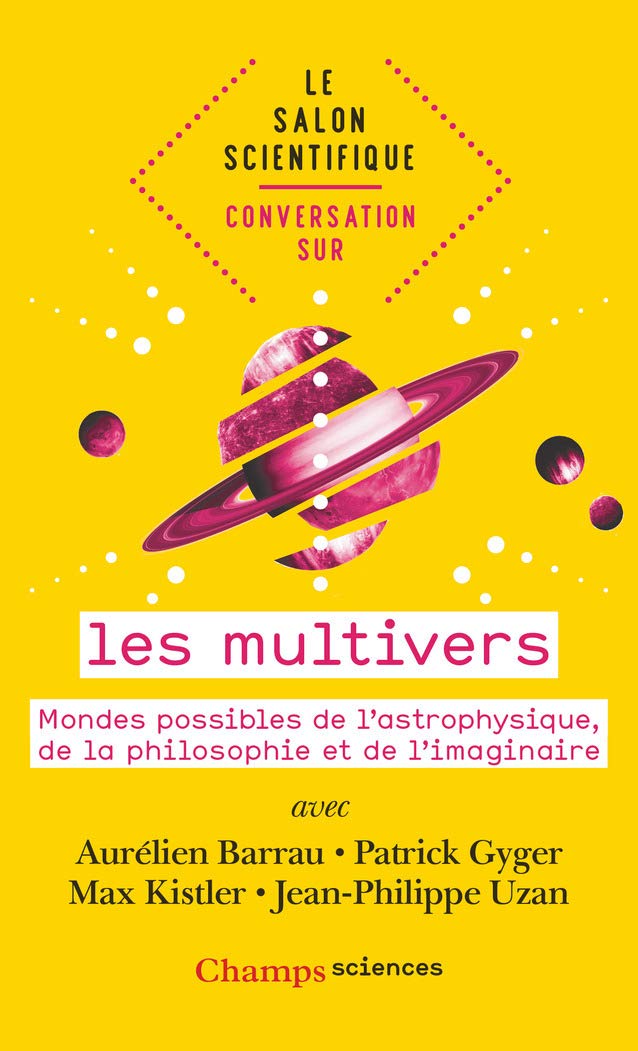

Mondes possibles de l’astrophysique, de la philosophie et de l’imaginaire
Et si notre Univers n’était qu’un parmi d’autres ? Cette idée d’univers multiples, envisagée pourtant depuis l’Antiquité, n’est entrée que récemment — et avec fracas — dans le champ de la science. L’hypothèse fascine, mais elle n’en est pas moins dérangeante : comment se formeraient ces mondes invisibles ? Peut-on tester et réfuter leur existence ? Une telle hypothèse est-elle vraiment scientifique ? Ouvrir la porte aux mondes possibles de l’astrophysique, de la philosophie et de l’imaginaire, c’est montrer qu’il y a une multiplicité de « manières de faire des mondes »…
Mon avis : Pas encore lu.
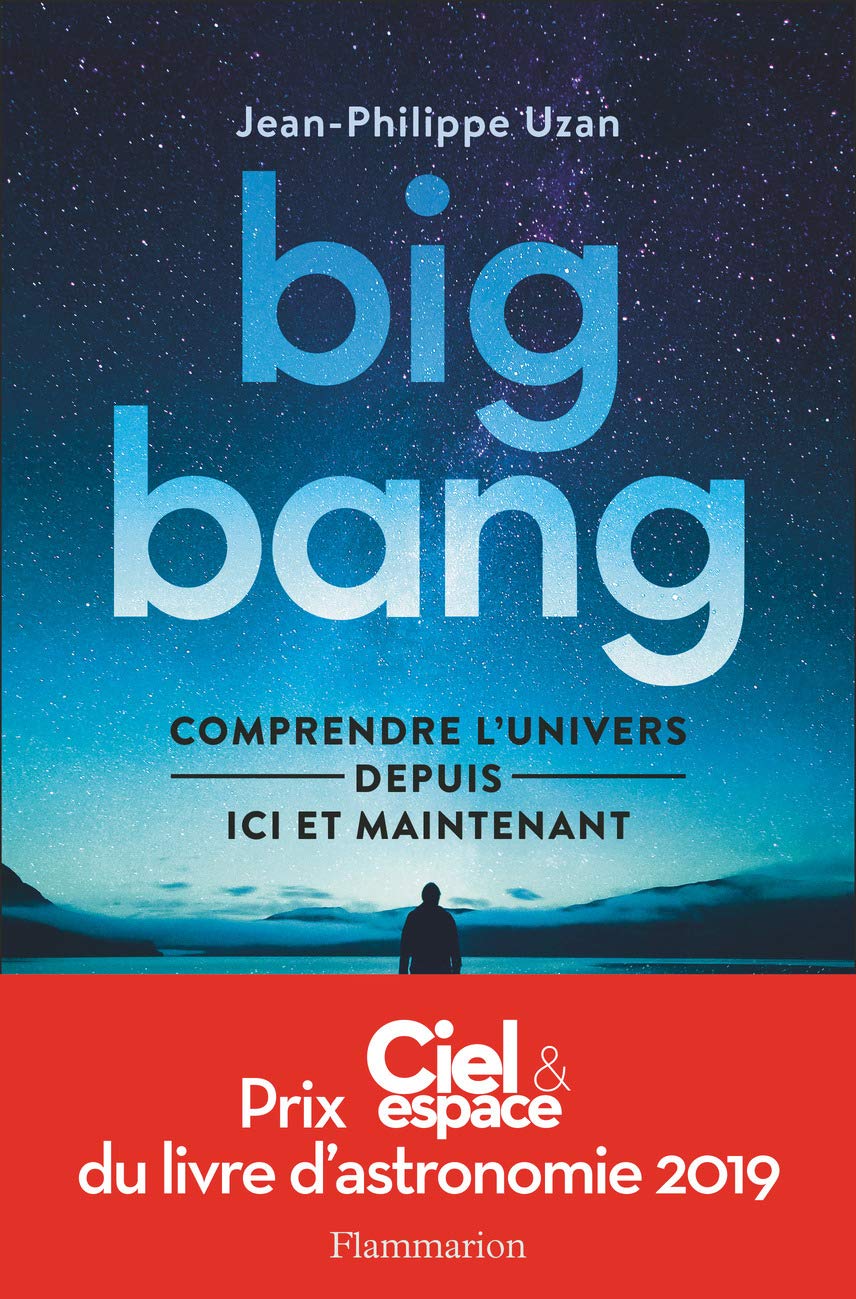

Comprendre l’univers depuis ici et maintenant
L’univers aurait 13,7 milliards d’années, lit-on souvent. Mais que signifie une telle affirmation ? Implique-t-elle que l’univers a une origine ? Comment penser ce big-bang primordial ? Dans cette synthèse magistrale, Jean-Philippe Uzan nous invite à comprendre la construction du modèle du big-bang, cette théorie qui vise à décrire l’univers et son histoire. Il détaille les hypothèses théoriques et les observations sur lesquelles ce modèle repose. Au fil des pages se dessine un extraordinaire échafaudage qui, en un siècle, a bouleversé notre représentation du cosmos comme de l’espace et du temps. Or la cosmologie se trouve à un moment charnière : alors que les satellites et les télescopes géants se multiplient, que les fenêtres d’observation s’ouvrent vertigineusement ondes gravitationnelles, neutrinos, les médias font leur une sur des scénarios pour le moins spéculatifs. Il devient ainsi urgent de clarifier les questions auxquelles la science prétend répondre, celles qui ne sont pas encore tranchées la matière noire, l’inflation, etc. mais aussi celles qui restent en dehors de son champ explicatif. Voilà l’ambition de cet ouvrage qui, tout en célébrant l’une des plus belles théories jamais élaborées par l’esprit humain, démêle finement mythe et savoir.
Mon avis : Pas encore lu.
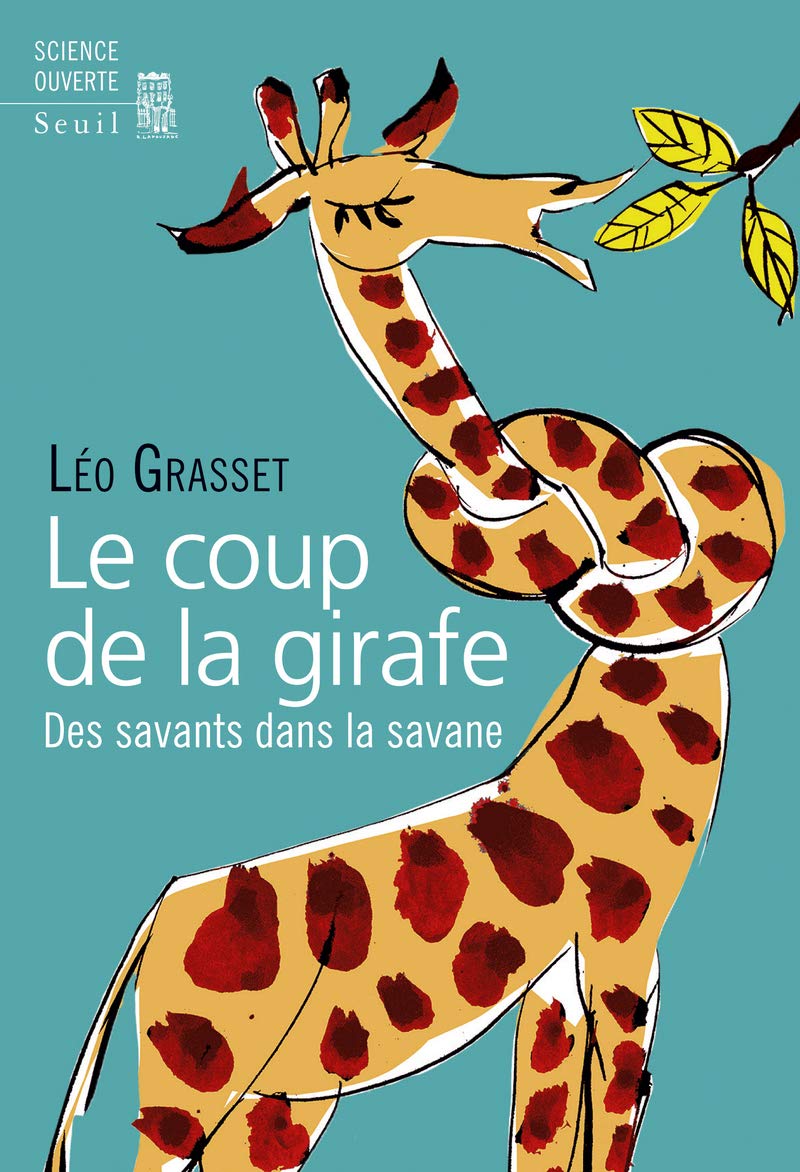

Des savants dans la savane
Pourquoi les girafes ont-elles un si long cou et les zèbres des rayures ? Quel rapport entre une foule de supporters sportifs et un troupeau de gazelles ? Avez-vous déjà frémi d’épouvante à la mention du mot « ratel » ?
Les animaux de la savane africaine ont encore beaucoup à nous apprendre. Ce livre vous expliquera le talent des termites bâtisseurs qui construisent des orgues pour respirer, le rôle du hasard dans la fuite de la gazelle, la dictature quotidienne que subissent les éléphants alors que les buffles vivent en démocratie, l’importance de la Voie lactée pour les bousiers, et le point commun entre les tétons humains et le pénis des hyènes.
« Rien en biologie n’a de sens, si ce n’est à la lumière de l’évolution », disait un célèbre généticien. Mais cette lumière projette des ombres étranges et difficiles à décrypter, et les sujets présentés sont aux frontières actives de la recherche scientifique !
Un livre d’histoires naturelles, contées avec légèreté et humour par un jeune biologiste aventureux et superbement illustrées par ses photographies.
Léo Grasset est titulaire d’un master en biologie. Après un travail de terrain au Zimbabwe, il étudie l’impact des écosystèmes sur les sociétés humaines.
Mon avis : Pas encore lu.
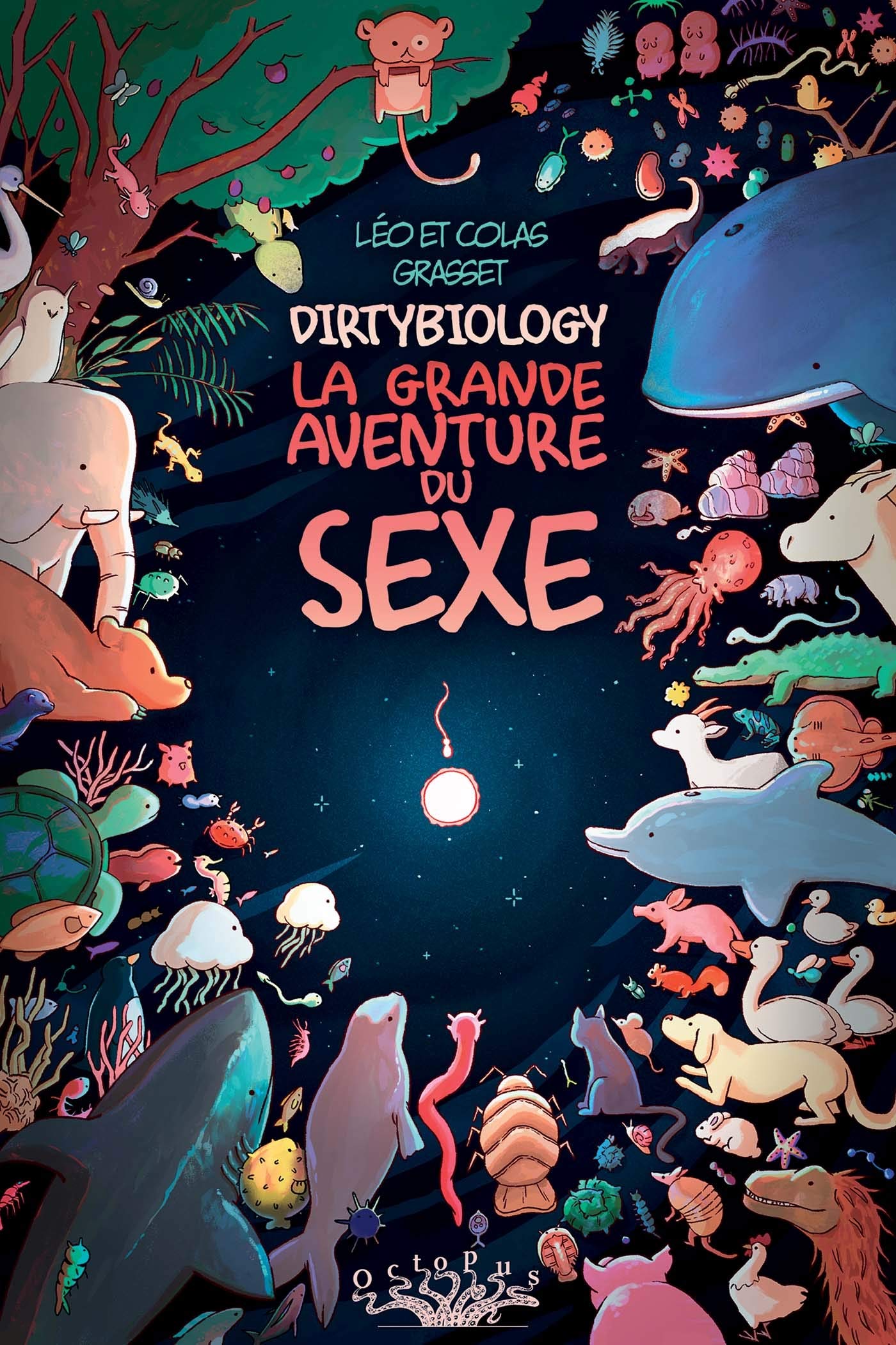

Qu’est-ce que c’est le sexe ? Est-ce que ça a toujours existé ? À quoi ça sert ? Pourquoi y a-t-il des vagins et des pénis ? La promesse de DirtyBiology : tu voulais pas savoir, mais maintenant, c’est trop tard ! Saviez-vous que sur notre planète, certaines espèces ne font pas de sexe ? Qu’il existe une incroyable diversité de formes d’organes reproducteurs et que biologiquement, on peut faire du sexe sans sexes ? Des rites amoureux les plus improbables, à l’invention des mâles et femelles, en passant par le pseudo-sexe des bactéries et la sexualité des champignons : vous ne verrez plus le monde vivant du même œil.
Mon avis : Pas encore lu.
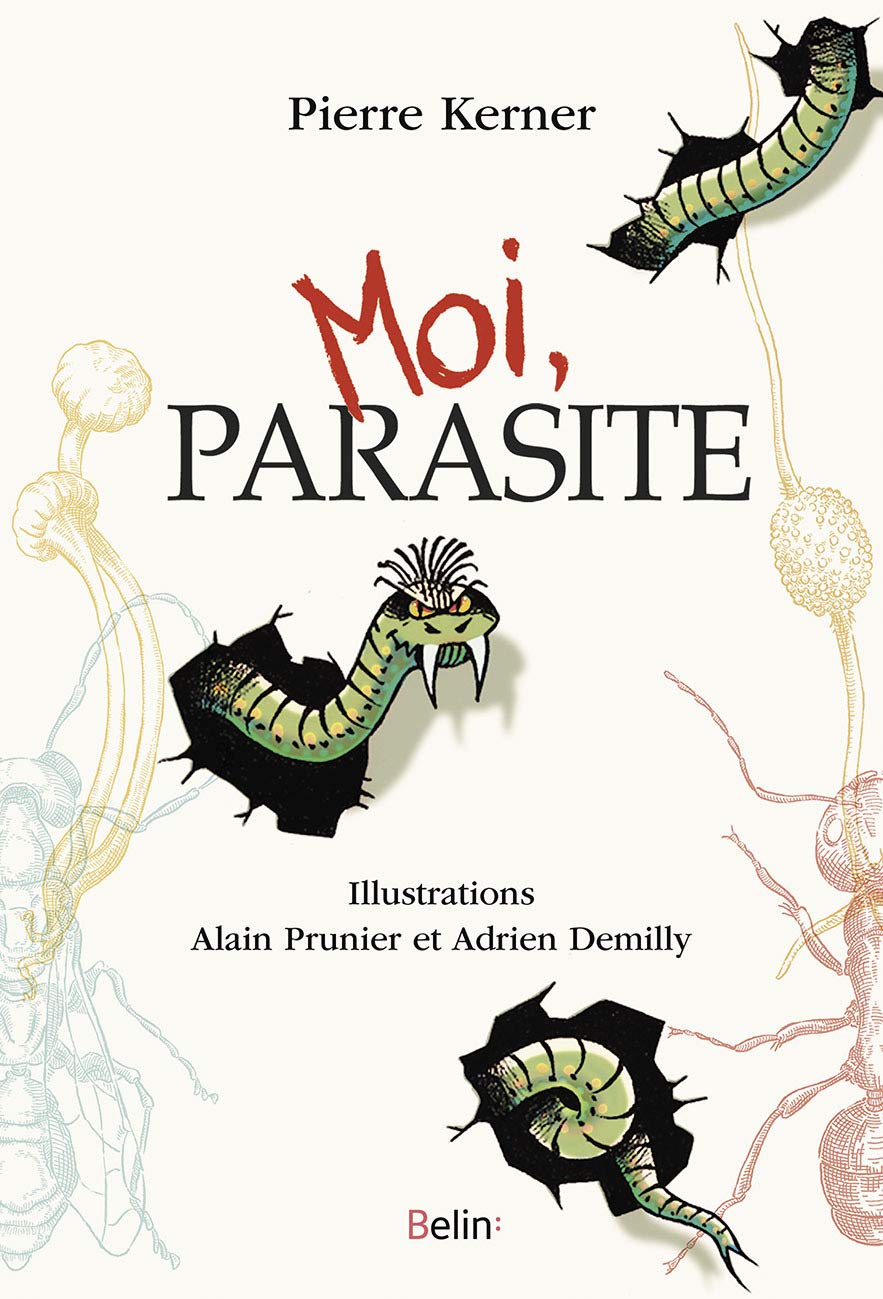

Moi, parasite offre enfin la tribune au parti des organismes trop souvent calomniés au seul prétexte qu’ils érigent en art leur mode de vie aux dépens d’autres espèces.
En donnant, chapitre après chapitre, la parole à un parasite différent, le lecteur pourra découvrir les facettes extraordinaires de ces êtres vivants qui s’associent durablement et de manière fusionnelle avec leurs hôtes. L’histoire de la parasitologie est ainsi racontée par un ver solitaire, le Kâma Sutra des parasites expliqué par le Diplozoon (un ver plat fixé sur les branchies de poissons) et les subtilités de l’enchevêtrement parasitaire (un parasite qui parasite un parasite qui…) débroussaillés par une guêpe.
Ces précieux témoignages contribueront à distiller l’ensorcellement qu’exercent les parasites sur nous. Car entre les vers qui manipulent des insectes pour les pousser à se noyer afin de pouvoir s’extirper par leur anus, les tiques qui rendent végétariens ou encore les bébés moules qui vampirisent les poissons, les parasites repoussent toujours l’improbable sans jamais cesser de taquiner l’absolument gore. Et que dire des virus ? Ils poussent encore plus loin le vice en nous démontrant que nous pouvons dire merci aux parasites ! En effet, ils ont participé à l’évolution de notre lignée, et même contribué à modeler le vivant tel que nous le connaissons aujourd’hui.
En refermant Moi, parasite, magnifiquement illustré par deux artistes de talent, Alain Prunier et Adrien Demilly, le lecteur ne verra plus les parasites du même œil !
Mon avis : Pas encore lu.
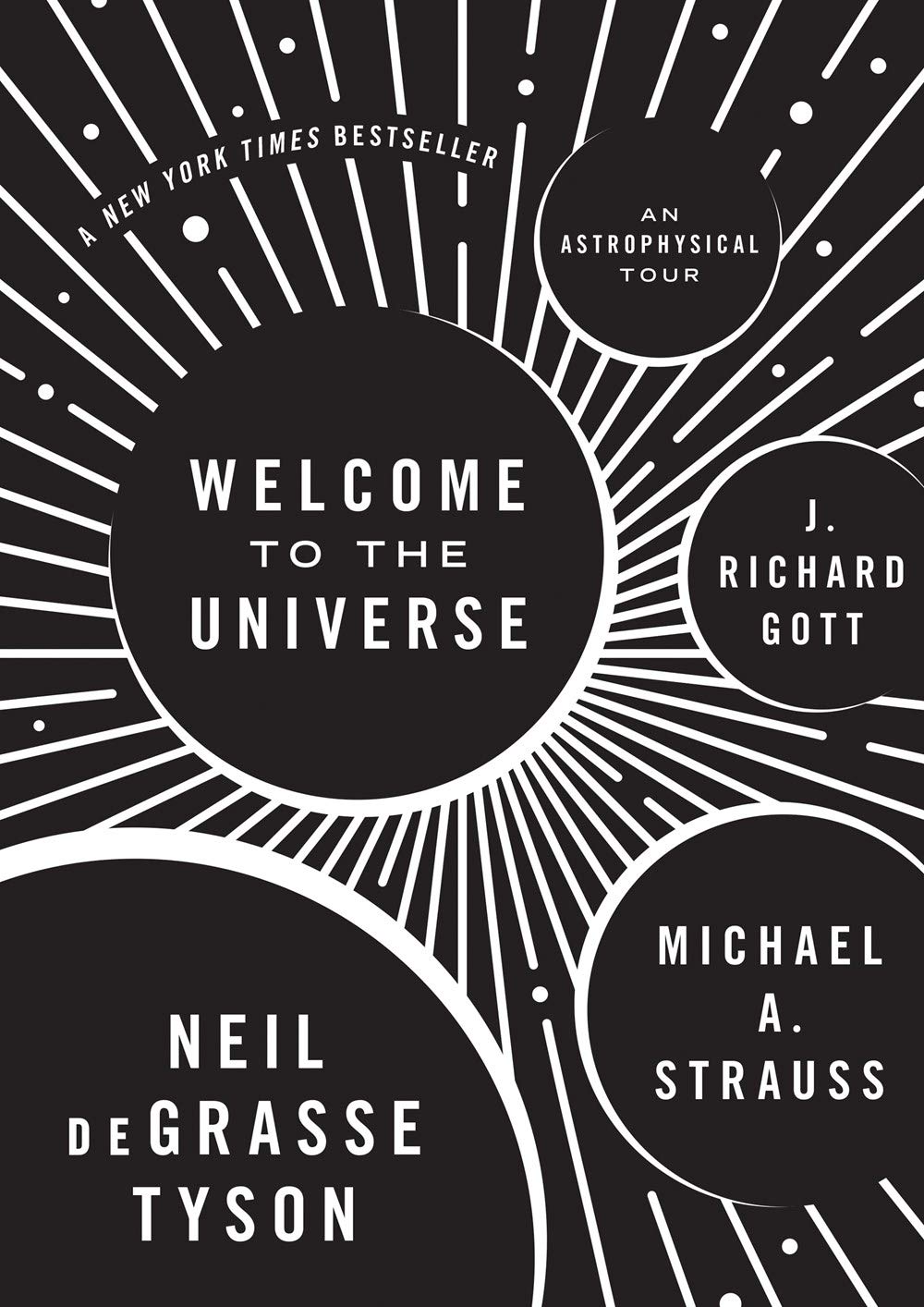

An Astrophysical Tour
Welcome to the Universe is a personal guided tour of the cosmos by three of today’s leading astrophysicists. Inspired by the enormously popular introductory astronomy course that Neil deGrasse Tyson, Michael A. Strauss, and J. Richard Gott taught together at Princeton, this book covers it all—from planets, stars, and galaxies to black holes, wormholes, and time travel.
Describing the latest discoveries in astrophysics, the informative and entertaining narrative propels you from our home solar system to the outermost frontiers of space. How do stars live and die? Why did Pluto lose its planetary status? What are the prospects of intelligent life elsewhere in the universe? How did the universe begin? Why is it expanding and why is its expansion accelerating? Is our universe alone or part of an infinite multiverse? Answering these and many other questions, the authors open your eyes to the wonders of the cosmos, sharing their knowledge of how the universe works.
Breathtaking in scope and stunningly illustrated throughout, Welcome to the Universe is for those who hunger for insights into our evolving universe that only world-class astrophysicists can provide.
Mon avis : Pas encore lu.
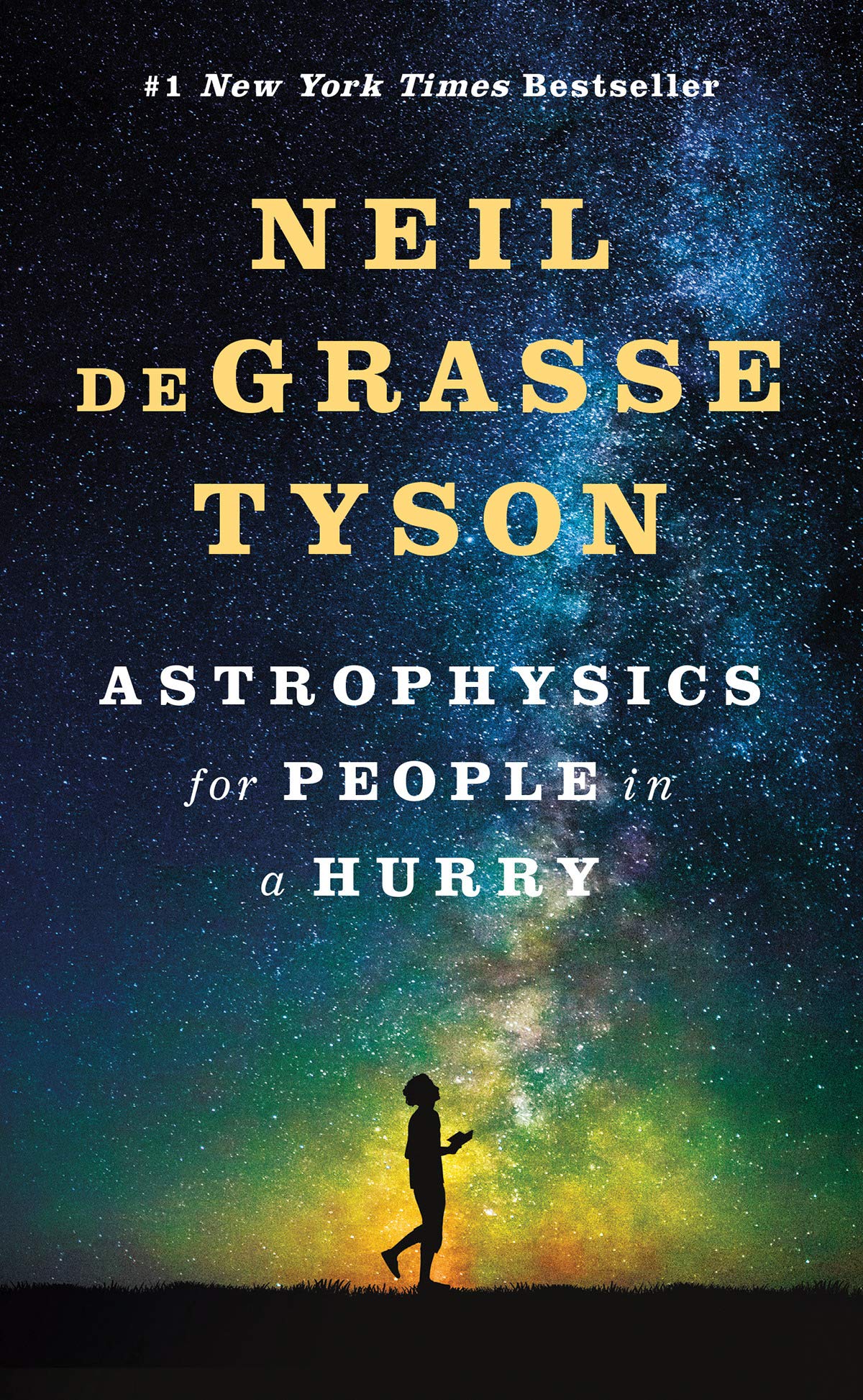

What is the nature of space and time? How do we fit within the universe? How does the universe fit within us? There’s no better guide through these mind-expanding questions than acclaimed astrophysicist and best-selling author Neil deGrasse Tyson.
But today, few of us have time to contemplate the cosmos. So Tyson brings the universe down to Earth succinctly and clearly, with sparkling wit, in tasty chapters consumable anytime and anywhere in your busy day.
While you wait for your morning coffee to brew, for the bus, the train, or a plane to arrive, Astrophysics for People in a Hurry will reveal just what you need to be fluent and ready for the next cosmic headlines: from the Big Bang to black holes, from quarks to quantum mechanics, and from the search for planets to the search for life in the universe.
Mon avis : Pas encore lu.
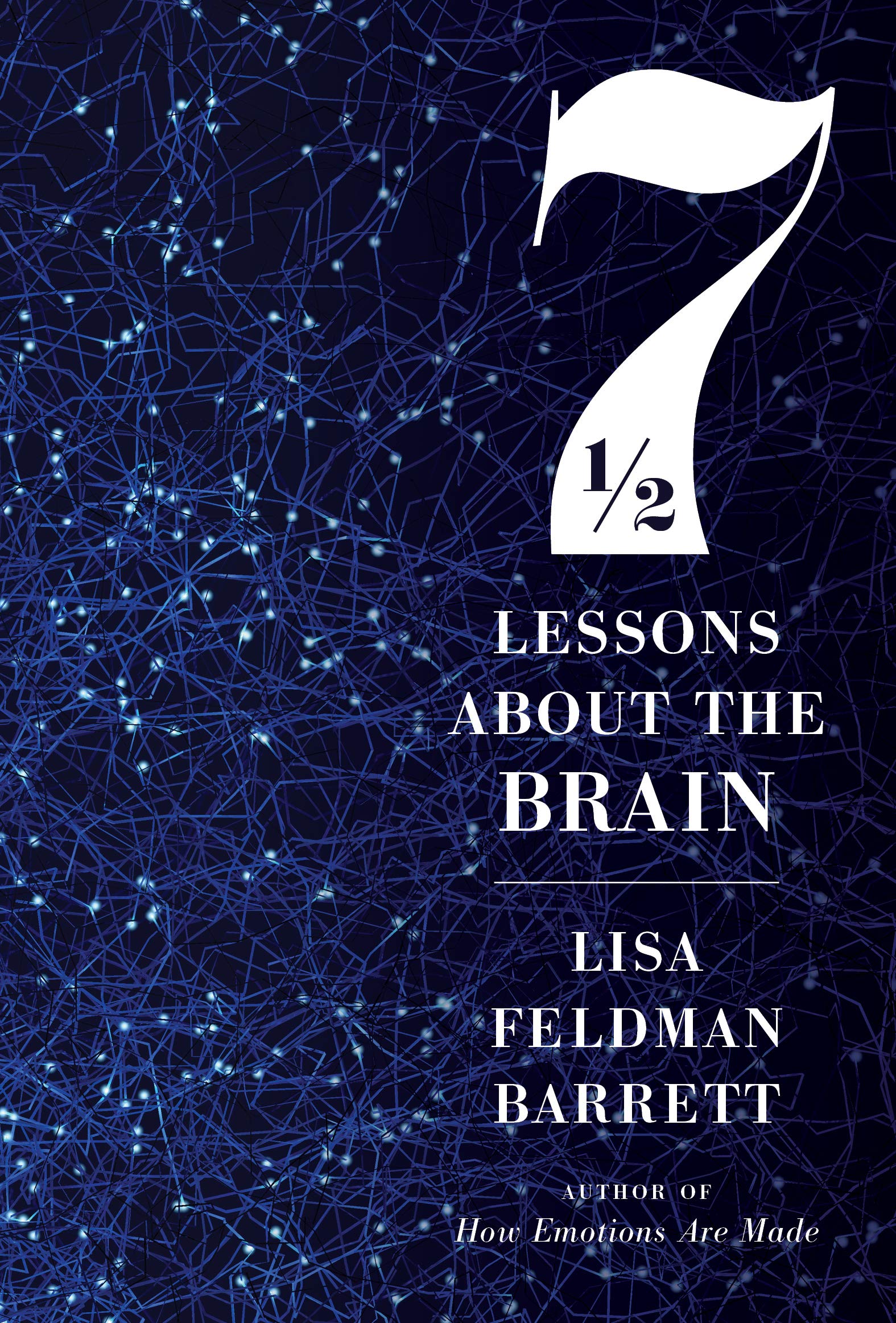

Have you ever wondered why you have a brain? Let renowned neuroscientist Lisa Feldman Barrett demystify that big gray blob between your ears. In seven short essays (plus a bite-sized story about how brains evolved), this slim, entertaining, and accessible collection reveals mind-expanding lessons from the front lines of neuroscience research. You’ll learn where brains came from, how they’re structured (and why it matters), and how yours works in tandem with other brains to create everything you experience. Along the way, you’ll also learn to dismiss popular myths such as the idea of a “lizard brain” and the alleged battle between thoughts and emotions, or even between nature and nurture, to determine your behavior.
Sure to intrigue casual readers and scientific veterans alike, Seven and a Half Lessons About the Brain is full of surprises, humor, and important implications for human nature–a gift of a book that you will want to savor again and again.
Mon avis : Pas encore lu.
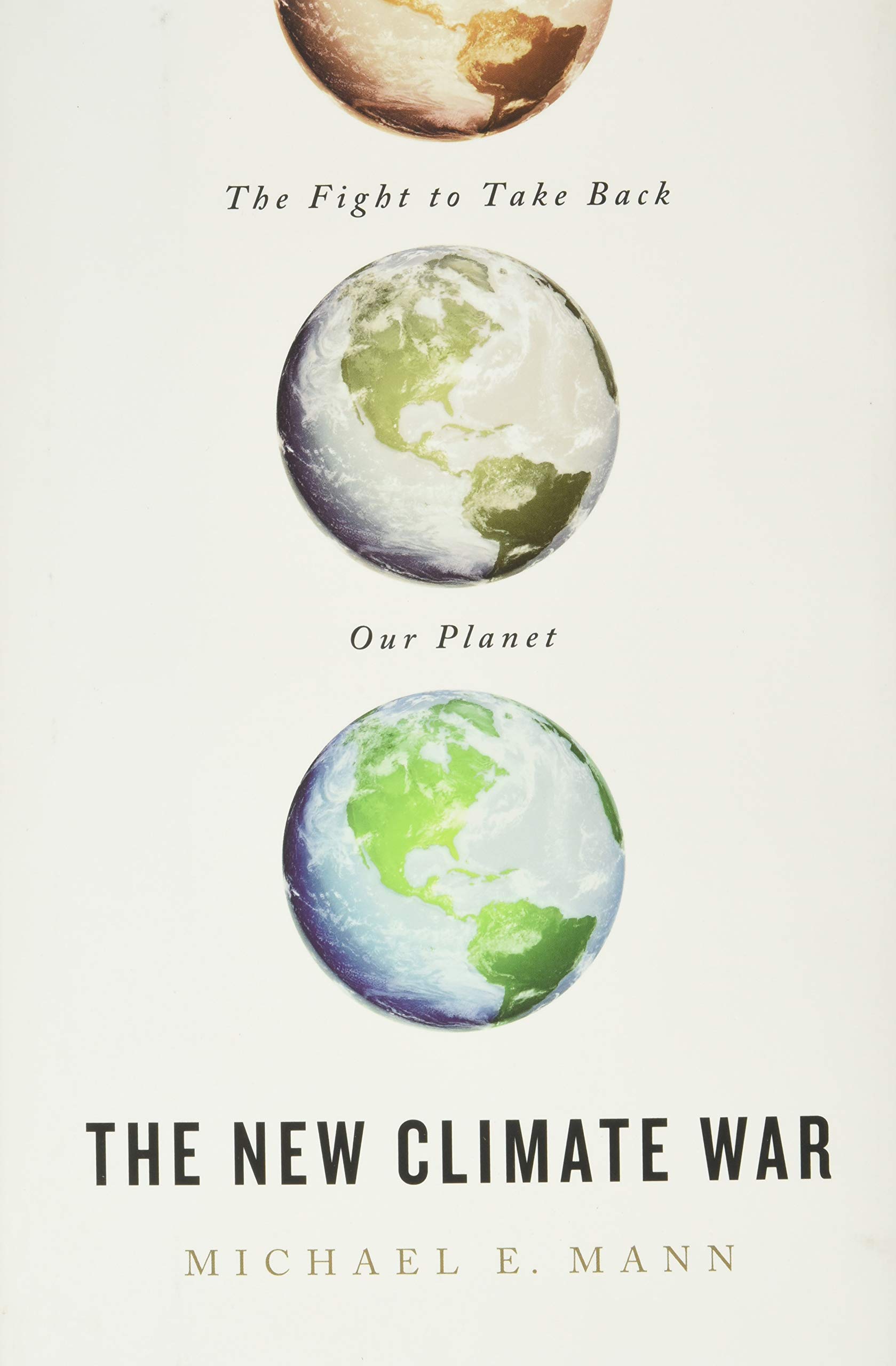

The Fight to Take Back Our Planet Hardcover
A renowned climate scientist shows how fossil fuel companies have waged a thirty-year campaign to deflect blame and responsibility and delay action on climate change, and offers a battle plan for how we can save the planet.
Recycle. Fly less. Eat less meat. These are some of the ways that we’ve been told can slow climate change. But the inordinate emphasis on individual behavior is the result of a marketing campaign that has succeeded in placing the responsibility for fixing climate change squarely on the shoulders of individuals.
Fossil fuel companies have followed the example of other industries deflecting blame (think “guns don’t kill people, people kill people”) or greenwashing (think of the beverage industry’s “Crying Indian” commercials of the 1970s). Meanwhile, they’ve blocked efforts to regulate or price carbon emissions, run PR campaigns aimed at discrediting viable alternatives, and have abdicated their responsibility in fixing the problem they’ve created. The result has been disastrous for our planet.
In The New Climate War, Mann argues that all is not lost. He draws the battle lines between the people and the polluters-fossil fuel companies, right-wing plutocrats, and petrostates. And he outlines a plan for forcing our governments and corporations to wake up and make real change, including: a common-sense, attainable approach to carbon pricing- and a revision of the well-intentioned but flawed currently proposed version of the Green New Deal; allowing renewable energy to compete fairly against fossil fuels; debunking the false narratives and arguments that have worked their way into the climate debate and driven a wedge between even those who support climate change solutions; combatting climate doomism and despair-mongering.
With immensely powerful vested interests aligned in defense of the fossil fuel status quo, the societal tipping point won’t happen without the active participation of citizens everywhere aiding in the collective push forward. This book will reach, inform, and enable citizens everywhere to join this battle for our planet.
Mon avis : Pas encore lu.
Psychologie & Sciences Cognitives
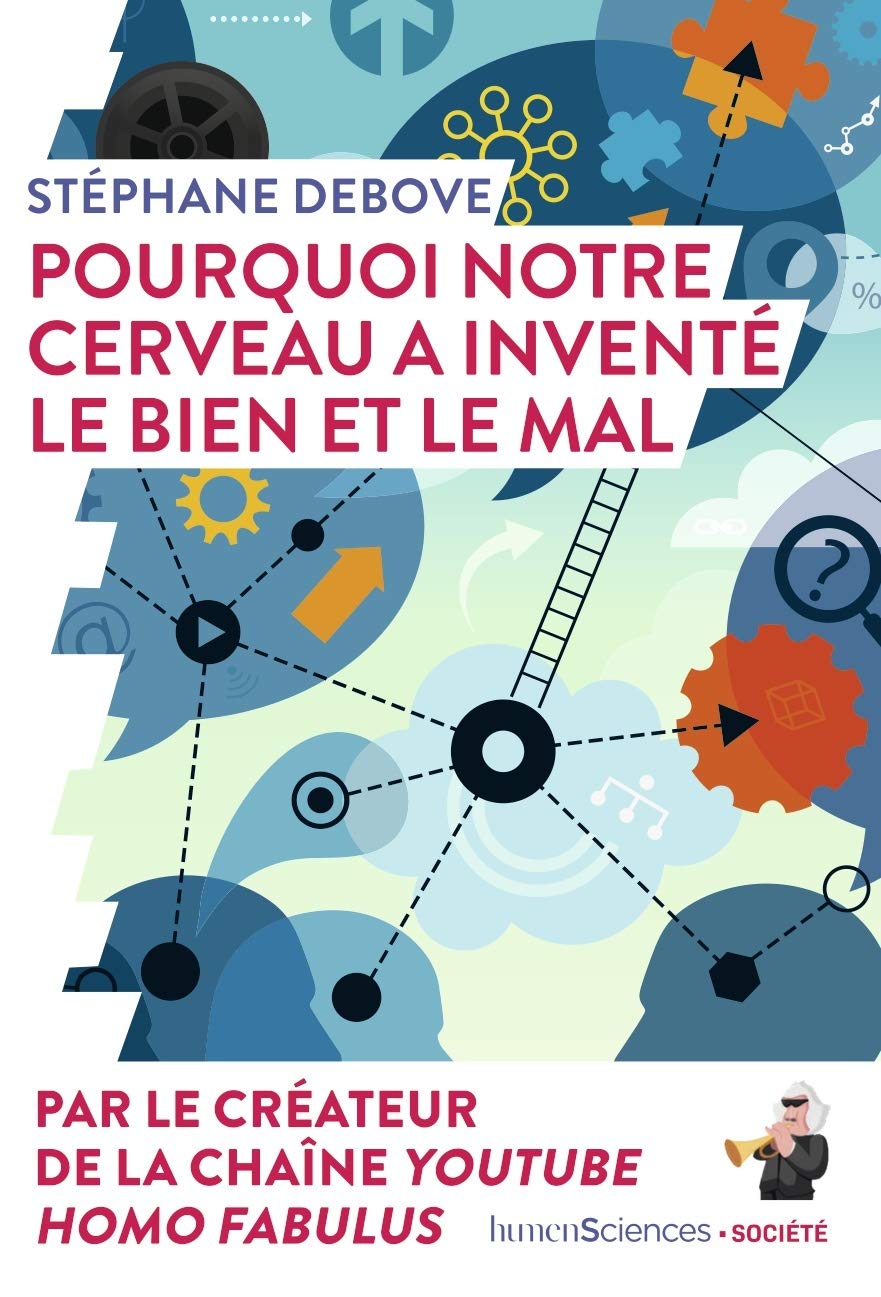

« C’est la seule chose morale à faire. » D’où viennent ces jugements moraux qui, de nombreuses fois par jour, contraignent nos comportements et nous poussent à agir contre nos intérêts ? Serions-nous tous prédisposés à la naissance à devenir des êtres moraux, équipés d’un « sens moral » ? Si oui, à quoi aurait pu servir ce sens au cours de l’évolution ? Et alors, comment expliquer que les jugements moraux varient tellement d’une société à l’autre et que l’on observe encore tant de comportements immoraux autour de nous ? Et les animaux, sont-ils « moraux » eux aussi ? Un biologiste de l’évolution et vulgarisateur hors pair s’empare de toutes ces questions fascinantes pour y apporter des réponses qui le sont tout autant.
Mon avis : Pas encore lu.


Nous nourissons souvent des théories bien tranchées sur les enfants (et les adultes) surdoués. On les méprise, on les encense, on est inquiet ou admiratif. Ils ont un gros cerveau, ils sont sensibles, ils ont de l’humour, ils échouent à l’école, ils décrochent souvent le prix Nobel, ils font des cauchemars, ils sont naïfs, ils ont un sens aigu de la justice. Toutes ces images sont-elles justes, ou bien sont-elles seulement le reflet de nos fantasmes et stéréotypes ? Ce livre passe en revue une série de questions et de théories psychologiques naïves à propos desquelles nous cultivons des croyances sur les enfants surdoués. Au travers d’une approche résolument scientifique, chaque thème est ainsi analysé. Certaines de nos représentations sont validées, d’autres sont connues pour être fausses. Pour un certain nombre, enfin, les travaux des chercheurs sont trop peu nombreux pour qu’on puisse raisonnablement trancher. Attendez-vous à avoir bientôt une vision plus nuancée, et largement plus optimiste, de l’aventure riche et variée qui attend généralement un enfant précoce dans notre monde si ordinaire.
Mon avis : Pas encore lu.
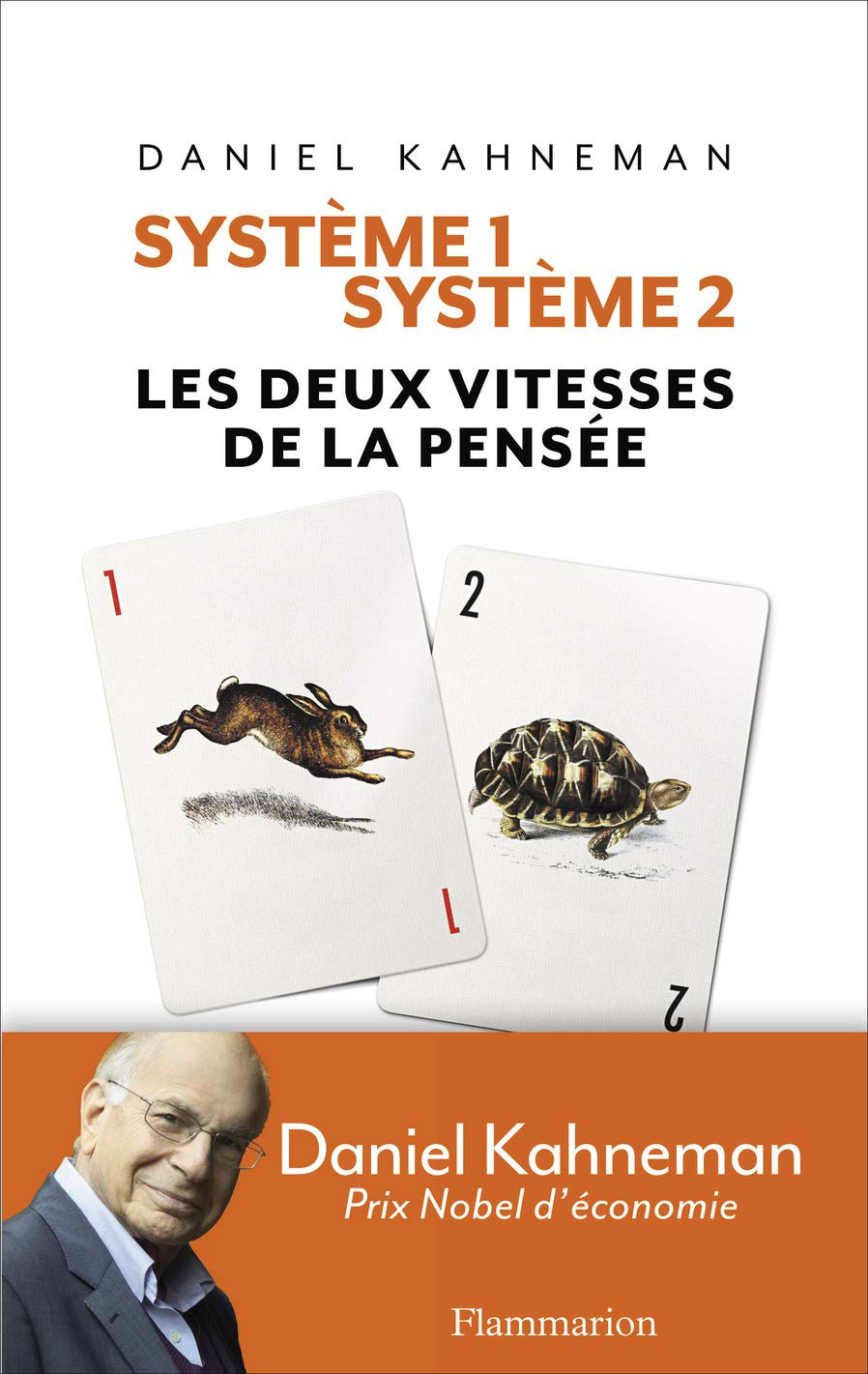

Les deux vitesses de la pensée
Comment pensons-nous ? Qu’est-ce qui guide nos préférences, nos jugements, nos décisions ? Quand faut-il ou non faire confiance à notre intuition ? Pourquoi agissons-nous souvent contre notre intérêt ? Telles sont quelques-unes des questions qui servent de fil rouge à cet ouvrage, dans lequel Daniel Kahneman nous emmène à la rencontre des deux « personnages » qui se partagent notre esprit.
Le « Système 1 » est rapide, intuitif et émotionnel ; le « Système 2 » est plus lent, plus réfléchi, plus contrôlé et plus logique. Via de multiples expériences auxquelles le lecteur est invité à s’essayer lui-même, sont exposés les facultés extraordinaires de la pensée rapide, le rôle de l’émotion dans nos choix et nos jugements, mais aussi les ravages des partis pris et autres biais cognitifs dont nous sommes les jouets illusion de familiarité, effet de halo, biais optimiste, illusion de causalité, effet d’ancrage, illusion rétro-spective… — autant d’exemples de notre tendance à interpréter les événements en fonction de ce que nous connaissons déjà, du sens que nous souhaitons qu’ils aient, et de notre incapacité, inversement, à raisonner statistiquement, en acceptant l’idée de hasard.
Fruit de toute une vie de recherche aux confins de la psychologie et de l’économie, Système 1/Système 2 dessine une théorie brillante, qui offre des prolongements pratiques immédiats dans la vie quotidienne et professionnelle.
Mon avis : Pas encore lu.
Sciences sociales
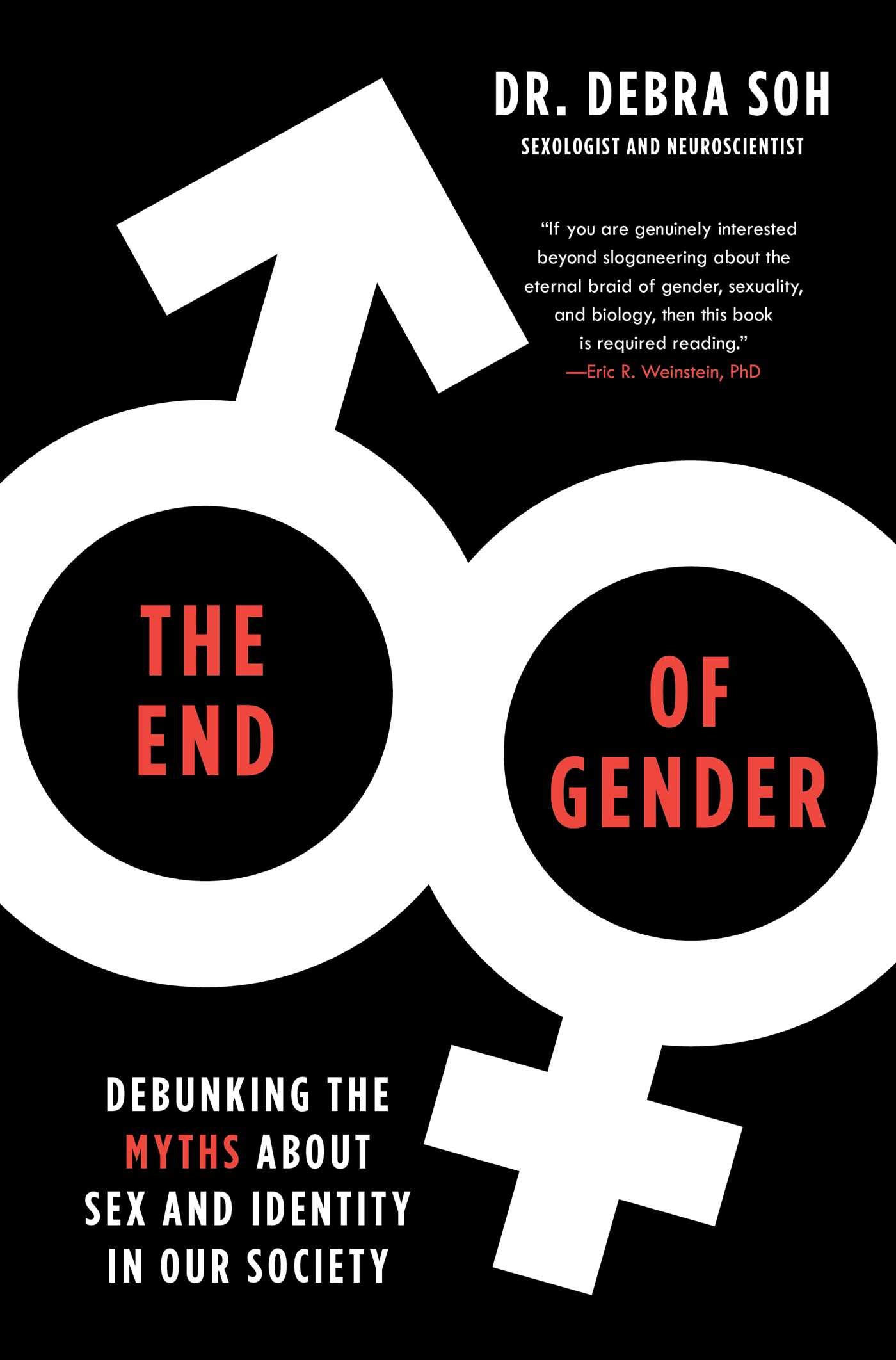

Debunking the Myths about Sex and Identity in Our Society
International sex researcher, neuroscientist, and columnist Debra Soh debunks popular gender myths in this research-based, scientific examination of the many facets of gender identity.
Is our gender something we’re born with, or are we conditioned by society? In The End of Gender, neuroscientist and sexologist Dr. Debra Soh uses a research-based approach to address this hot-button topic, unmasking popular misconceptions about the nature vs. nurture debate and exploring what it means to be a woman or a man in today’s society.
Both scientific and objective, and drawing on original research and carefully conducted interviews, Soh tackles a wide range of issues, such as gender-neutral parenting, gender dysphoric children, and the neuroscience of being transgender. She debates today’s accepted notion that gender is a social construct and a spectrum, and challenges the idea that there is no difference between how male and female brains operate.
The End of Gender is a conversation-starting work that will challenge what you thought you knew about gender, identity, and everything in between. Timely, informative, and provocative, it will arm you with the facts you need to come to your own conclusions about gender identity and its place in the world today.
Mon avis : Pas encore lu.
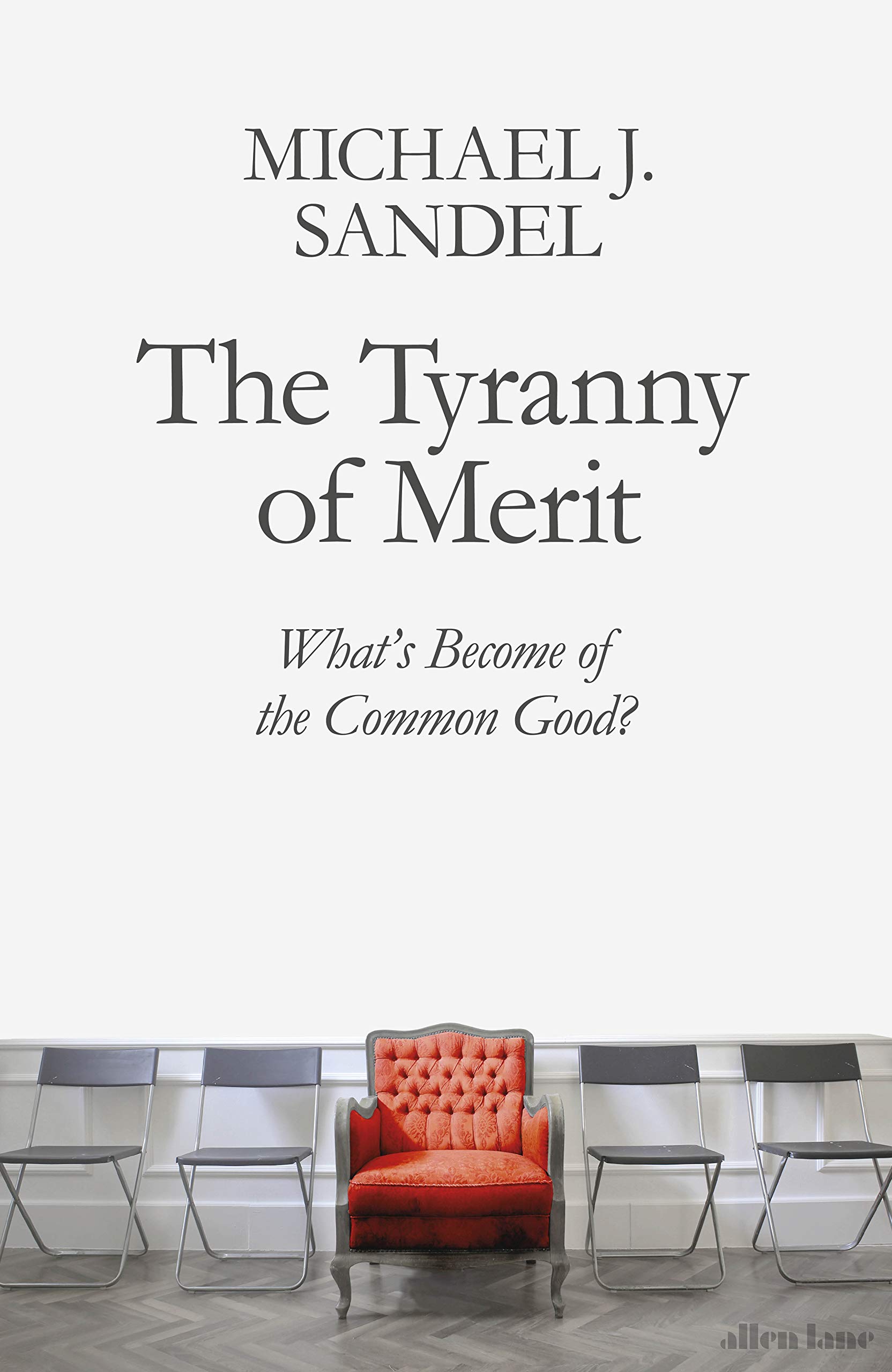

What’s Become of the Common Good?
These are dangerous times for democracy. We live in an age of winners and losers, where the odds are stacked in favour of the already fortunate. Stalled social mobility and entrenched inequality give the lie to the promise that “you can make it if you try”. And the consequence is a brew of anger and frustration that has fuelled populist protest, with the triumph of Brexit and election of Donald Trump.
Michael J. Sandel argues that to overcome the polarized politics of our time, we must rethink the attitudes toward success and failure that have accompanied globalisation and rising inequality. Sandel highlights the hubris a meritocracy generates among the winners and the harsh judgement it imposes on those left behind. He offers an alternative way of thinking about success—more attentive to the role of luck in human affairs, more conducive to an ethic of humility, and more hospitable to a politics of the common good.
Mon avis : Pas encore lu.


The First 5,000 Years
Every economics textbook says the same thing: Money was invented to replace onerous and complicated barter systems—to relieve ancient people from having to haul their goods to market. The problem with this version of history? There’s not a shred of evidence to support it.
Here anthropologist David Graeber presents a stunning reversal of conventional wisdom. He shows that for more than 5,000 years, since the beginnings of the first agrarian empires, humans have used elaborate credit systems to buy and sell goods—that is, long before the invention of coins or cash. It is in this era, Graeber argues, that we also first encounter a society divided into debtors and creditors.
Graeber shows that arguments about debt and debt forgiveness have been at the center of political debates from Italy to China, as well as sparking innumerable insurrections. He also brilliantly demonstrates that the language of the ancient works of law and religion (words like “guilt,” “sin,” and “redemption”) derive in large part from ancient debates about debt, and shape even our most basic ideas of right and wrong. We are still fighting these battles today without knowing it.
Debt: The First 5,000 Years is a fascinating chronicle of this little known history—as well as how it has defined human history, and what it means for the credit crisis of the present day and the future of our economy.
Mon avis : Pas encore lu.
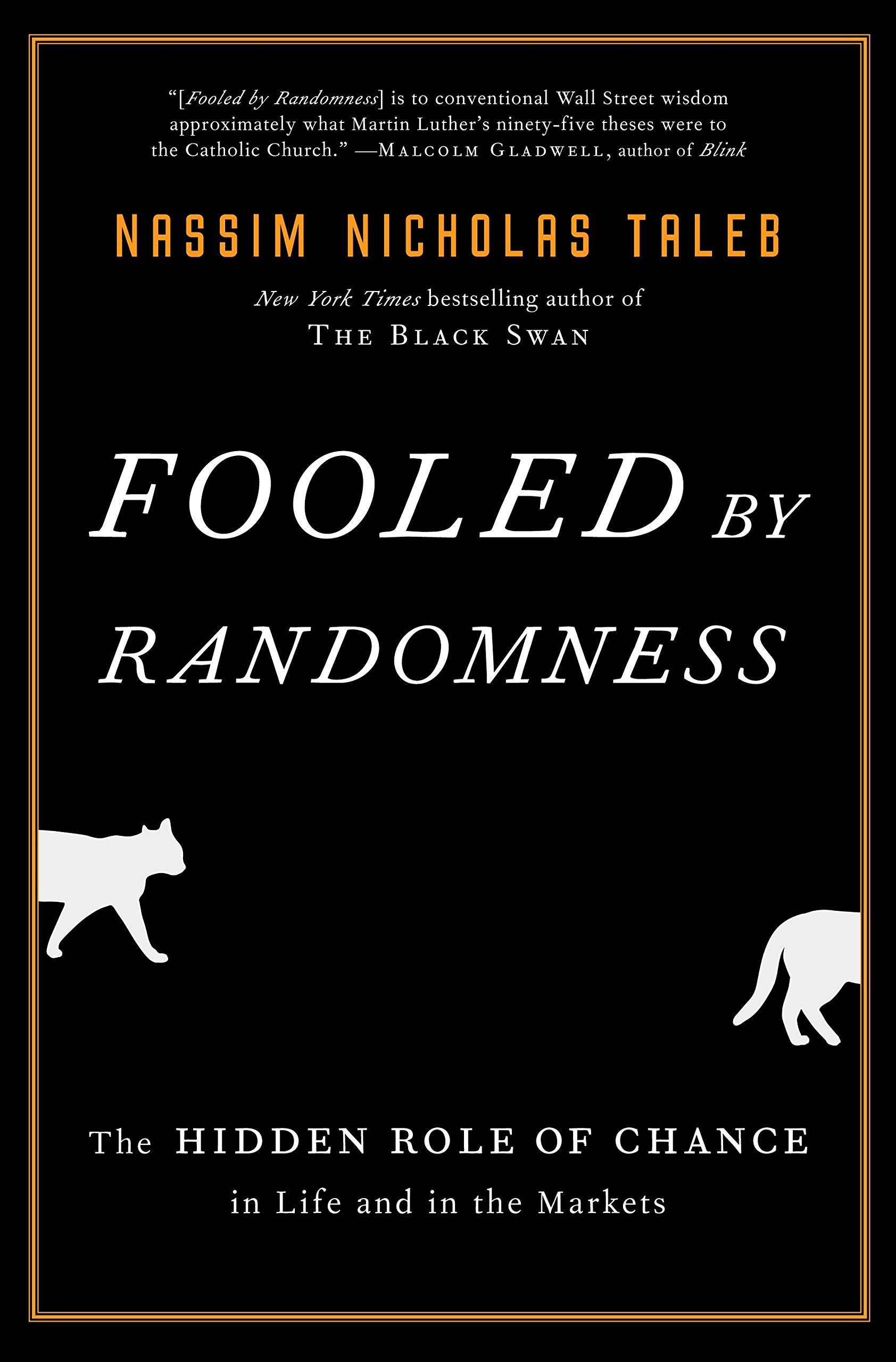

The Hidden Role of Chance in Life and in the Markets
Fooled by Randomness is the word-of-mouth sensation that will change the way you think about business and the world. Nassim Nicholas Taleb—veteran trader, renowned risk expert, polymathic scholar, erudite raconteur, and New York Times bestselling author of The Black Swan—has written a modern classic that turns on its head what we believe about luck and skill.
This book is about luck—or more precisely, about how we perceive and deal with luck in life and business. Set against the backdrop of the most conspicuous forum in which luck is mistaken for skill—the world of trading—Fooled by Randomness provides captivating insight into one of the least understood factors in all our lives. Writing in an entertaining narrative style, the author tackles major intellectual issues related to the underestimation of the influence of happenstance on our lives.
The book is populated with an array of characters, some of whom have grasped, in their own way, the significance of chance: the baseball legend Yogi Berra; the philosopher of knowledge Karl Popper; the ancient world’s wisest man, Solon; the modern financier George Soros; and the Greek voyager Odysseus. We also meet the fictional Nero, who seems to understand the role of randomness in his professional life but falls victim to his own superstitious foolishness.
However, the most recognizable character of all remains unnamed—the lucky fool who happens to be in the right place at the right time—he embodies the “survival of the least fit.” Such individuals attract devoted followers who believe in their guru’s insights and methods. But no one can replicate what is obtained by chance.
Are we capable of distinguishing the fortunate charlatan from the genuine visionary? Must we always try to uncover nonexistent messages in random events? It may be impossible to guard ourselves against the vagaries of the goddess Fortuna, but after reading Fooled by Randomness we can be a little better prepared.
Mon avis : Pas encore lu.
Cinéma
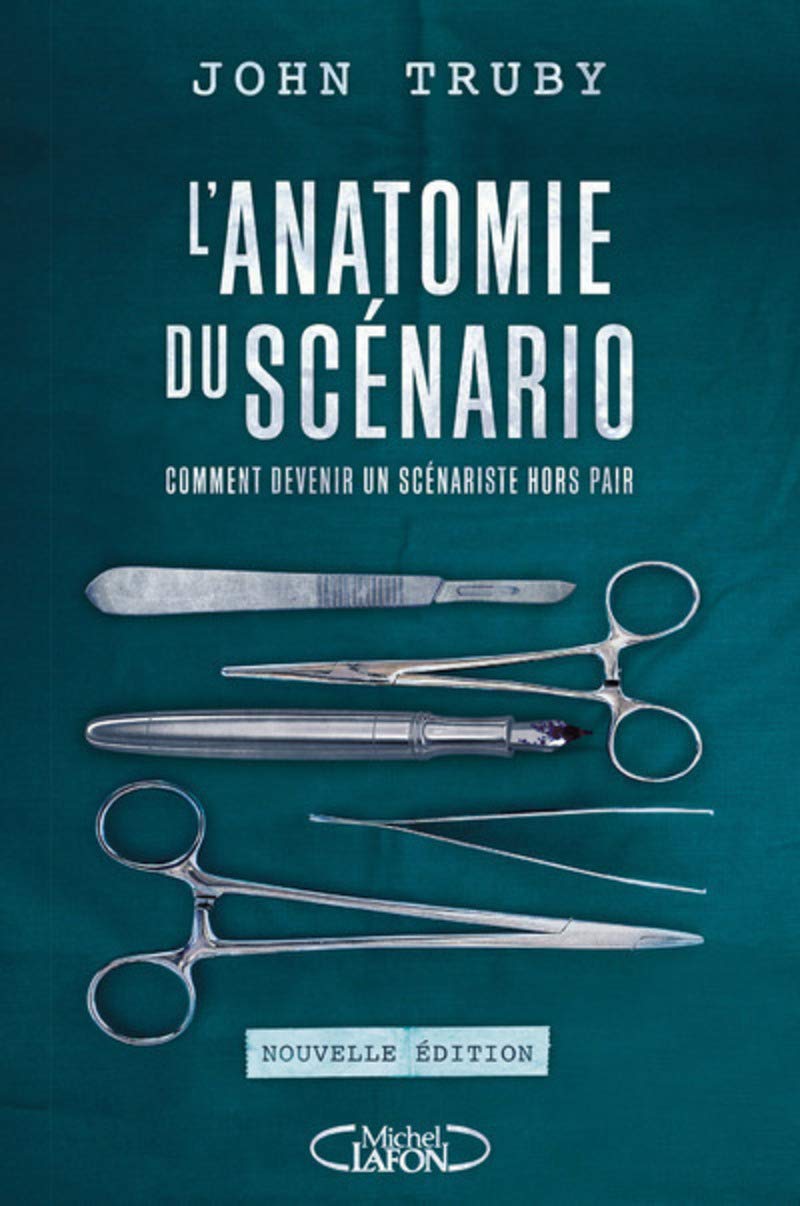

Comment devenir un scénariste hors pair
Raconter une histoire ne s’improvise pas. La narration est un artisanat qui, avant de pouvoir prétendre à l’art, exige le respect de règles que John Truby a rassemblées dans cette Anatomie du scénario.
Sa méthode unique nous fait entrer dans les secrets de fabrication de ce qui constitue la condition première de la réussite d’un film : une bonne histoire, et nous guide pas à pas dans la construction des personnages, de l’intrigue, de l’univers du récit, des dialogues, en détaillant les vingt-deux étapes incontournables dans l’écriture d’un bon scénario.
Dans cette nouvelle édition, augmentée de questions/réponses tirées de ses master class avec ses étudiants français, et toujours plus tournée vers la pratique, vous apprendrez comment résoudre les problèmes spécifiques du scénariste, qu’il écrive pour le cinéma ou la télé, à partir d’exemples analysés en profondeur, allant des plus classiques (Casablanca, La Vie est belle, Le Parrain) aux plus récents (Un prophète, L’Arnacœur, Breaking Bad ou Star Wars).
Mon avis : Pas encore lu.
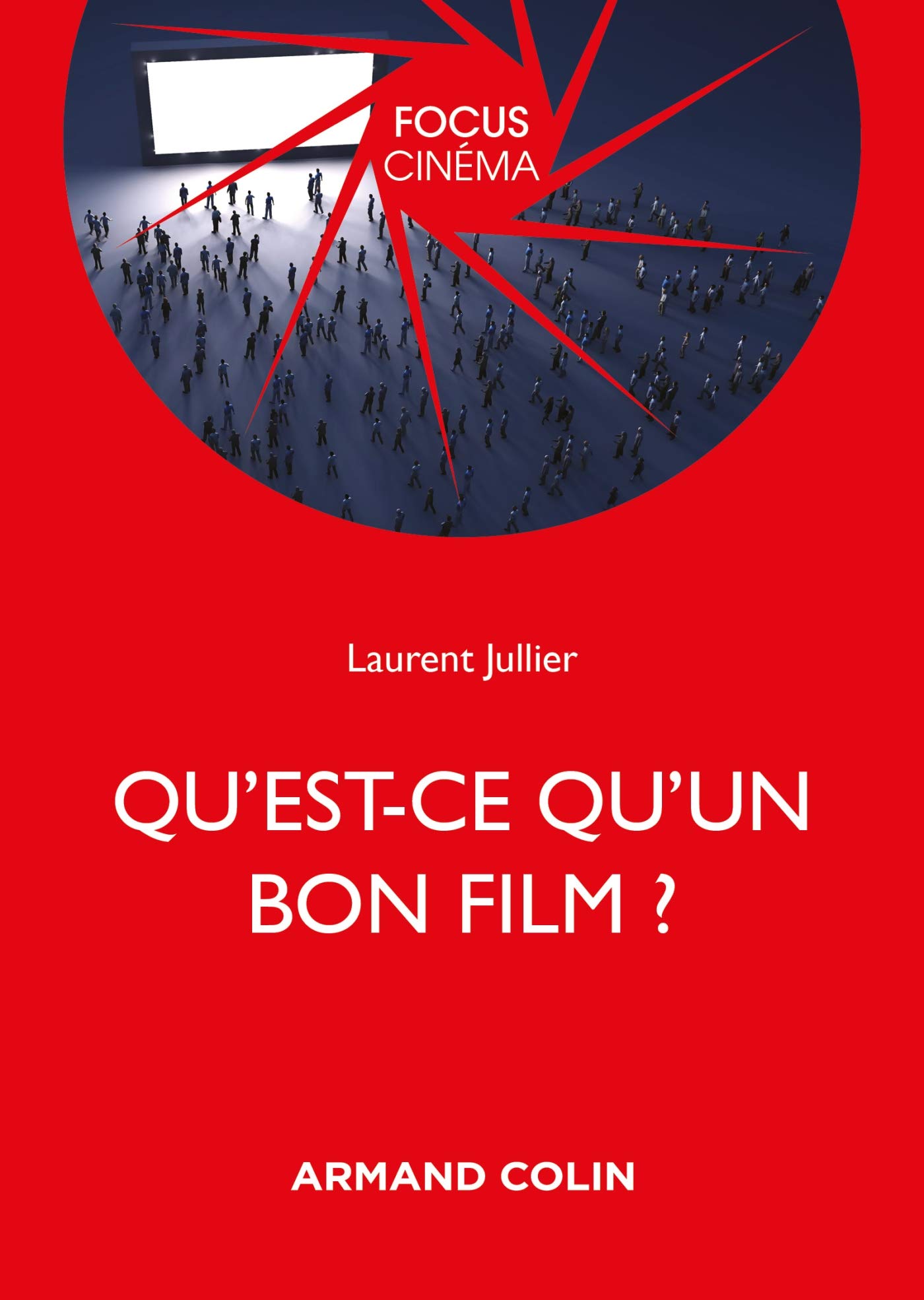

– J’ai adoré.
— Tu es fou ? C’était mauvais.
Au cinéma, nous n’avons pas tous les mêmes goûts. Il existe quantité de raisons de s’enthousiasmer pour un film (ou de bâiller devant lui), et ce livre en fait le tour. Il ne tranche pas. Quels que soient mes goûts et ceux de mon voisin, je n’ai pas à me sentir inférieur ni supérieur à lui. Même s’il fait la moue quand je lui dis quel est mon film préféré. D’ailleurs la recette du bon film n’existe pas, sinon les réalisateurs l’appliqueraient depuis longtemps. Tout le monde fait de son mieux, de chaque côté de l’écran. Ce n’est pas facile. On ne sait pas toujours dire à l’avance quelles qualités un film doit posséder pour nous plaire. Et en sortant de la séance, on ne sait pas toujours quoi dire. Qu’est-ce qu’un bon film ? dédramatise la question. Acceptons nos différences.
Mon avis : Pas encore lu.
Jeux-vidéo
![]()

The Triumphant, Turbulent Stories Behind How Video Games Are Made
Developing video games—hero’s journey or fool’s errand? The creative and technical logistics that go into building today’s hottest games can be more harrowing and complex than the games themselves, often seeming like an endless maze or a bottomless abyss. In Blood, Sweat, and Pixels, Jason Schreier takes readers on a fascinating odyssey behind the scenes of video game development, where the creator may be a team of 600 overworked underdogs or a solitary geek genius. Exploring the artistic challenges, technical impossibilities, marketplace demands, and Donkey Kong-sized monkey wrenches thrown into the works by corporate, Blood, Sweat, and Pixels reveals how bringing any game to completion is more than Sisyphean—it’s nothing short of miraculous.
Taking some of the most popular, bestselling recent games, Schreier immerses readers in the hellfire of the development process, whether it’s RPG studio Bioware’s challenge to beat an impossible schedule and overcome countless technical nightmares to build Dragon Age: Inquisition; indie developer Eric Barone’s single-handed efforts to grow country-life RPG Stardew Valley from one man’s vision into a multi-million-dollar franchise; or Bungie spinning out from their corporate overlords at Microsoft to create Destiny, a brand new universe that they hoped would become as iconic as Star Wars and Lord of the Rings—even as it nearly ripped their studio apart.
Documenting the round-the-clock crunches, buggy-eyed burnout, and last-minute saves, Blood, Sweat, and Pixels is a journey through development hell—and ultimately a tribute to the dedicated diehards and unsung heroes who scale mountains of obstacles in their quests to create the best games imaginable.
Mon avis : Pas encore lu.
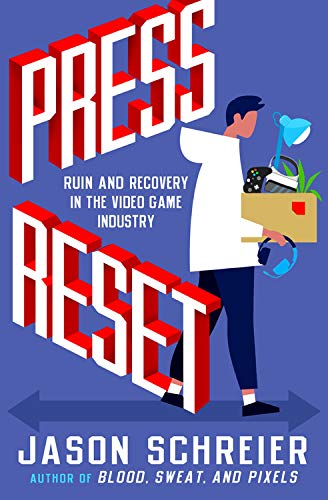

Ruin and Recovery in the Video Game Industry
From the bestselling author of Blood, Sweat, and Pixels comes the next definitive, behind-the-scenes account of the video game industry: how some of the past decade’s most renowned studios fell apart—and the stories, both triumphant and tragic, of what happened next.
Jason Schreier’s groundbreaking reporting has earned him a place among the preeminent investigative journalists covering the world of video games. In his eagerly anticipated, deeply researched new book, Schreier trains his investigative eye on the volatility of the video game industry and the resilience of the people who work in it.
The business of videogames is both a prestige industry and an opaque one. Based on dozens of first-hand interviews that cover the development of landmark games—Bioshock Infinite, Epic Mickey, Dead Space, and more—on to the shocking closures of the studios that made them, Press Reset tells the stories of how real people are affected by game studio shutdowns, and how they recover, move on, or escape the industry entirely.
Schreier’s insider interviews cover hostile takeovers, abusive bosses, corporate drama, bounced checks, and that one time the Boston Red Sox’s Curt Schilling decided he was going to lead a game studio that would take out World of Warcraft. Along the way, he asks pressing questions about why, when the video game industry is more successful than ever, it’s become so hard to make a stable living making video games—and whether the business of making games can change before it’s too late.
Mon avis : Pas encore lu.
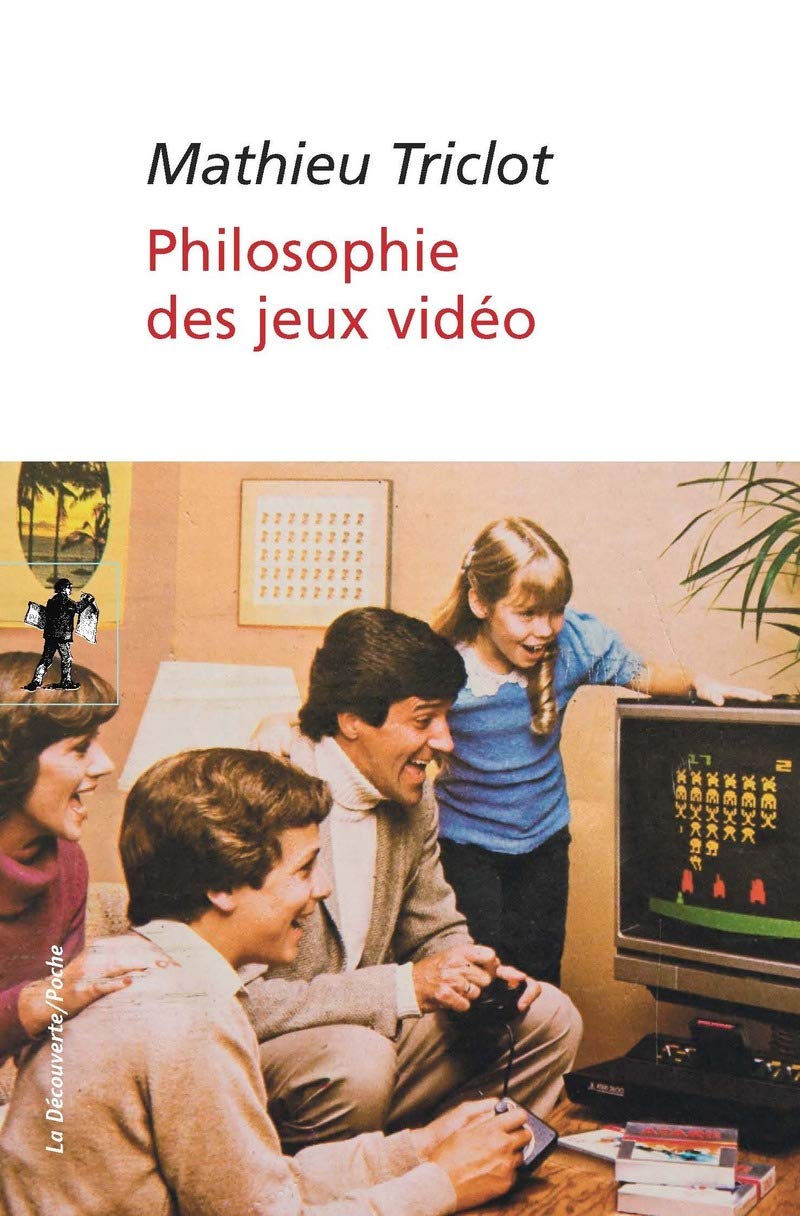

Philosophie des jeux vidéo se propose d’analyser la spécificité technique et esthétique du média, d’explorer les principaux lieux où l’expérience contemporaine du jeu vidéo s’est façonnée et de disséquer les investissements politiques du « sujet vidéoludique » à l’âge de la marchandise animée.
Vous êtes face à un jeu vidéo. Vous pressez les touches, déplacez la souris, appuyez en cadence sur les boutons du pad. Qu’est-ce qui se produit alors ? Quel est cet état si particulier, à la limite du vertige et de l’hallucination ?
Depuis les premiers hackers, qui programmaient la nuit sur les ordinateurs géants d’universités américaines, jusqu’à la console de salon, en passant par la salle d’arcade des années 1970, ce qui s’est à chaque fois inventé, au fil de l’histoire des jeux vidéo, ce sont de nouvelles liaisons à la machine, de nouvelles manières de jouir de l’écran.
On aurait tort de négliger ces petits objets qui ressemblent fort à de simples gadgets : ils concentrent en fait les logiques les plus puissantes du capitalisme informationnel. Et ceci parce qu’ils combinent, comme aucune autre forme culturelle, désir, marchandise et information.
Les jeux vidéo sont de petites poussières de rêve grâce auxquelles le capitalisme se secoue de son grand sommeil mais ce sont aussi des miroirs brisés qui renvoient une image complexe de la subjectivité contemporaine : en s’y intensifiant, les logiques du management informationnel y redeviennent visibles, accessibles à la critique, actionnables, reconfigurables, jouables.
Mon avis : Pas encore lu.
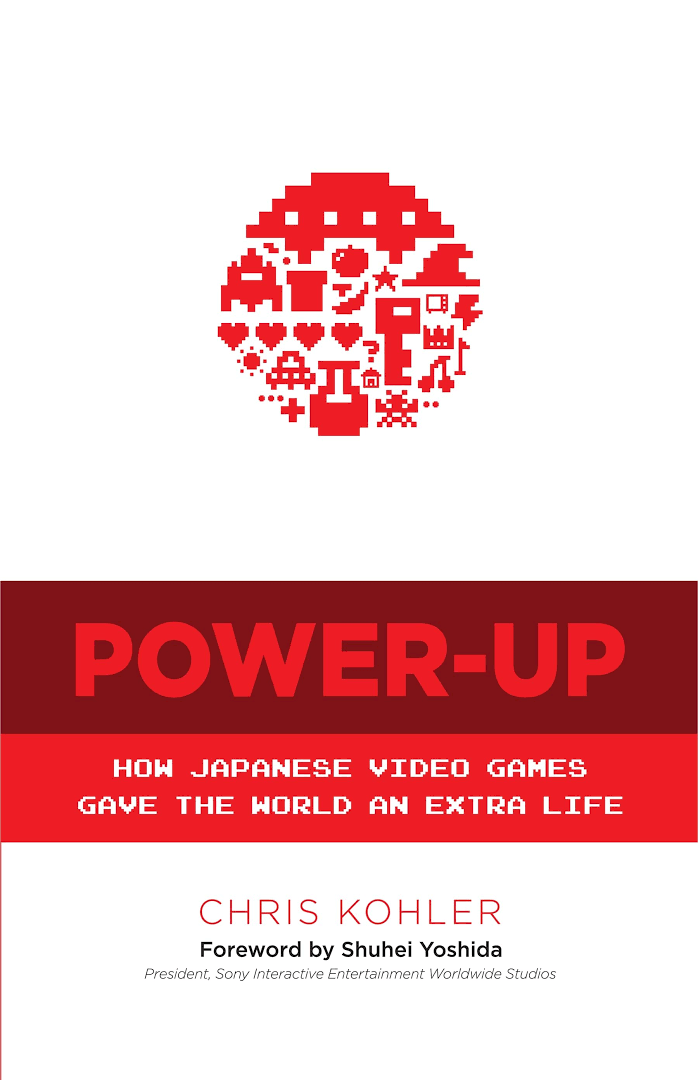

How Japanese Video Games Gave the World an Extra Life
BradyGames’ Power-Up: How Japanese Video Games Gave the World an Extra Life, by Chris Kohler, is a unique book that gives readers an entertaining and authoritative look at the indelible influence the video gaming, particularly, Japanese gaming, has had on the world. Power-Up is the first English-language work of its kind to examine the reasons behind the success of Japanese video games, rather than focusing on the history of video games. Just some of the features readers will find in this book include:
Profiles of some of the most fascinating Japanese video game designers in the industry, along with a critical look at Japanese video games from their earliest beginnings to new, exciting trends that ride the bleeding edge of popular culture.
Explanations on why Japanese video games are unique and why they resonate so well with young American players.
Fresh insight into classic Japanese video games and the elements that made them so different from American games, the origin of Nintendo, Japan’s oldest and largest video game producer, Japanese Role-Playing Games, and much more!
In addition, the future of the Japanese gaming industry is also explored.
Mon avis : Pas encore lu.


Explorer les confins de la galaxie, des donjons sinistres ou des pays enchantés, vivre au temps des croisades ou rejouer l’issue de la guerre froide, bâtir des villes ou des empires millénaires… au point d’en oublier parfois sa famille, la fatigue ou la faim. Tout jeu vidéo est une invitation au voyage. Les jeux vidéo sont des univers dans lesquels les joueurs plongent, s’immergent, voire s’enferment, pour vivre des aventures hors du temps et de l’espace quotidiens.
Cette divergence, cette annulation, voire cette inversion du temps s’accompagnent du déploiement d’un espace de l’autre côté de l’écran. Comment cet espace-temps vidéoludique s’articule-t-il avec l’espace-temps du quotidien ? Et quelles sont les spatialités et les temporalités que les jeux vidéo déploient ? Cet ouvrage fait converger autour de ces questions les réflexions d’auteurs de diverses sciences humaines et sociales, de la géographie aux études littéraires en passant par l’anthropologie et la philosophie.
Mon avis : Pas encore lu.
Développement personnel


The New Japanese Minimalism
Fumio Sasaki is not an enlightened minimalism expert or organizing guru like Marie Kondo—he’s just a regular guy who was stressed out and constantly comparing himself to others, until one day he decided to change his life by saying goodbye to everything he didn’t absolutely need. The effects were remarkable: Sasaki gained true freedom, new focus, and a real sense of gratitude for everything around him. In Goodbye, Things Sasaki modestly shares his personal minimalist experience, offering specific tips on the minimizing process and revealing how the new minimalist movement can not only transform your space but truly enrich your life. The benefits of a minimalist life can be realized by anyone, and Sasaki’s humble vision of true happiness will open your eyes to minimalism’s potential.
Mon avis : Pas encore lu.
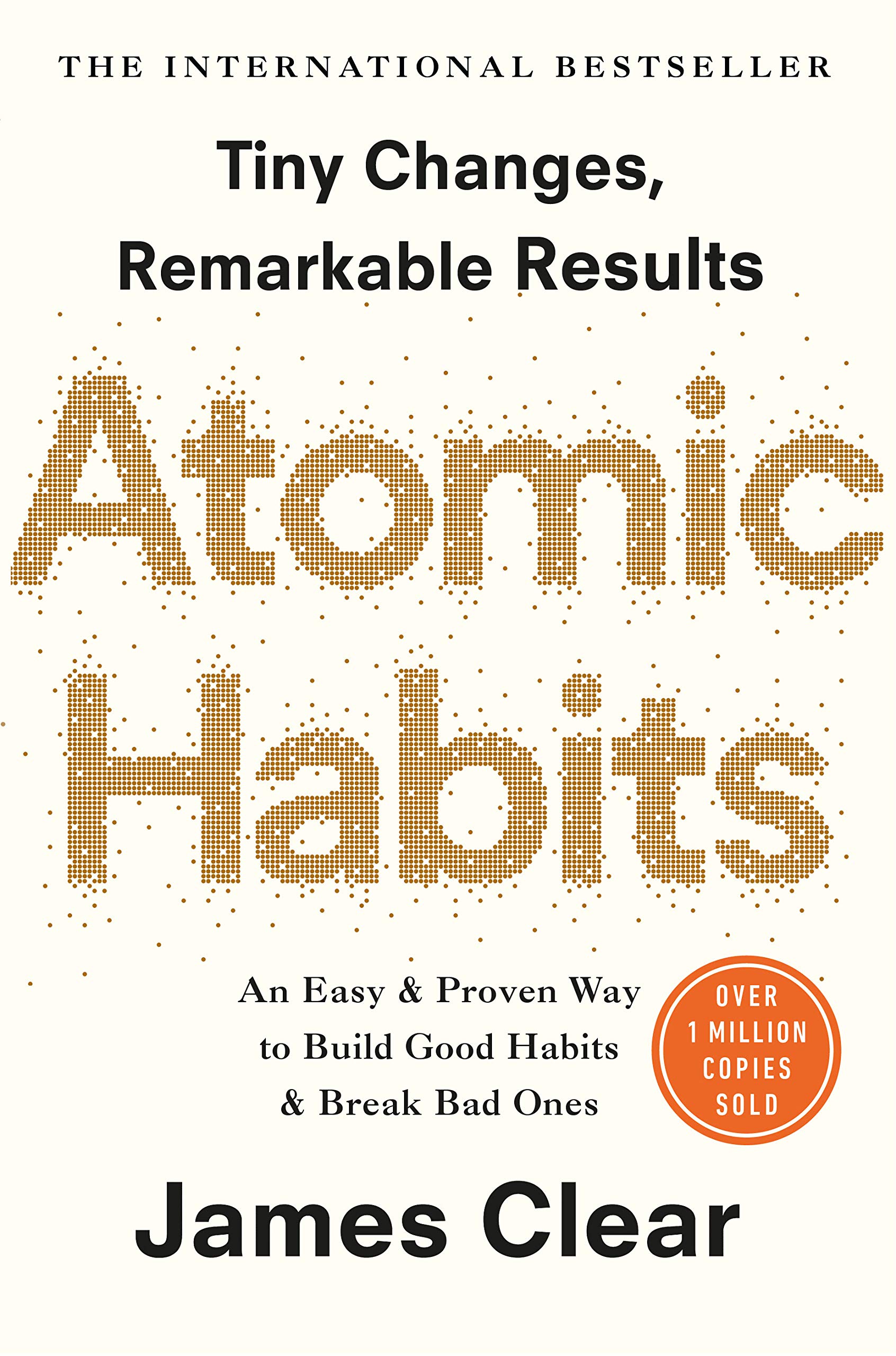

Tiny Changes, Remarkable Results
Transform your life with tiny changes in behaviour, starting now.
People think that when you want to change your life, you need to think big. But world-renowned habits expert James Clear has discovered another way. He knows that real change comes from the compound effect of hundreds of small decisions: doing two push-ups a day, waking up five minutes early, or holding a single short phone call.
He calls them atomic habits.
In this ground-breaking book, Clears reveals exactly how these minuscule changes can grow into such life-altering outcomes. He uncovers a handful of simple life hacks (the forgotten art of Habit Stacking, the unexpected power of the Two Minute Rule, or the trick to entering the Goldilocks Zone), and delves into cutting-edge psychology and neuroscience to explain why they matter. Along the way, he tells inspiring stories of Olympic gold medalists, leading CEOs, and distinguished scientists who have used the science of tiny habits to stay productive, motivated, and happy.
These small changes will have a revolutionary effect on your career, your relationships, and your life.
Mon avis : Pas encore lu.
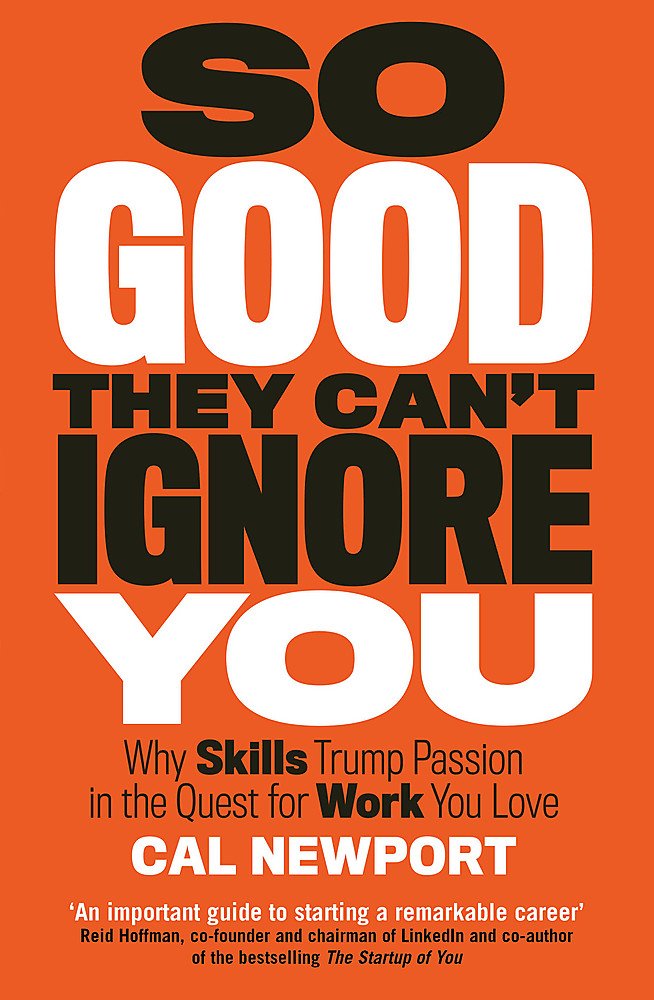

Why Skills Trump Passion in the Quest for Work You Love
“Follow your passion” is bad career advice. Find out what you should do instead…
In So Good They Can’t Ignore You, Cal Newport sets out on a quest to discover the reality of how people end up loving what they do. Spending time with organic farmers, venture capitalists, screenwriters, freelance computer programmers, and others who admitted to deriving great satisfaction from their work, Newport debunks the long-held belief that “following your passion” is the key to satisfaction. Drawing from these real life examples and cutting edge science, he details the alternative strategies that work much better for developing a compelling career.
So Good They Can’t Ignore You is or anyone fretting about what to do with their life, or frustrated by simplistic slogans like “do what you love and the money will follow”. It will change the way you think about your career, happiness and the crafting of a remarkable life.
Mon avis : Pas encore lu.
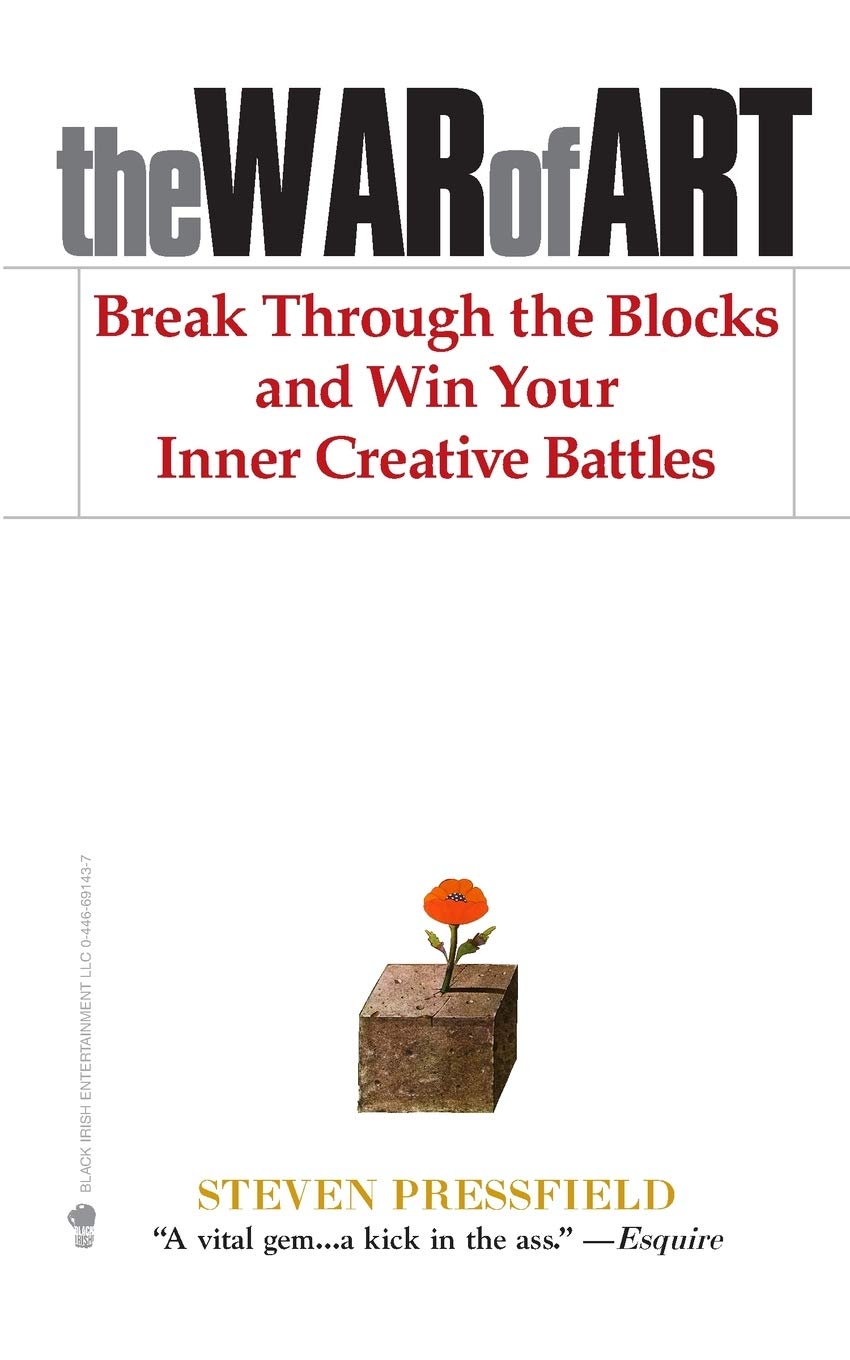

Break Through the Blocks and Win Your Inner Creative
A succinct, engaging, and practical guide for succeeding in any creative sphere, The War of Art is nothing less than Sun-Tzu for the soul.
What keeps so many of us from doing what we long to do?
Why is there a naysayer within? How can we avoid the roadblocks of any creative endeavor—be it starting up a dream business venture, writing a novel, or painting a masterpiece?
Bestselling novelist Steven Pressfield identifies the enemy that every one of us must face, outlines a battle plan to conquer this internal foe, then pinpoints just how to achieve the greatest success.
The War of Art emphasizes the resolve needed to recognize and overcome the obstacles of ambition and then effectively shows how to reach the highest level of creative discipline.
Think of it as tough love… for yourself.
Whether an artist, writer or business person, this simple, personal, and no-nonsense book will inspire you to seize the potential of your life.
Mon avis : Pas encore lu.
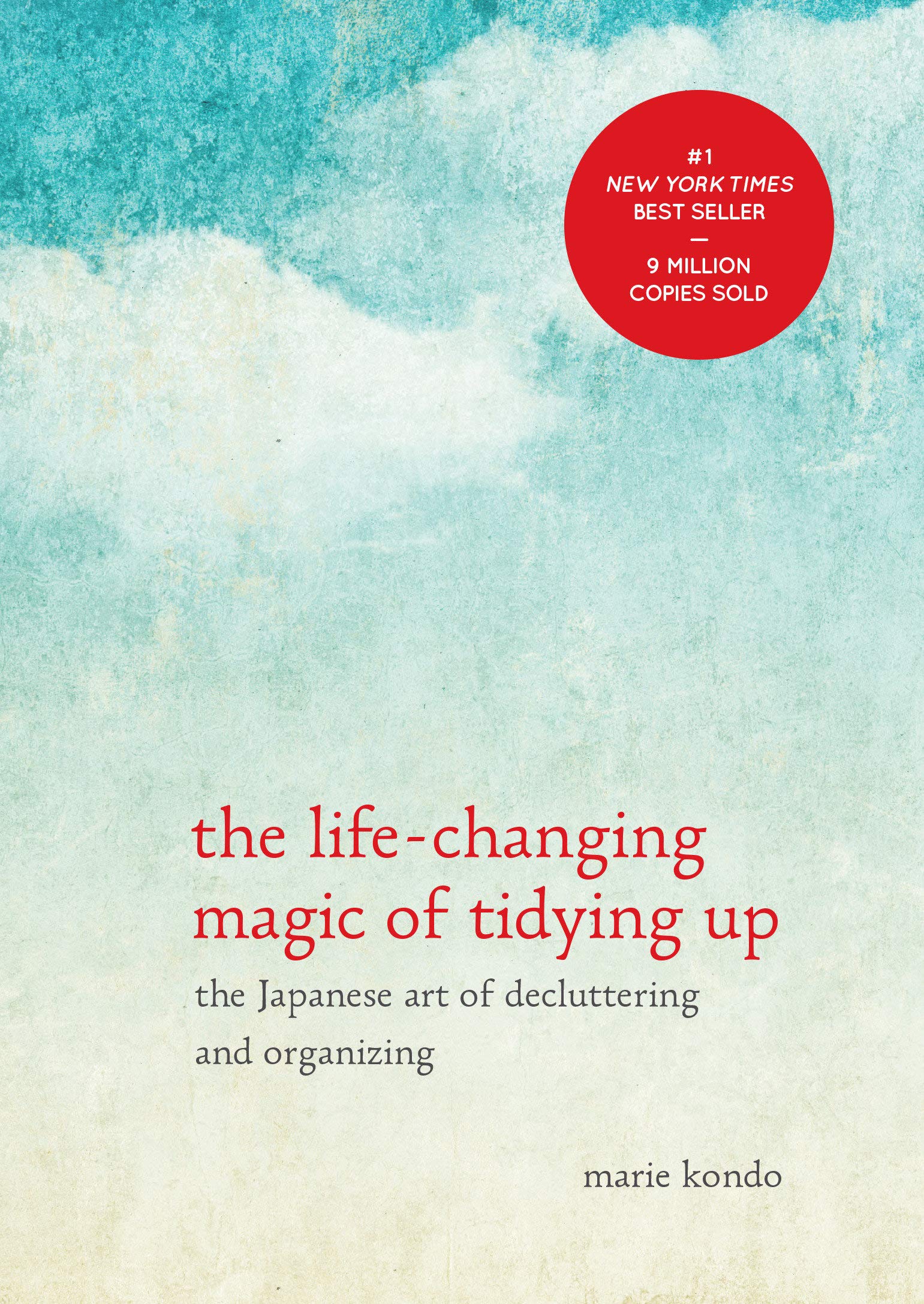

The Japanese Art of Decluttering and Organizing
Despite constant efforts to declutter your home, do papers still accumulate like snowdrifts and clothes pile up like a tangled mess of noodles?
Japanese cleaning consultant Marie Kondo takes tidying to a whole new level, promising that if you properly simplify and organize your home once, you’ll never have to do it again. Most methods advocate a room-by-room or little-by-little approach, which doom you to pick away at your piles of stuff forever. The KonMari Method, with its revolutionary category-by-category system, leads to lasting results. In fact, none of Kondo’s clients have lapsed (and she still has a three-month waiting list).
With detailed guidance for determining which items in your house “spark joy” (and which don’t), this international bestseller will help you clear your clutter and enjoy the unique magic of a tidy home—and the calm, motivated mindset it can inspire.
Mon avis : Pas encore lu.
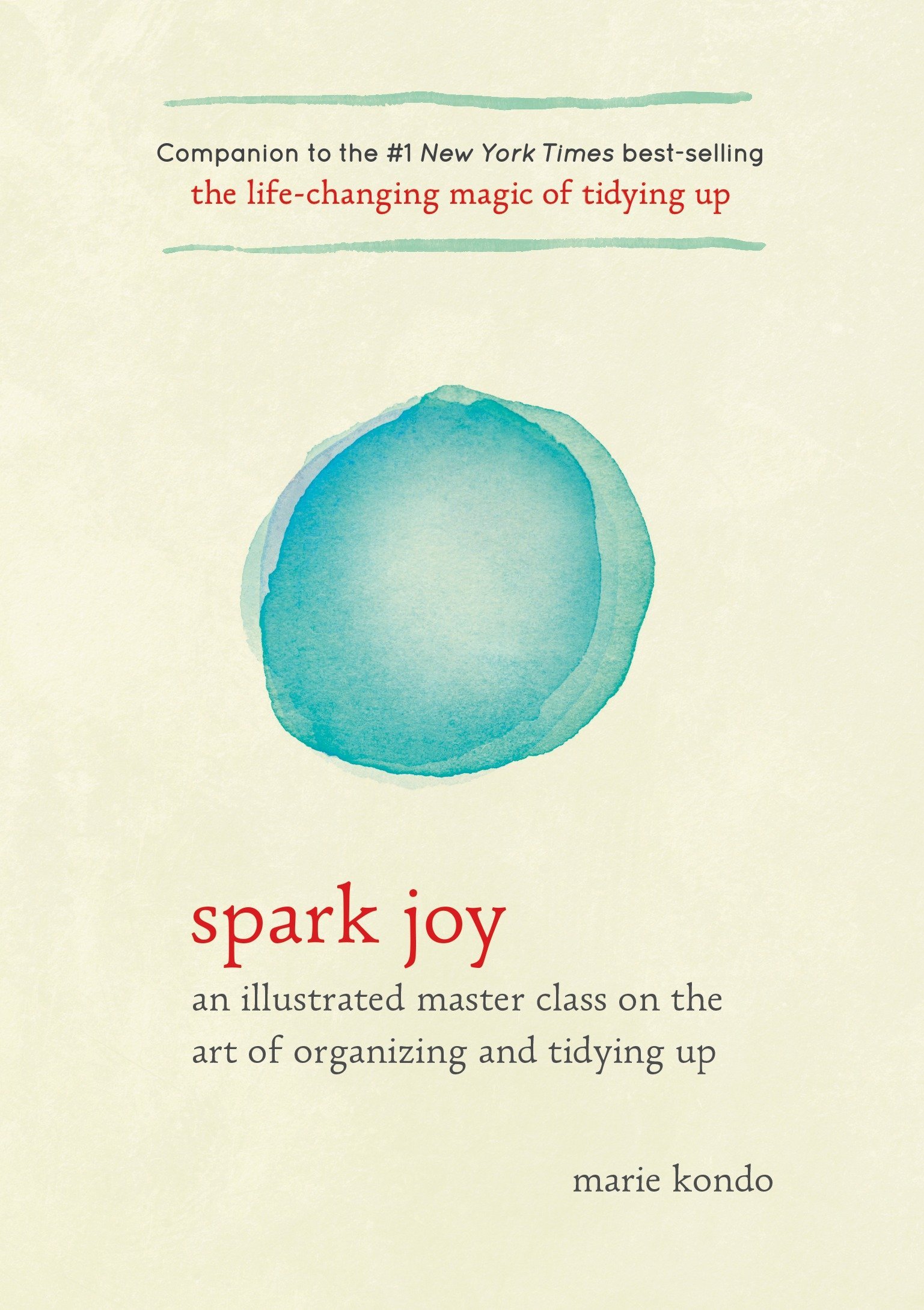

An Illustrated Master Class on the Art of Organizing and Tidying Up
Japanese decluttering guru Marie Kondo has revolutionized homes—and lives—across the world. Now, Kondo presents an illustrated guide to usingher acclaimed KonMari Method to create a joy-filled home that works the way you need it to.
Spark Joy features step-by-step folding illustrations for everything from shirts to socks, plus drawings of perfectly organized drawers and closets. Kondo also answers frequently asked questions, such as whether to keep “necessary” items that may not bring you joy. With guidance on specific categories including kitchen tools, cleaning supplies, hobby goods, digital photos, and even building your own personal “power spot” in your home, this comprehensive companion is sure to spark joy in anyone who wants to simplify their life.
Mon avis : Pas encore lu.
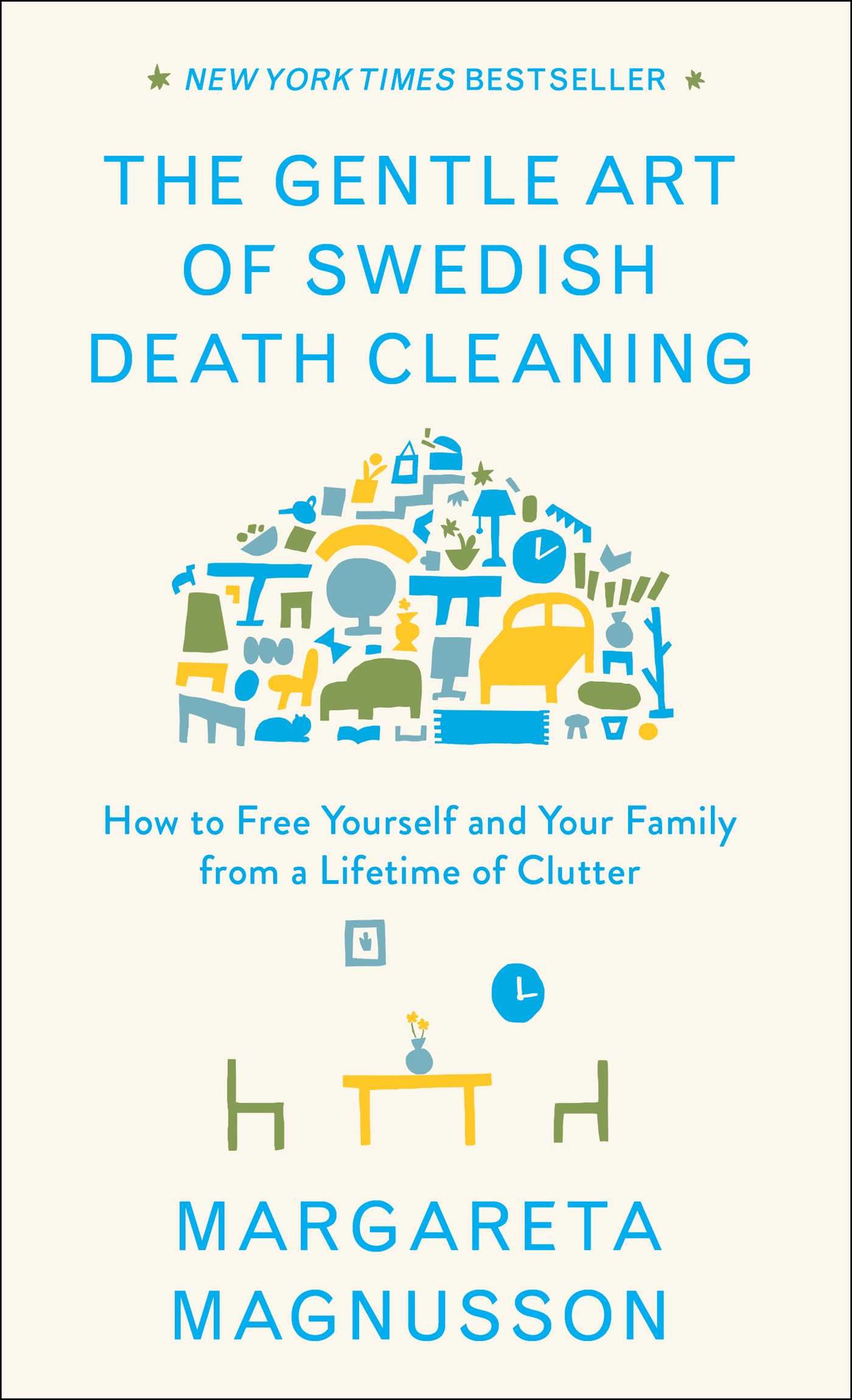

How to Free Yourself and Your Family from a Lifetime of Clutter
In Sweden there is a kind of decluttering called döstädning, dö meaning “death” and städning meaning “cleaning.” This surprising and invigorating process of clearing out unnecessary belongings can be undertaken at any age or life stage but should be done sooner than later, before others have to do it for you. In The Gentle Art of Swedish Death Cleaning, artist Margareta Magnusson, with Scandinavian humor and wisdom, instructs readers to embrace minimalism. Her radical and joyous method for putting things in order helps families broach sensitive conversations, and makes the process uplifting rather than overwhelming.
Margareta suggests which possessions you can easily get rid of (unworn clothes, unwanted presents, more plates than you’d ever use) and which you might want to keep (photographs, love letters, a few of your children’s art projects). Digging into her late husband’s tool shed, and her own secret drawer of vices, Margareta introduces an element of fun to a potentially daunting task. Along the way readers get a glimpse into her life in Sweden, and also become more comfortable with the idea of letting go.
Mon avis : Pas encore lu.